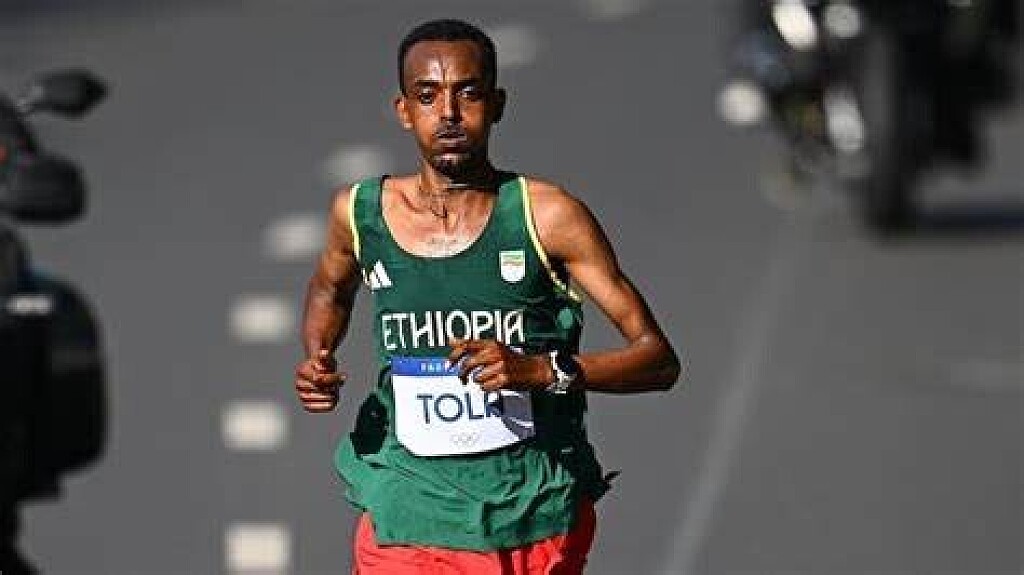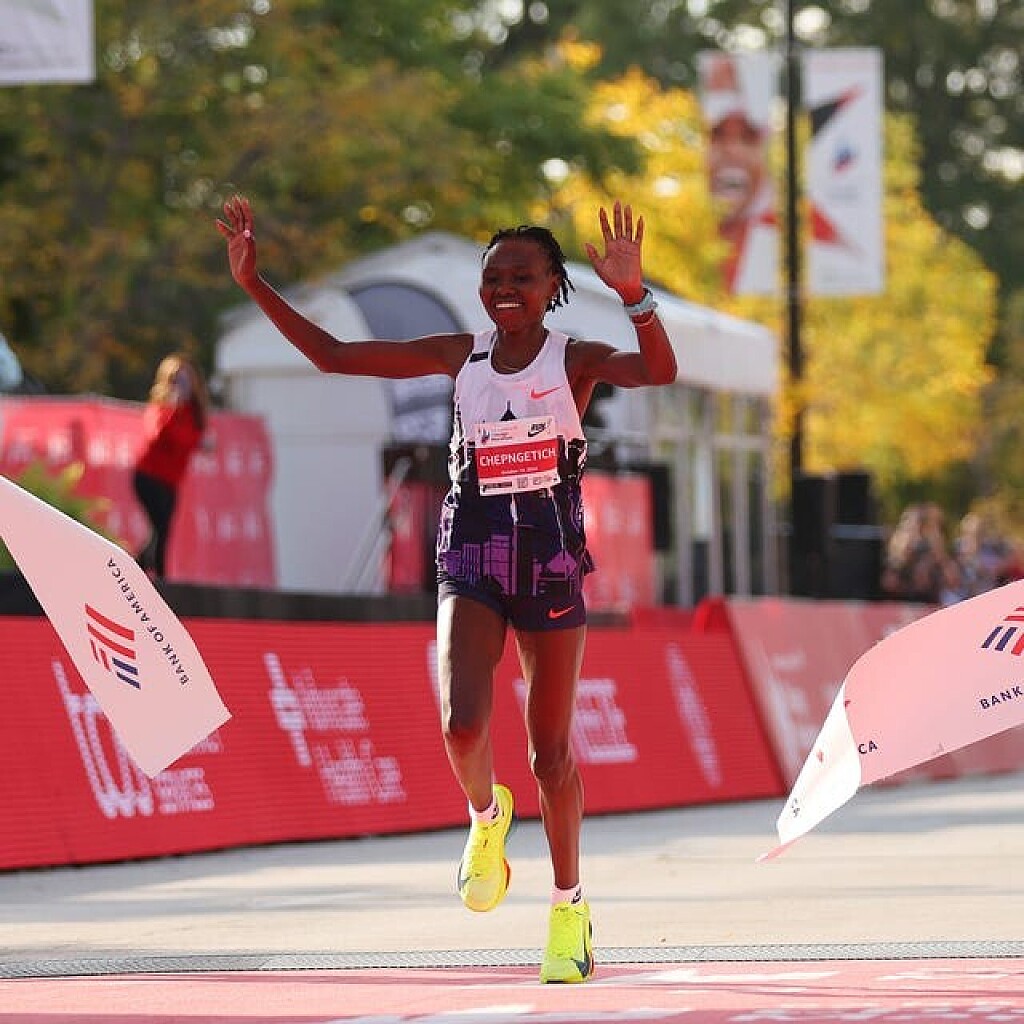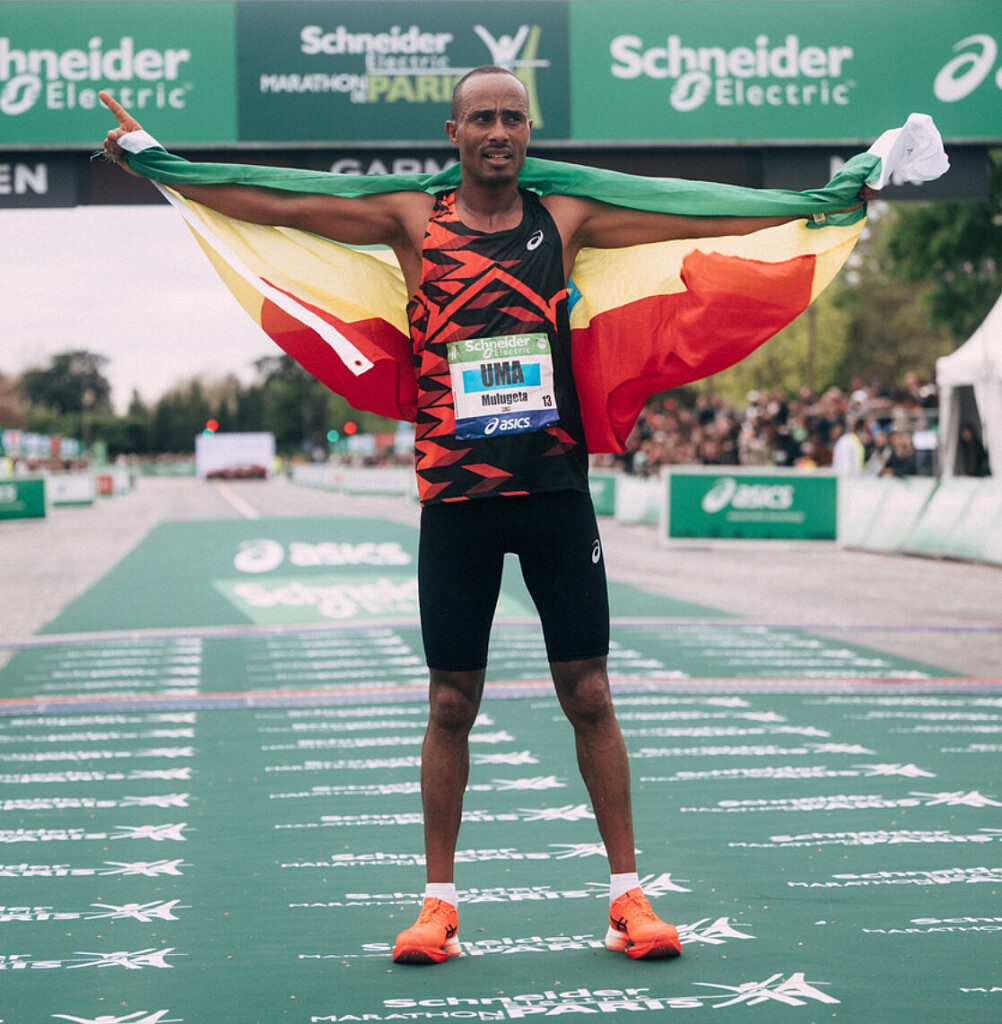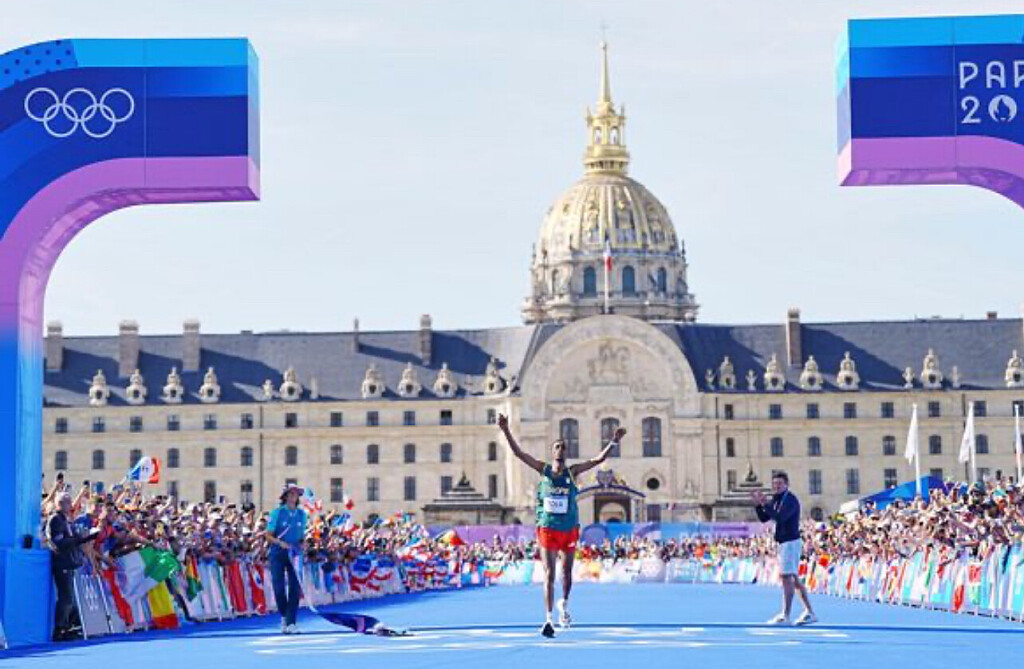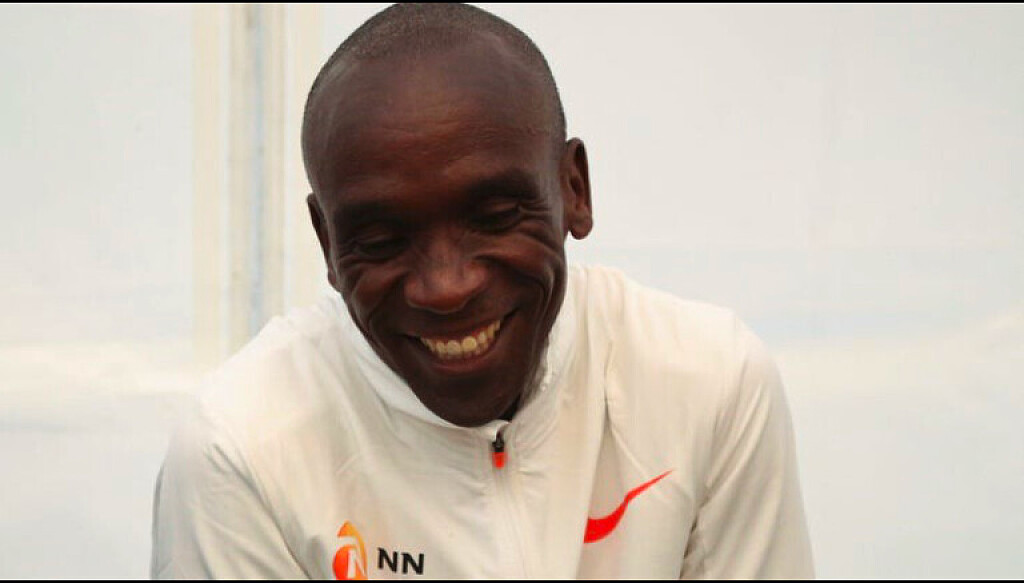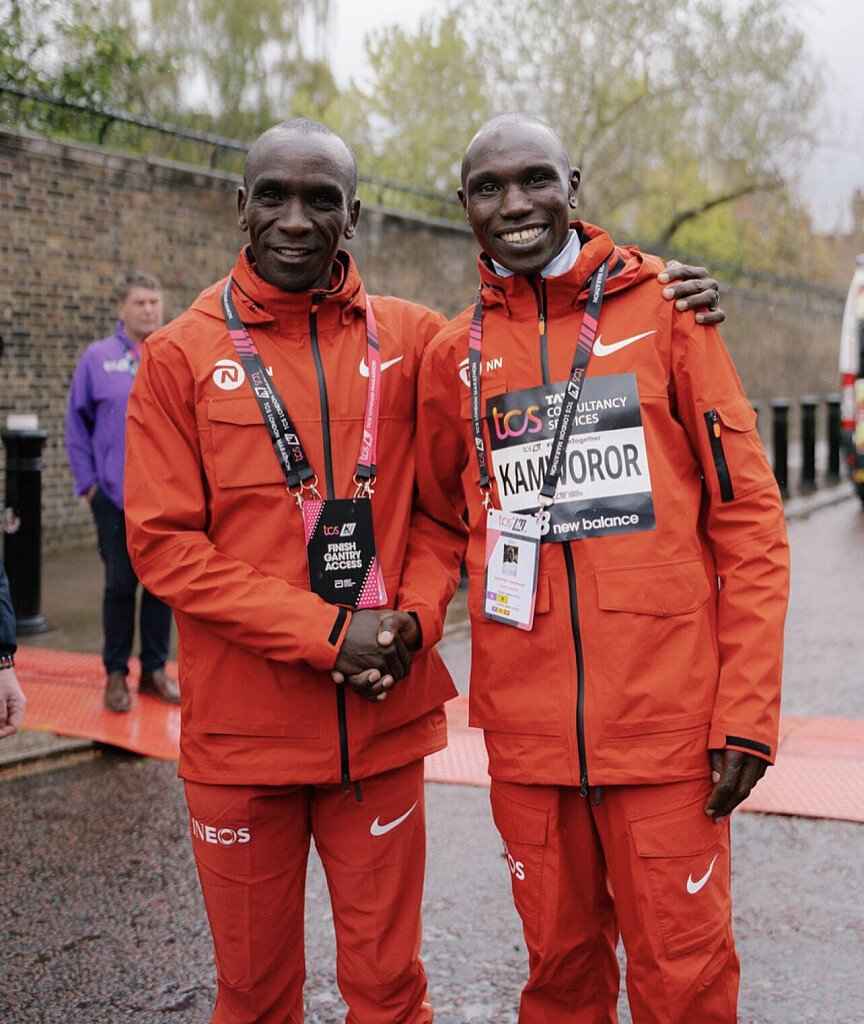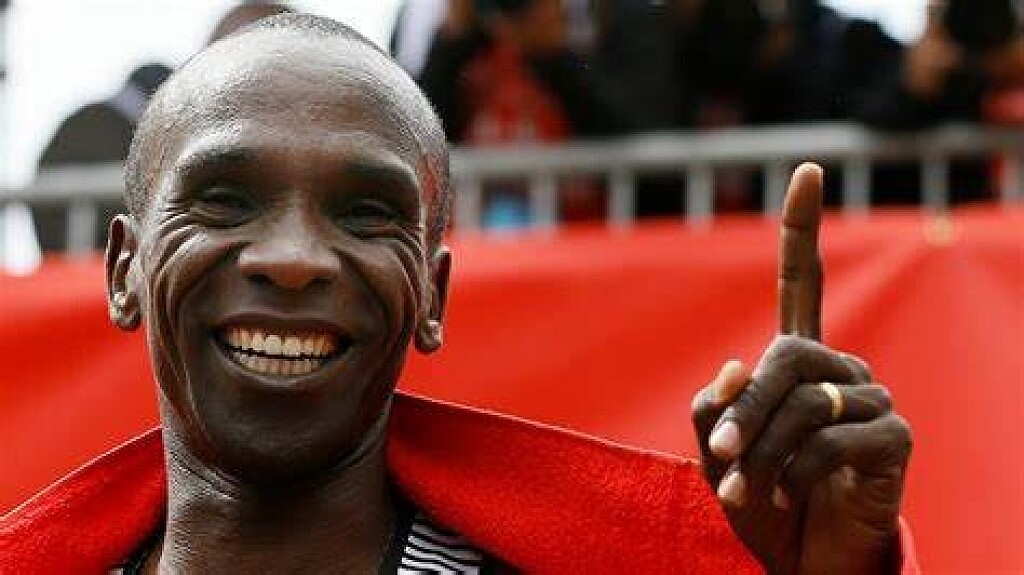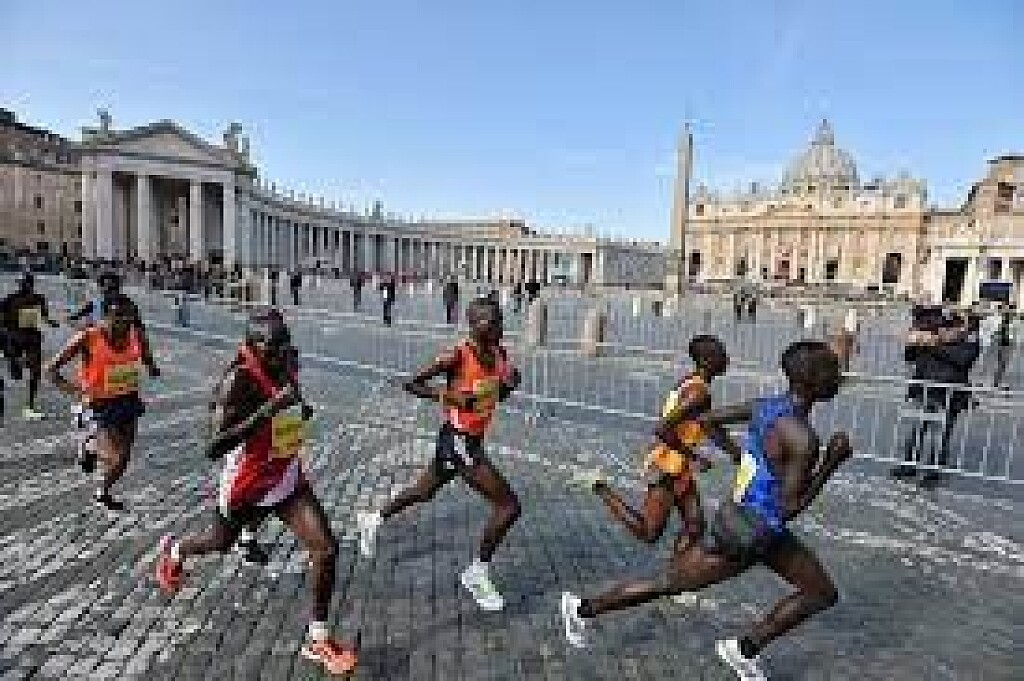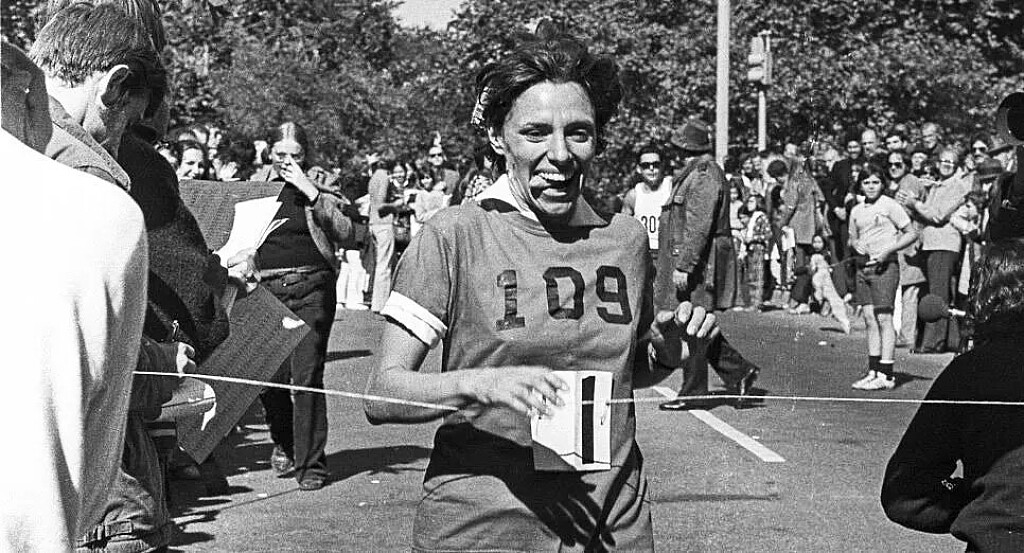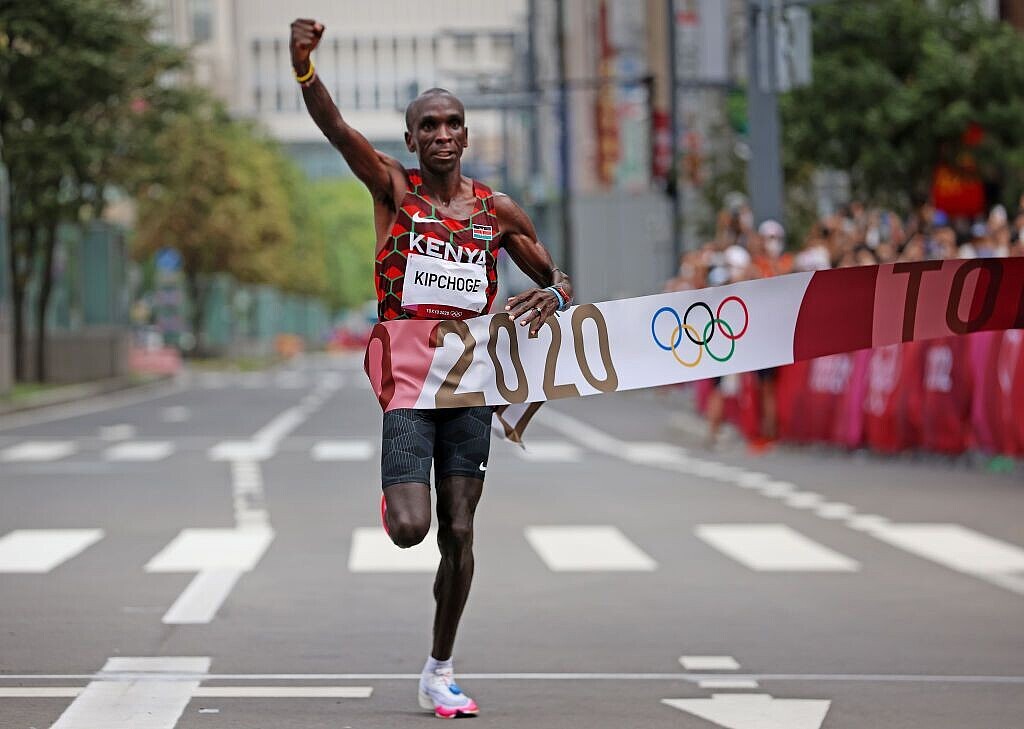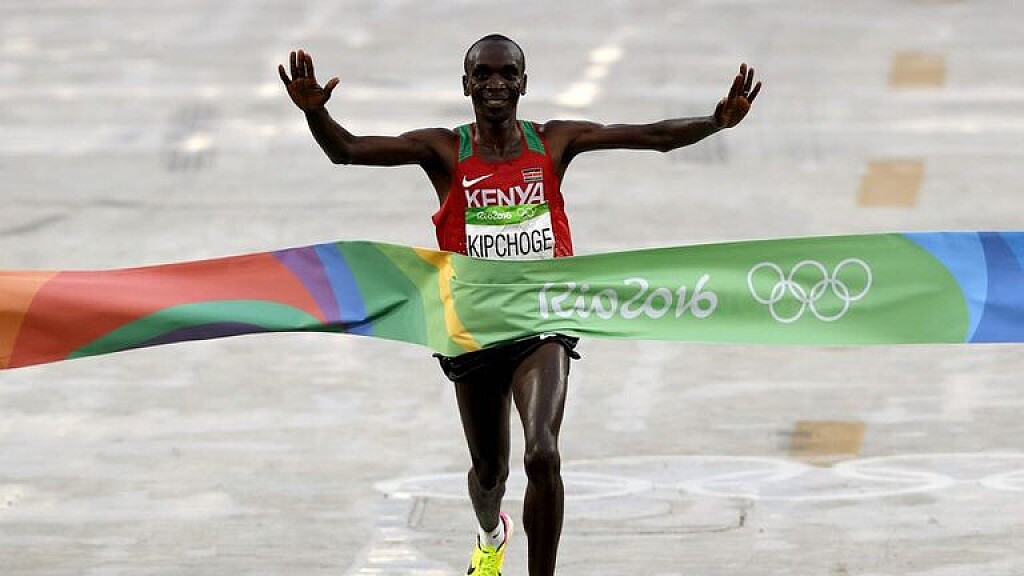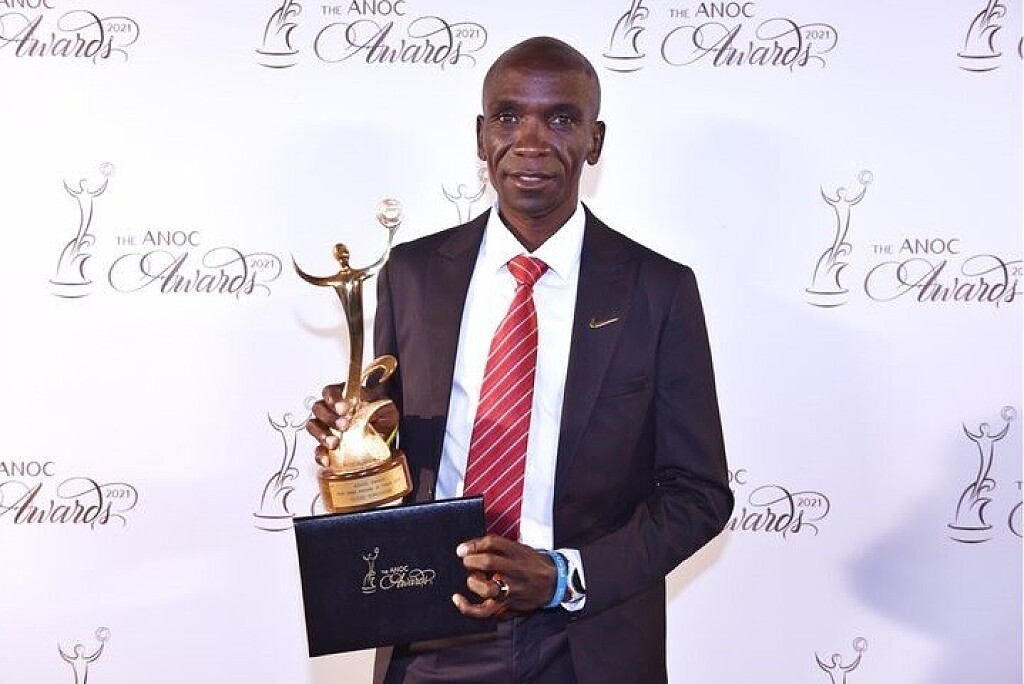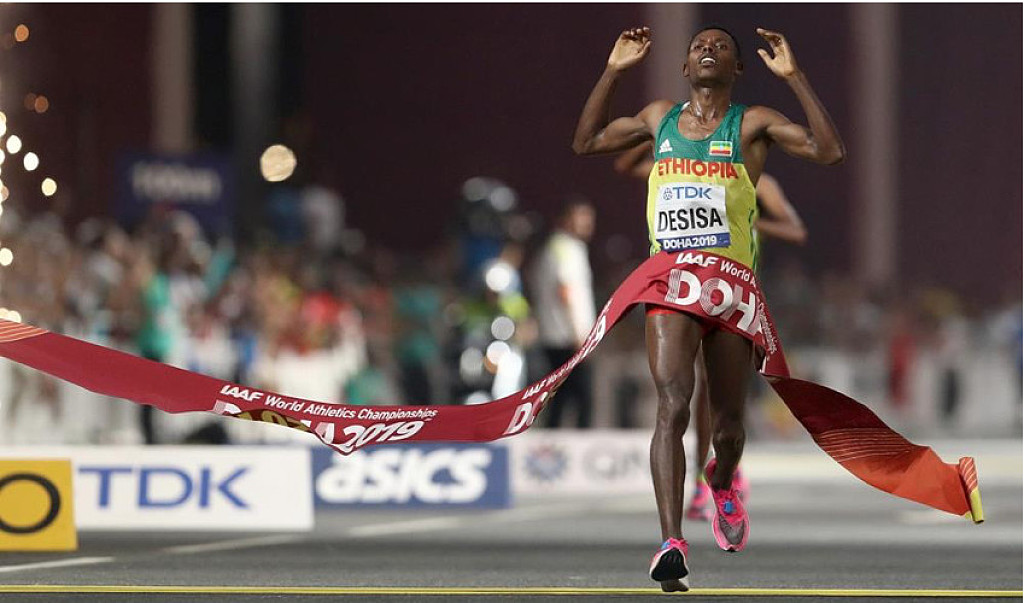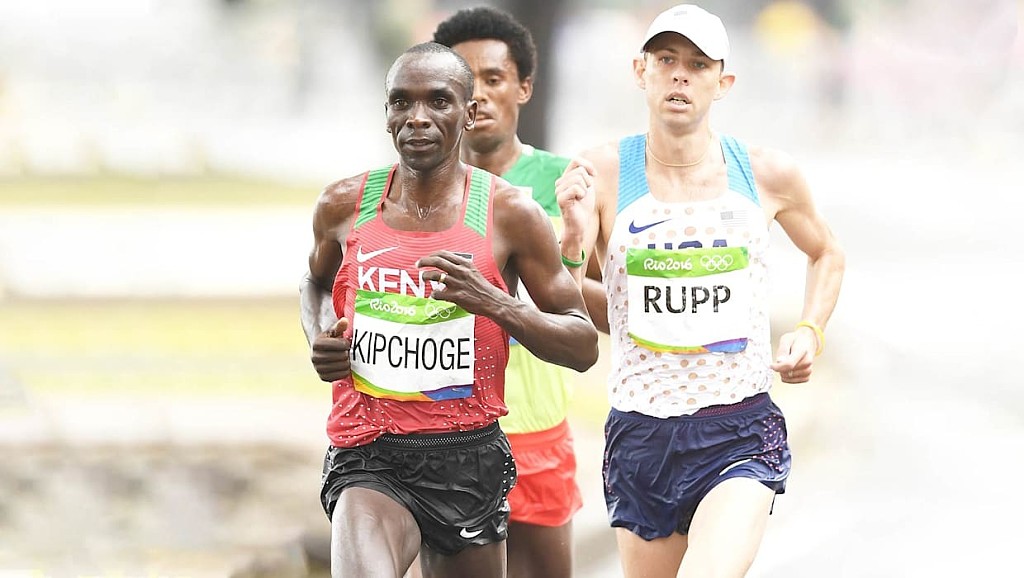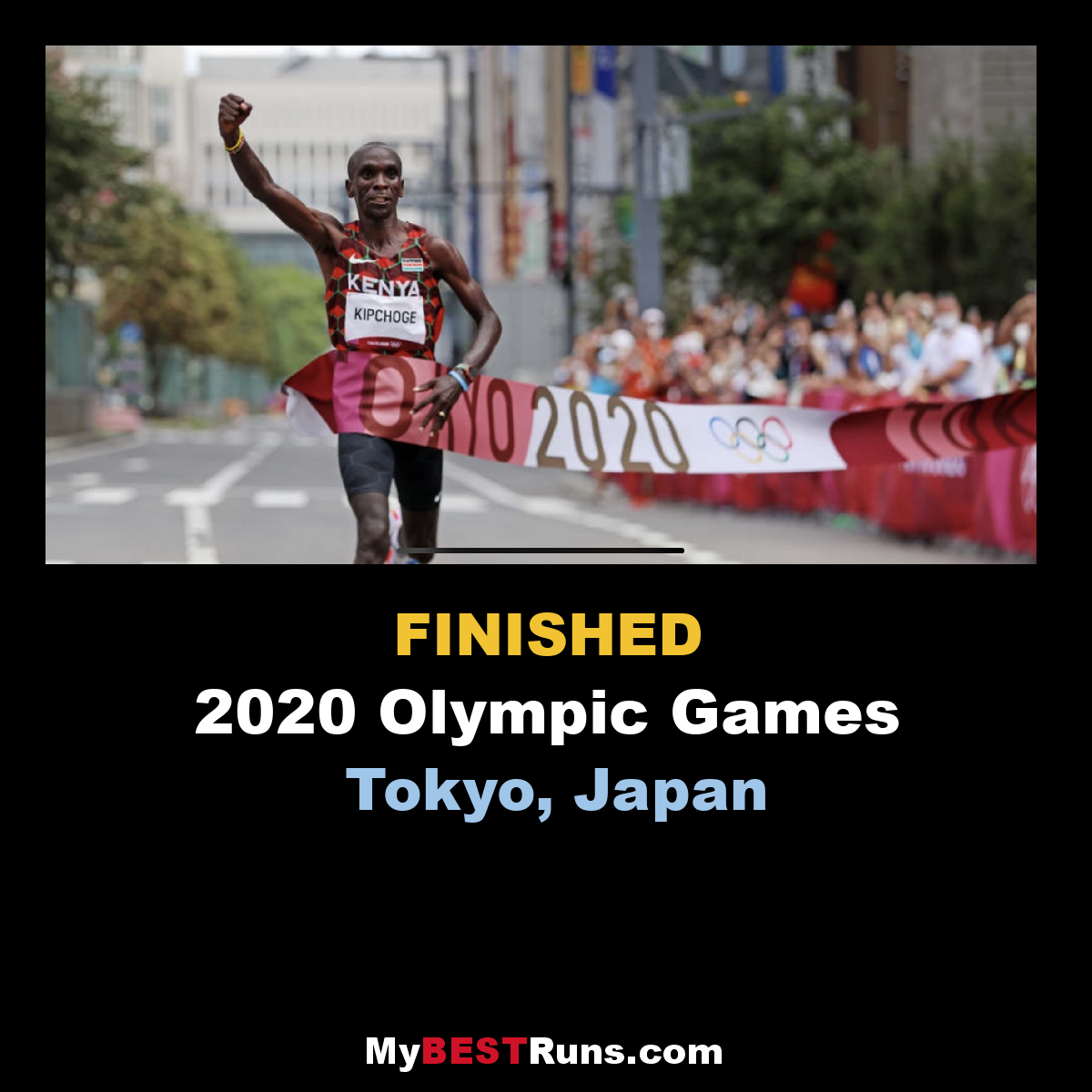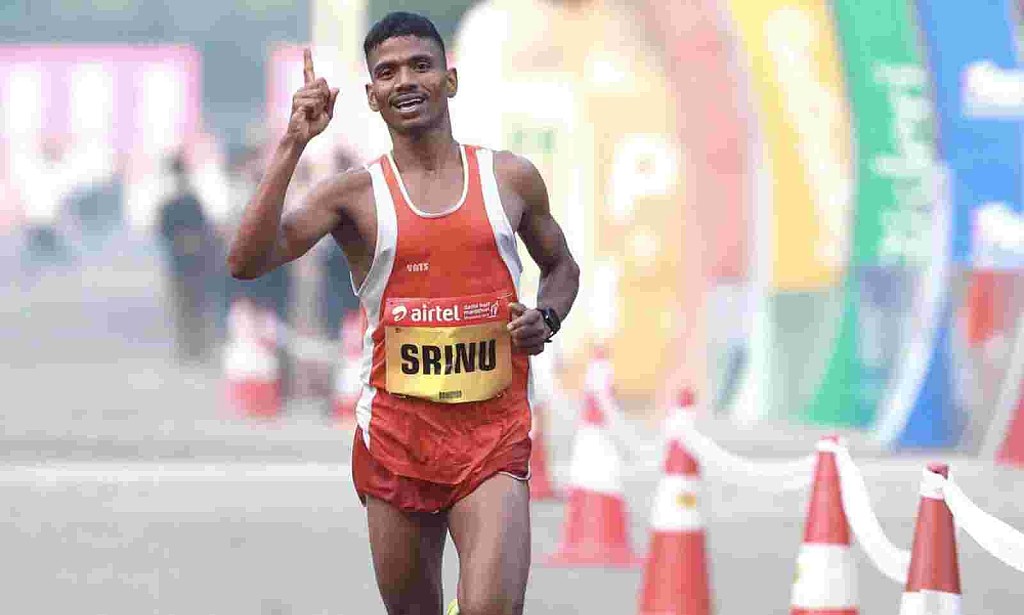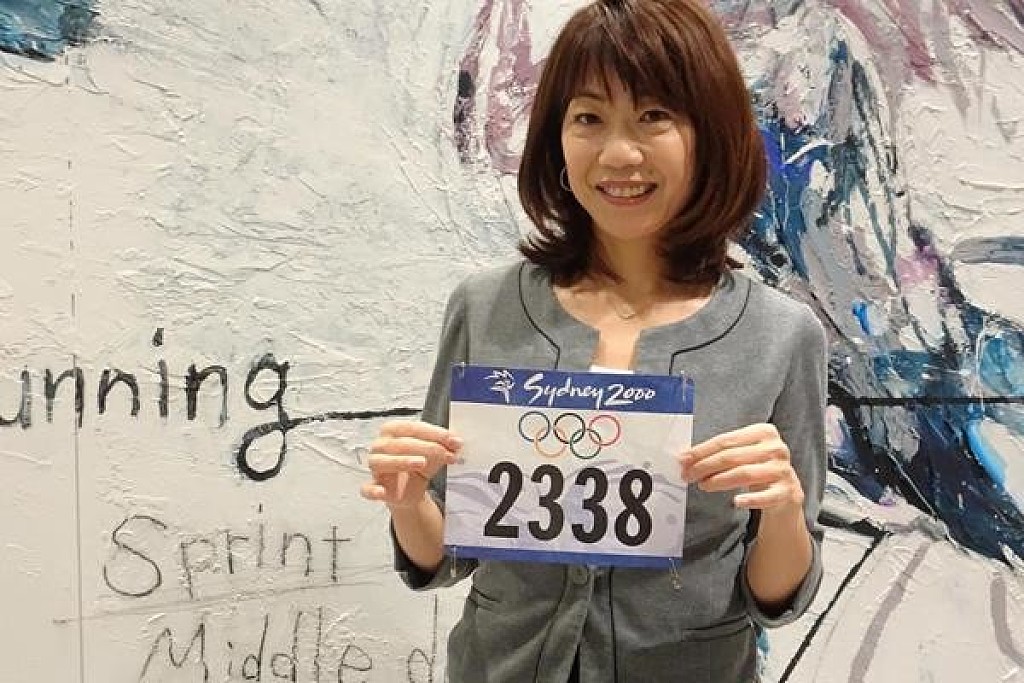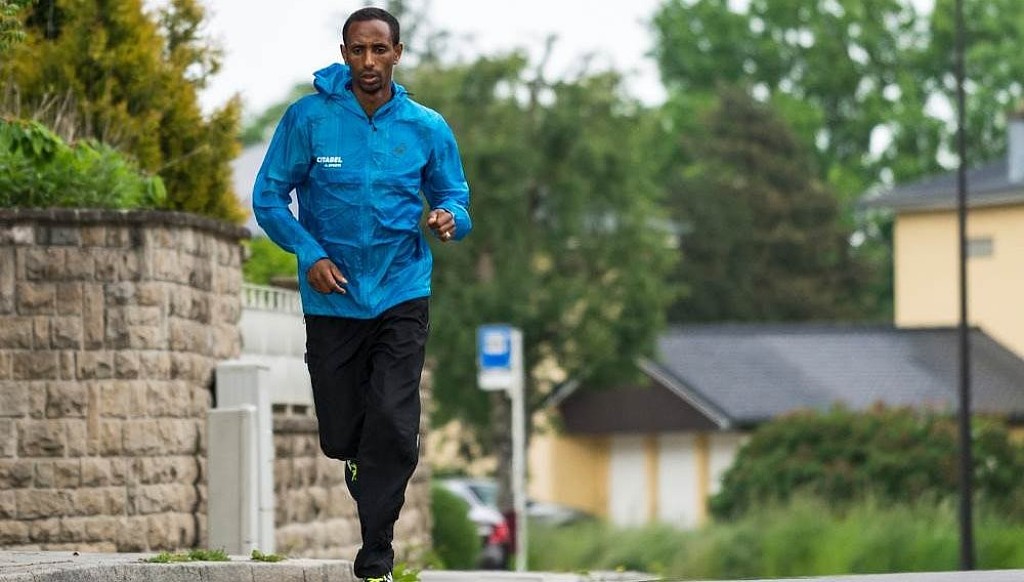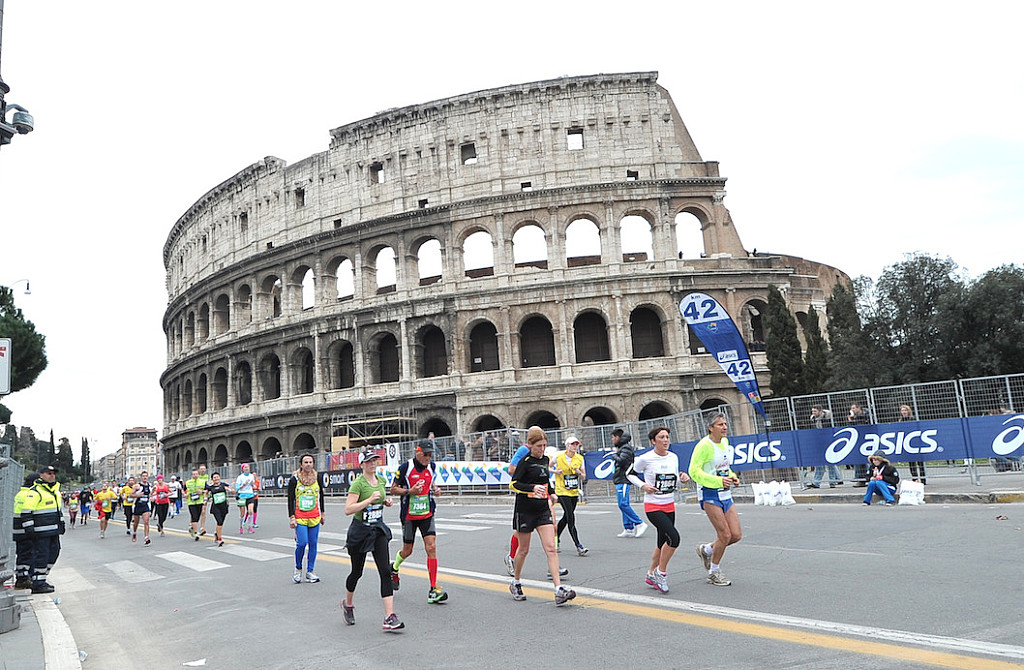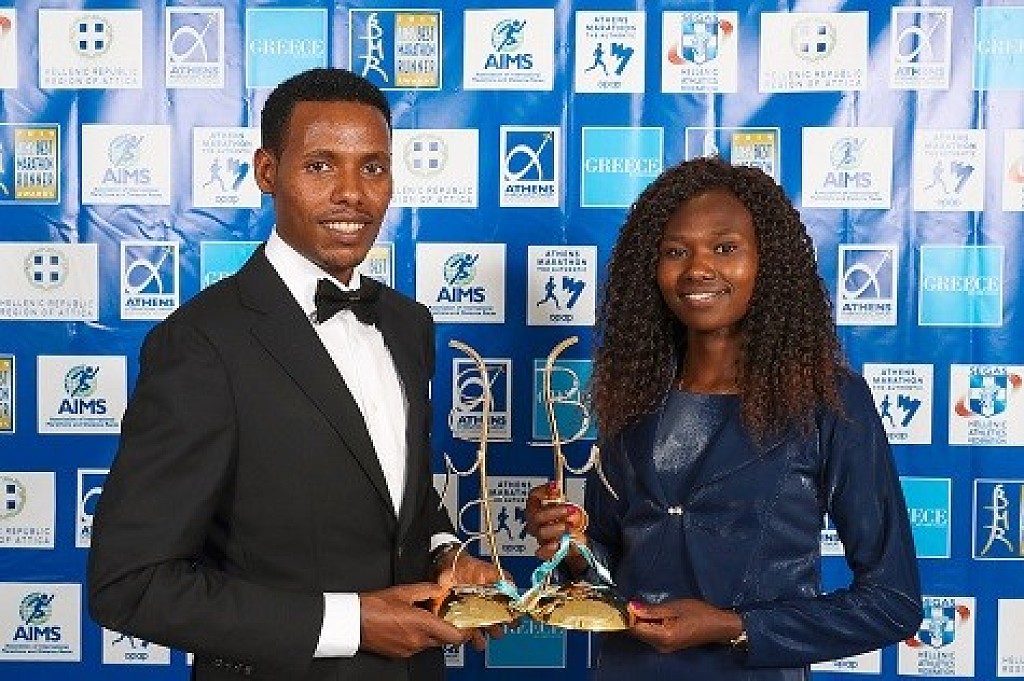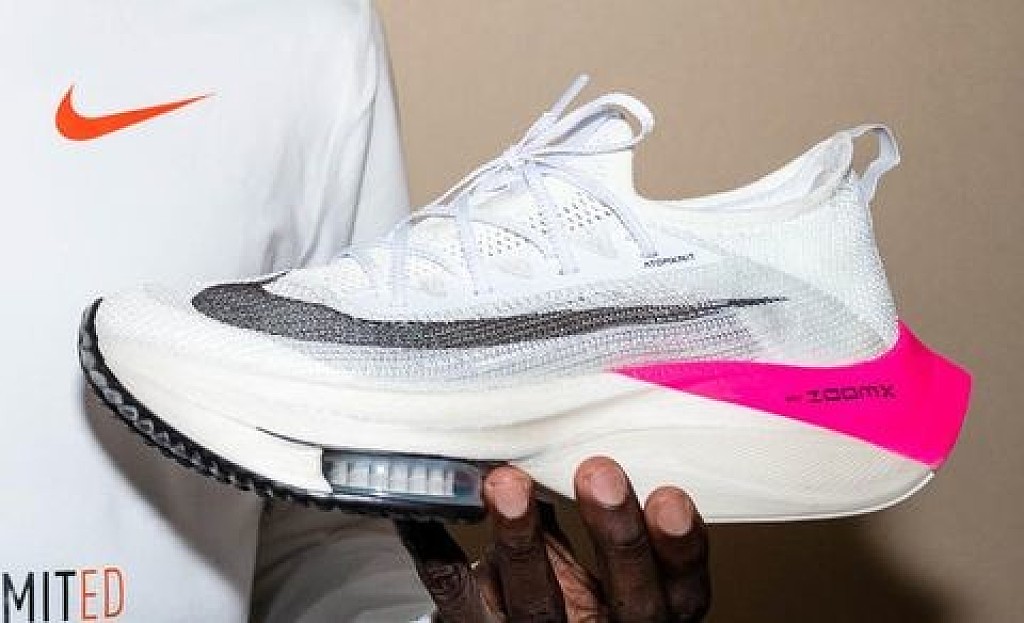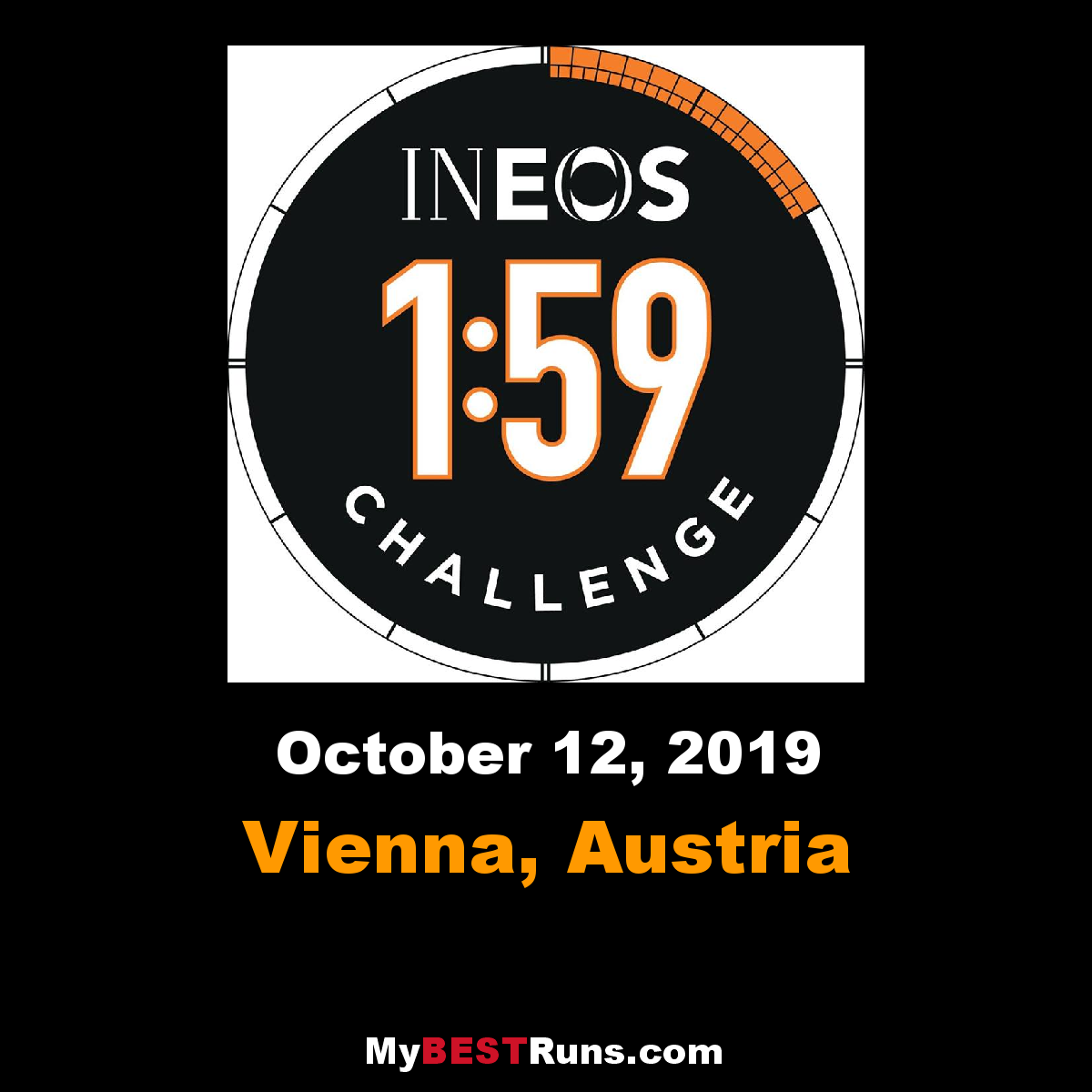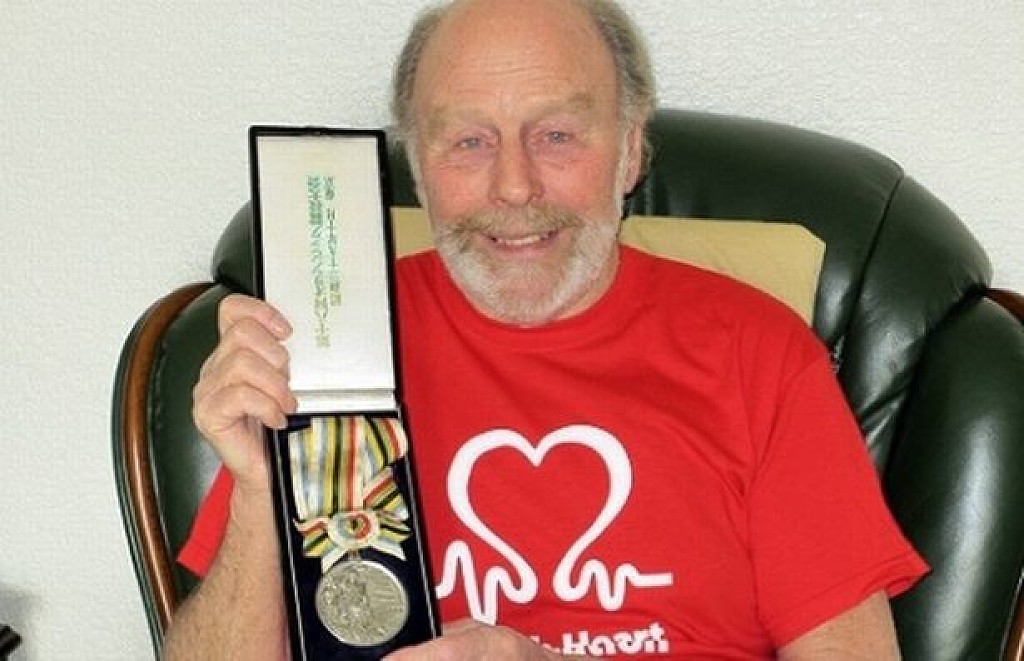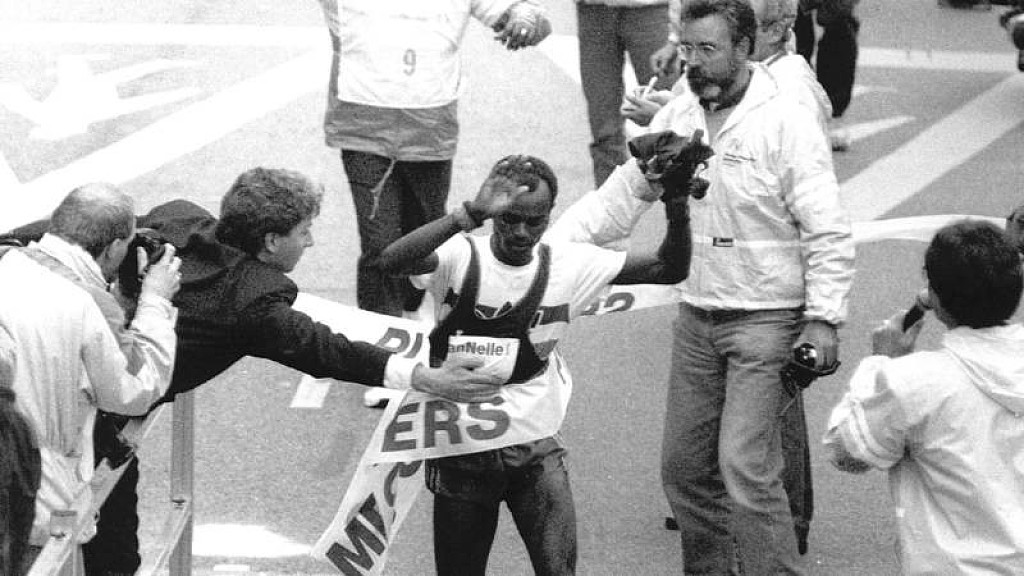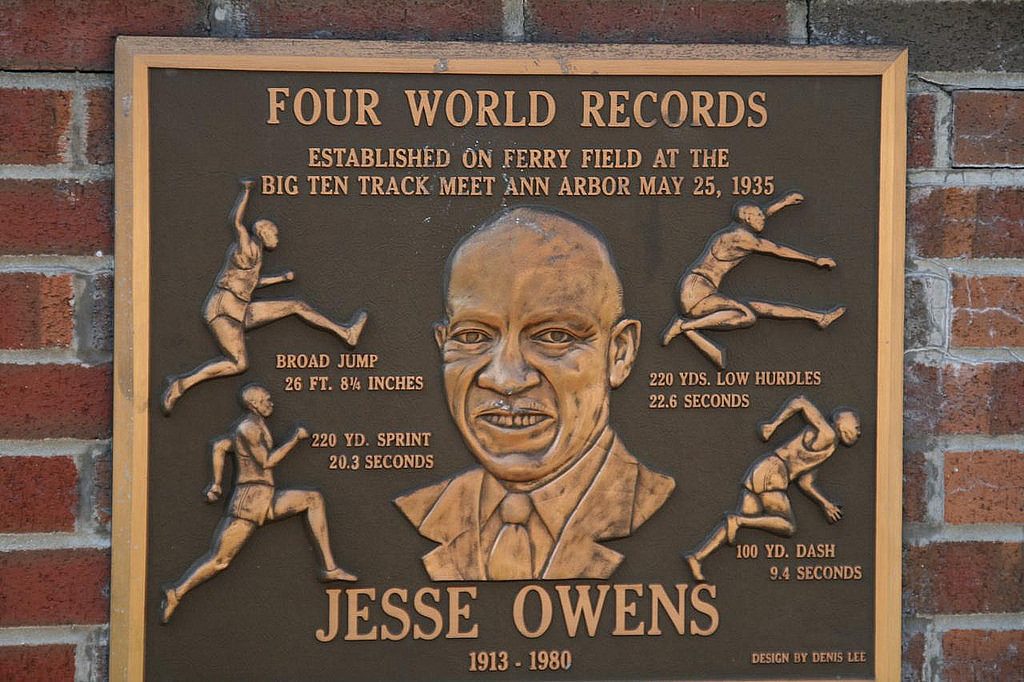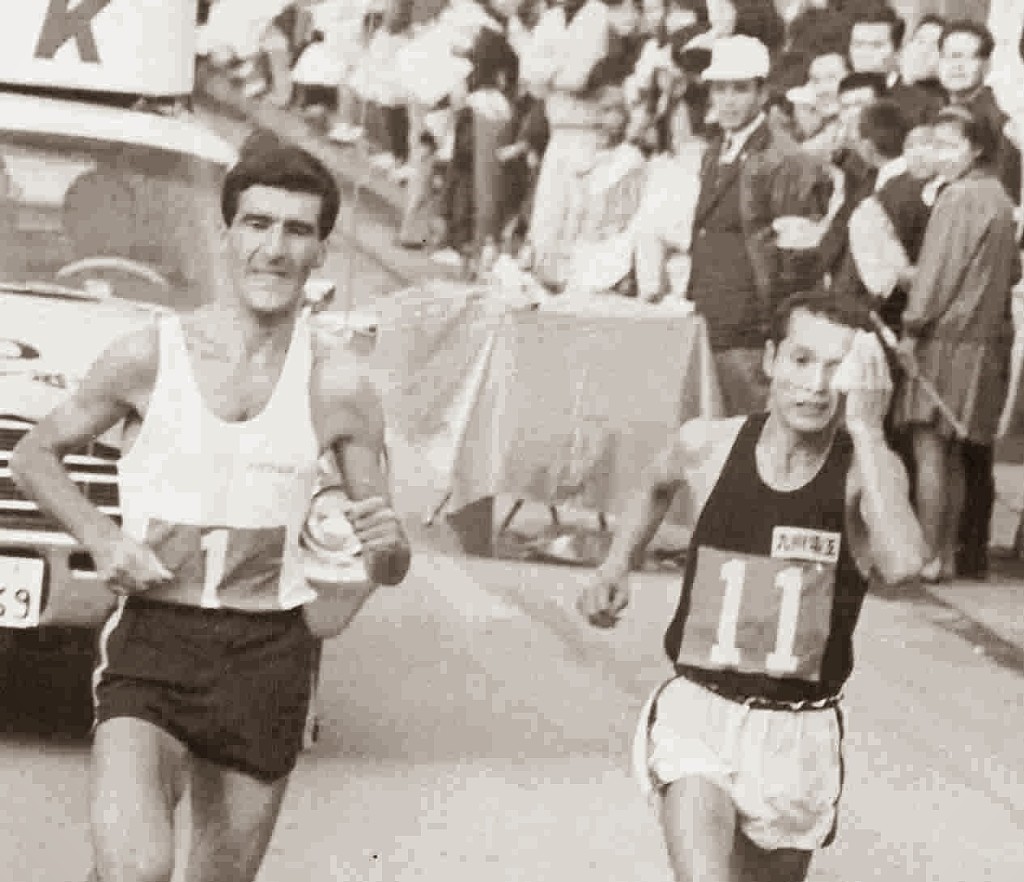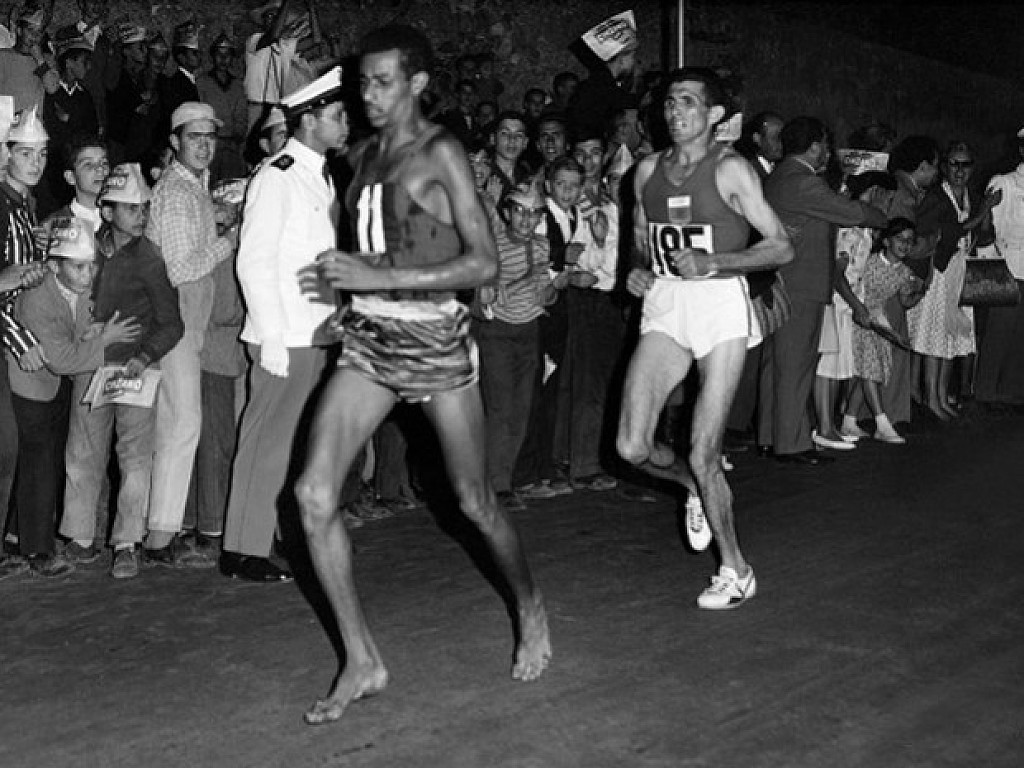Running News Daily
Running News Daily is edited by Bob Anderson. Send your news items to bob@mybestruns.com Advertising opportunities available. Train the Kenyan Way at KATA Kenya and Portugal owned and operated by Bob Anderson. Be sure to catch our movie A Long Run the movie KATA Running Camps and KATA Potato Farms - 31 now open in Kenya! https://kata.ke/
Index to Daily Posts · Sign Up For Updates · Run The World Feed
Articles tagged #Abebe Bikila
Today's Running News
World out-of-stadium athlete of the year Tamirat Tola’s 2024 – in numbers
Tamirat Tola earned Ethiopia’s only gold medal at the Paris 2024 Olympics with an extraordinary performance in the men’s marathon.
On a uniquely testing course, and in gruelling conditions, he won gold in an Olympic record of 2:06:26 – a performance that was all the more remarkable for the fact that he had only been called into the team with two weeks’ notice as a replacement for his injured compatriot Sisay Lemma.
The 33-year-old, who earned Olympic bronze over 10,000m in 2016, thus added a second global marathon title to his collection after his victory at the 2022 World Athletics Championships.
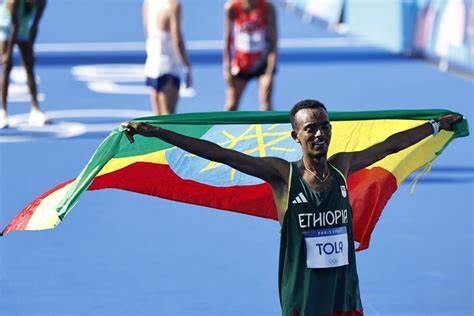
Tola’s 2024 in numbers
With the hills, and the heat, it was tough enough to run on the Paris marathon course. But you set an Olympic record of 2:06:26. How did you manage this feat?
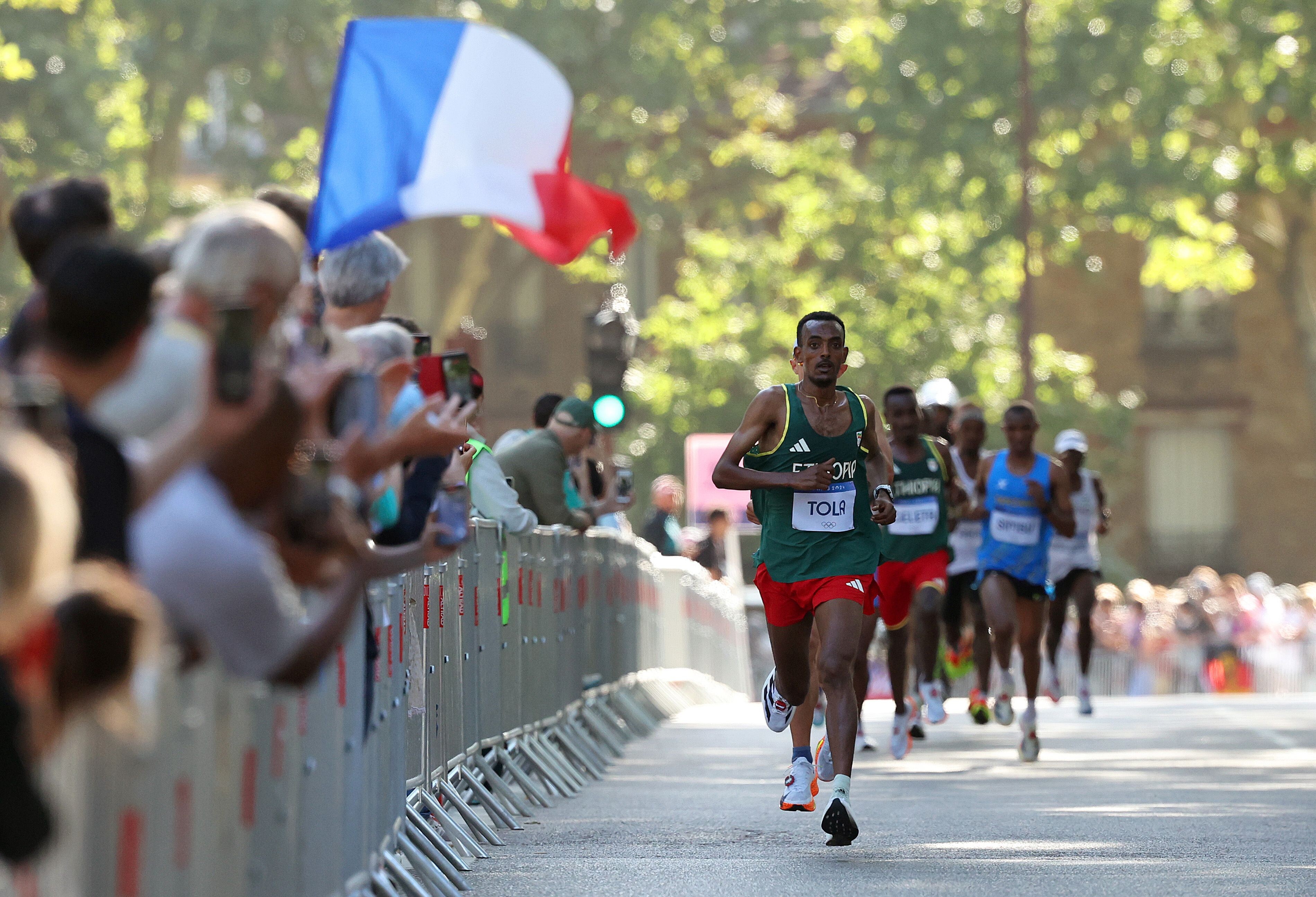
“It was a very difficult course in Paris. But the only thought in my mind was that I could not lose. Our country had won no gold medals on the track, and the marathon races were the last chance for us, so I needed to make the most of my talent.”
Many athletes found the steep hills and long descents of the Paris course the toughest they had faced, particularly around the 28km mark. Where did it hurt most for you?
“It was hardest from 27 to 30 kilometres, with the steep hill and the long drop. I wasn’t thinking about the time, but when I finished I had the Olympic record, which was another reason to be proud.
“My coach had told me that this was a very difficult course, so when I arrived in Paris I thought about how I could run my best on this course. I used this challenge as motivation, and thankfully I overcame it.
“In athletics, challenges are part of the sport. And we always have to do the best for our country.”
This was your second global marathon title following your success at the 2022 World Championships. How did the two victories compare?
“In 2022 it was not easy, all the champions were also there. In the past I had been concentrating on the 10,000m, which led to the Olympic bronze medal in 2016. After that I won the marathon silver at the 2017 World Championships in London.
“I improved my talent in 2022 to win the gold medal. I was happy at that time because after a long injury I was able to win for my country.
“In 2023 I lost that title because of a problem with my stomach. But that made it all the more amazing to fulfil my goals at the Olympics in Paris.”
You had just two weeks to prepare after being told you were running in the Olympic marathon following the withdrawal of Sisay Lemma, after which you stepped up as the third Ethiopian entrant alongside Deresa Geleta and Kenenisa Bekele. How did you manage this challenge?
“For three months together with Kenenisa, Lemma, Deresa and I prepared for the national team. At that time my coach said, ‘prepare with them, and if you are not needed for Paris then go to do the New York City marathon’.
“When I heard the news that I was on the team, I was really excited for the following two weeks. But for Sisay, it wasn’t an easy decision because it was for our country. We discussed it with him and he said, ‘It won’t be easy for me to run injured in Paris, so you go’.
“When I got to Paris, I was thinking about how I could challenge (Eliud) Kipchoge and other athletes. I knew the main contenders. There were lots of talented athletes.
“But I reminded myself that I had worked hard. And when I got in front in the final kilometres, I knew I could win.”
In Paris you became the fourth Ethiopian to win the Olympic marathon title after Abebe Bikila in 1960 and 1964, Mamo Wolde in 1968 and Gezahegne Abera in 2000. How proud are you to have done this, and what inspiration did you take from your victorious compatriots?
“I did not expect to win because I knew there were runners there like Eliud Kipchoge, the two-time winner. But once I got ahead, I knew I could do it.
“For a long time after Gezahegne, for 24 years, we were without an Ethiopian win in the men’s marathon at the Olympics. I was happy to attain this goal in a Games record and to join the other Olympic champions.
“It was Ethiopia’s only gold medal in Paris – I was able to provide happiness for our country.”
by Mike Rowbottom for World Athletics
Login to leave a comment
MARATHON GROUNDBREAKERS
Since Australia’s Derek Clayton ran history’s first sub—2:10 marathon in Fukuoka, Japan, on 3 December 1967, there have been a total of 4538 sub—2:10 marathons (as of 30 October 2024), 4537 by men, one by a woman.
As with any new ground-breaking performance, Ruth Chepngetich’s 2:09:56 in Chicago on 13 October has forced us to reassess all our past assumptions, or, like many, to doubt the validity of the performance itself. But no matter how we got here, to whatever you want to ascribe it, this is where we are now, 2:09:56 by a woman.
In this new reality, until proven otherwise, Ruth Chepngetich is the new Paula Radcliffe, just as Paula was the new Grete Waitz, one ground-breaker to the next, 1978 to 2003 to 2024.
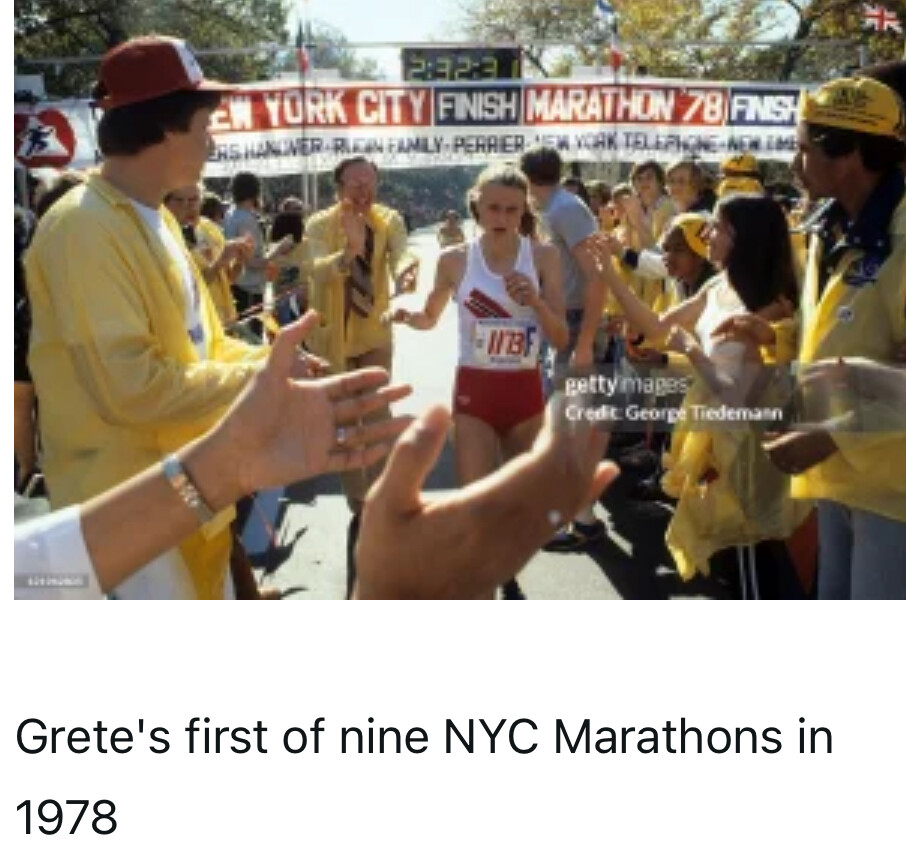
There have been many talented women champions through the years besides those three, including all the pioneers who had to overcome centuries of gender bias that restricted women from even showing their stuff.
But in terms of pure ground-breaking, the 1978 New York City Marathon drew a bright line between what once was and what would be.
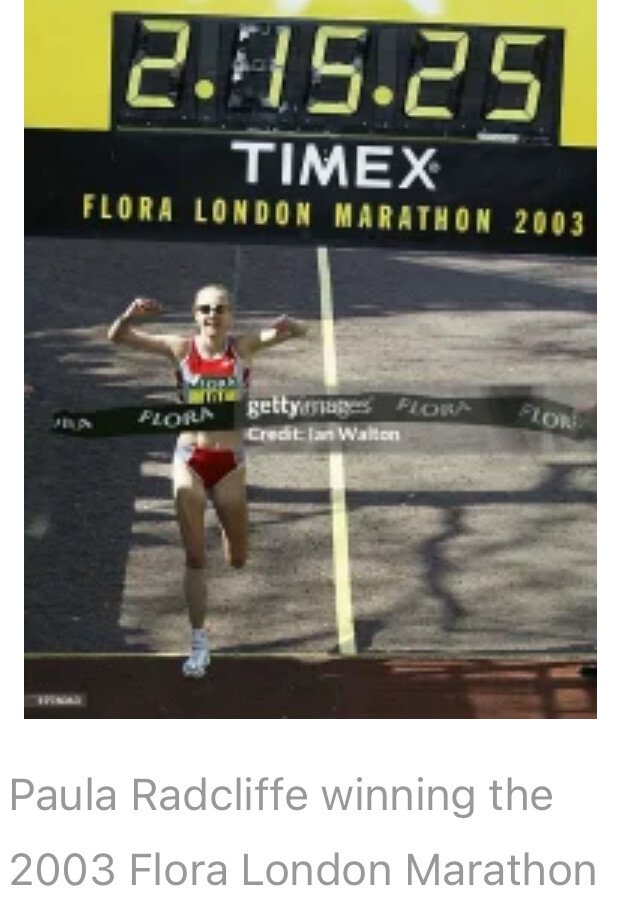
On 22 October 1978, Norway’s track and cross-country star Grete Waitz participated in the marathon for the first time, almost on a whim, as the trip was more of a honeymoon for her and husband Jack after the long track season.
The 2:32:30 world record Grete ran that day was totally unexpected by both the public and Grete herself. She wore bib #1173, wasn’t included on the list of elite women, and came with no specific marathon preparation (not a single run over 13 miles). In fact, she was so upset with husband, Jack, for suggesting she come run the marathon that she threw her shoes at him in the hotel room following her victory.
Still, like almost all debuting marathoners, after a short period of recovery and reflection, Grete concluded she could probably improve next time.
Thus, in New York 1979, following a more careful preparation, Grete ripped nearly five full minutes off her 1978 mark to record history’s first sub—2:30 by a woman at 2:27:33. Her margin of victory over England’s Gillian Adams was 11 minutes (2:38:33). The combination of the mild-mannered former geography teacher from Oslo and the raucous New York City crowds proved transformative, elevating women’s running to heights previously unimagined.
Though Japan’s Naoko Takahashi broke the 2:20 barrier for women in Berlin 2001, after Norway’s Ingrid Kristiansen (2:21:15, London ‘85), America’s Joan Benoit Samuelson (2:21:21, Chicago’85), and Kenyan Tegla Loroupe (2:20:43, Berlin ‘99) all challenged the barrier in the 1980s and ‘90s, it was England’s Paula Radcliffe who established new headlands in the marathon in London 2003 with her 2:15:25.
Nearly two minutes faster than her own 2:17:18 record from Chicago the year before, her 2:15 arced away from Catherine Ndereba’s 2:18:47 from Chicago 2001, completed just one week after Takahashi’s first sub-2:20 in Berlin.
The quality of Paula’s 2:15 can be seen in the 16 years and an entire shoe technology revolution that developed before Kenya’s Brigid Kosgei did Paula one better in Chicago 2019 at 2:14:04. That performance plowed new ground again. And now we have Ruth Chepngetich in Chicago 2024 with history’s first sub-2:10, just a year after Ethiopia’s Tigst Assefa’s first sub—2:12 in Berlin `23 (2:11:53).
Twice before, Chepngetich had come to Chicago with world record intentions. In 2022, she won the race in 2:14:18, just 14 seconds off Kosgei’s record. In 2023 she finished second in 2:15:37. On both occasions she flew through halfway under 66 minutes, only to falter in the second half. Perhaps she was a close reader of Malcolm X.
“There is no better teacher than adversity. Every defeat, every heartbreak, every loss, contains its own seed, its own lesson on how to improve your performance the next time.” – Malcolm x
In simple terms, making innovative strides in athletics requires time, experimentation, and reviewing, similar to how new scientific theories are examined before full acceptance. But women just haven’t been at the marathon game long enough to produce a large enough sample size to define their outer limits with any accuracy. They are barely two generations in since 1978.
Men have been competing for a much longer time with a much larger sample size.
Though Eliud Kipchoge surpassed the two-hour barrier in Vienna in 2019, that was accomplished as an exhibition, not a sanctioned race. In that sense, we are still awaiting the next barrier breaker on the men’s side in the Marathon.
Looking back, England’s Jim Peters stands as the first modern barrier breaker with his 2:18:40 win at the 1953 Polytechnic Marathon between Windsor and Chiswick in West London, England, history’s first sub—2:20.
Next was Ethiopia’s Abebe Bikila, the legendary double Olympic victor in Rome 1960 and Tokyo 1964. His 2:15:17 in Rome still stands as the barefoot marathon world record.
Next came Australia’s Derek Clayton, the first man under both 2:10 and 2:09. His 2:08:34 from Antwerp 1969 lasted for 12 years, holding off challenges throughout the entire Running Boom era headed by Americans Frank Shorter and Bill Rodgers.
Though never world record holders, the two Americans dominated the 1970s boom era, Shorter through the first half, Rodgers the second.
The Eighties were the last decade of international marathon champions: American (Al Salazar, Greg Meyer); European (Steve Jones, Carlos Lopes); Japanese (Toshihiko Seko and the Soh brothers); and Australian (Rob de Castella). Kenya’s Joe Nzau won Chicago in 1983 in a thrilling duel with England’s Hugh Jones when Chi-town was still developing its reputation as a world class event.
Ibrahim Hussein set new records in Honolulu and kick-started the Kenyan marathon revolution
The full East African deluge didn’t begin until 1987 and ‘88 when Kenya’s Ibrahim Hussein (already a two-time and soon to be three-time Honolulu Marathon champion) became Africa’s first New York City and Boston Marathon winner and Ethiopia’s Belayneh Dinsamo set the world record, 2:06:50, in Rotterdam 1988 that lasted over a decade.
The list of marathon stars from other nations scaled back markedly in the 1990s. Mexico had its turn at the top via greats like Dionicio Cerón (1994-`96 London champion), and back-to-back New York Ciy winner German Silva (1994 & 1995).
Moroccan-born American Khalid Khannouchi twice ran a world marathon record, first in Chicago 1999 (2:05:42), then three years later in London 2002 (2:05:38). And who could forget the personable Brazilian, Marílson Gomes dos Santos, who won New York City twice in 2006 & 2008, or Meb in NYC `09 and Boston 2014??
But the United Nations pickings get rather meager after that as East African athletes have had a stranglehold on the sport of marathoning, most dominatingly by Kenya’s Eliud Kipchoge. His run of sustained excellence over 42.2 kilometers was, and is, unprecedented in its longevity, including double gold in Rio 2016 and London 2020. And his last world record of 2:01:09 in Berlin 2022.
Sadly, the current record holder, Kelvin Kiptum, died in a car accident in February 2024 after establishing the 2:00:35 world record in Chicago 2023.
With the 2024 TCS New York City Marathon scheduled this weekend, we don’t expect to see any record performances. Yet, all the above is why we follow the game, isn’t it, to witness the arc of improvement over time, while hoping to discover a new name to remember? It’s as valid a focus as any other in this life.
And despite its many flaws and corruptions, the sport of marathoning retains an innate dignity that many endeavors do not. People may have bruised, battered, and tarnished it in the name of glory and money. But it survives, nonetheless, as a simple reflection of the human drive to achieve more in the quest to discover our best.
Doesn’t always turn out that way, but I don’t think we are done with it quite yet. Onward!
by Toni Reavis
Login to leave a comment
Is Mulugeta Uma the Next Great Ethiopian Marathoner
Ethiopia has been blessed with exceptional marathon talent beginning with 1960 Olympic champion Abebe Bikila and continuing on to the present. There are always prospects waiting to emerge. Among the most exciting newcomers is Mulugeta Uma.
Canadian marathon fans will have the chance to witness his prowess when he lines up for the 2024 TCS Toronto Waterfront Marathon, October 20th, as one of the favourites in this World Athletics Elite Label Race.
Earlier this year the 26-year-old won the Paris Marathon with a new personal best of 2:05:33 but nearly didn’t make it to start line. Like most runners he suffered nerves in the days leading up to his excellent performance likely due to travel but also due to his new professional circumstances.
“I was stressed,” he admits. “It was my first race under Moyo Sports Management and my new sponsor Asics. Thus I had had to run carefully.
“I was drinking plenty of water, I was determined to finish. When I reached 25 km I felt better and I was thinking of making the podium. After 35 km I was confident I would win the race. I won the race with a new personal best. Jesus, my Lord, helped me for glory.”
Few people knew that on the evening before the race he and his management huddled together to decide whether he should even start the race due to his upset stomach. They were glad he persevered. The victory earned him $55,000 USD.
Although he is now a world-class marathoner, Mulugeta began his athletics career as a 1,500m runner earning silver medals for his country in both the 2014 Youth Olympics in Nanjing, China and in the 2015 World Youth Championships in Cali, Colombia. But injuries from training in spiked shoes halted his progress.
Over the following five years the problems with his achillestendon persisted, hence the decision to take up road racing.
Last year he finished 7th in the Seville Marathon finishing in a time of 2:06:07. He followed that up with a second-place finish in Frankfurt last October 29th. His time on that occasion was 2:06:47. Together with his Paris victory that makes an impressive triple over a fourteen-month period. It is safe to say most marathoners would be happy with even one of those results.
Mulugeta grew up on a farm in Wolisa about 100 kilometres southwest of Ethiopia’s capital, Addis Ababa before joining a club in the city. Asked what he would be doing if not for his running career he is quite emphatic.
“I’d be a farmer, because I am the only son in the family,” he explains. “My parents do farming for a living.”
Mulugeta and his wife have no children. Between training sessions he says he enjoys time with his wife and friends and also listening to spiritual songs. He believes he has a good future in marathon running.
“As with any world-class athlete I want to run a fast time and win big competitions like the World Championships and Olympics,” he declares.
For now, his training and his mental focus is set on performing well at the TCS Toronto Waterfront Marathon. This will mark his first time in North America. Ten weeks before the journey he admits he has not studied the Toronto race in detail though he is confident of another great performance.
“I don’t know anything (about it). I only know that the course record is 2:05,” he offers. “With God’s help I want to break the course record and win the race.
by Paul Gains
Login to leave a comment
Ethiopia’s late sub Tola wins marathon in Olympic record in brutal conditions over hugely challenging course
Tamirat Tola, called into the Ethiopian team as a late replacement, won the men’s marathon title in an Olympic record of 2:06:26 in brutal heat and humidity over a course of hugely demanding hills, with Belgium’s Bashir Abdi earning silver in 2:06:47.
Kenya’s Benson Kipruto, fastest in the world this year after winning the Tokyo marathon in 2:02:16, marked his Olympic debut with bronze in 2:07:00 on a day when his 39-year-old compatriot Eliud Kipchoge, seeking a third consecutive title, failed to finish.
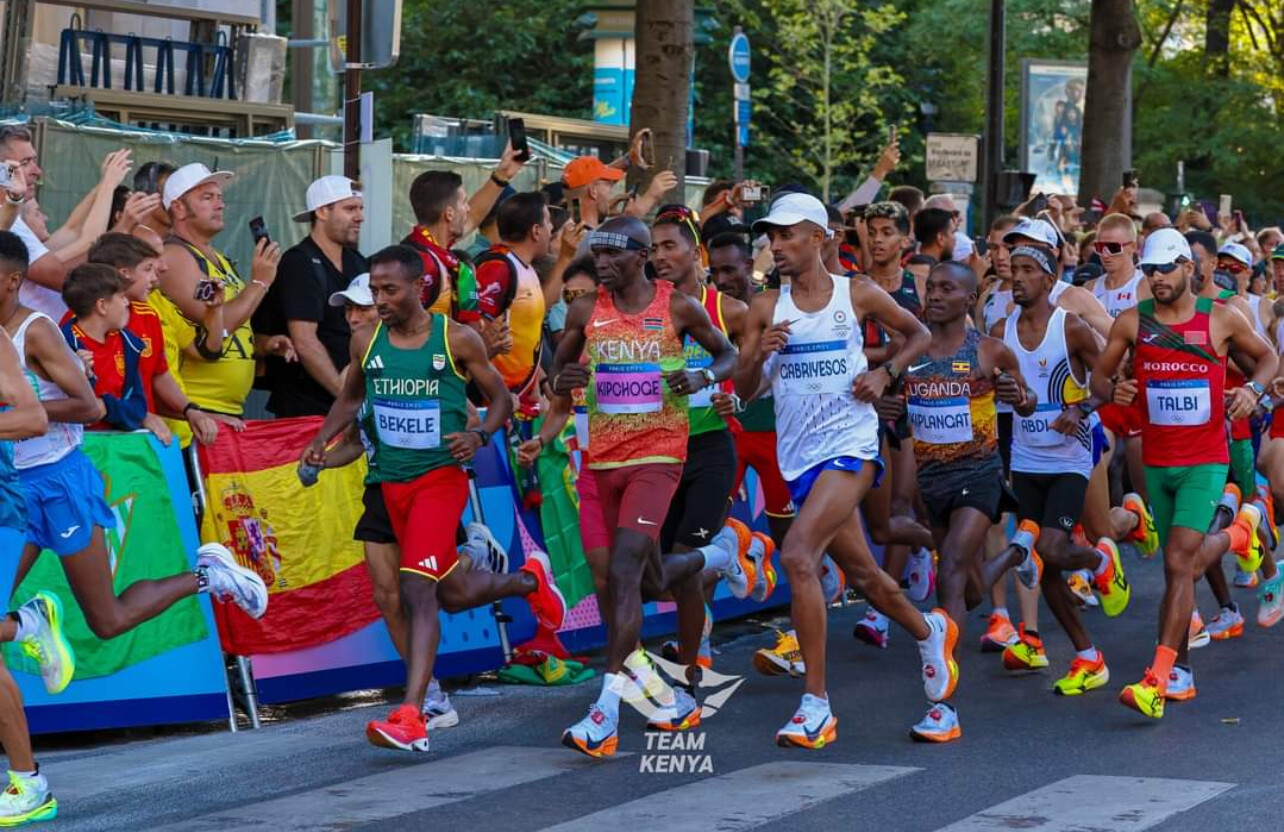
Britain’s Emile Cairess, making his Olympic debut, finished in fourth place, clocking 2:07:29 after moving past Ethiopia’s Deresa Geleta in the finishing stages, with the latter recording 2:07:31 and finishing a second ahead of Japan’s Akira Akasaki, who set a personal best.
In the circumstances it was scarcely creditable that Tola bettered the Olympic mark of 2:06:32 set at the Beijing 2008 Games by the late Kenyan runner Sammy Wanjiru.
Huge crowds lined the route in the closing stages, and the spectacle concluded amid packed grandstands in front of Les Invalides, its gilded dome glinting in the morning sunshine.
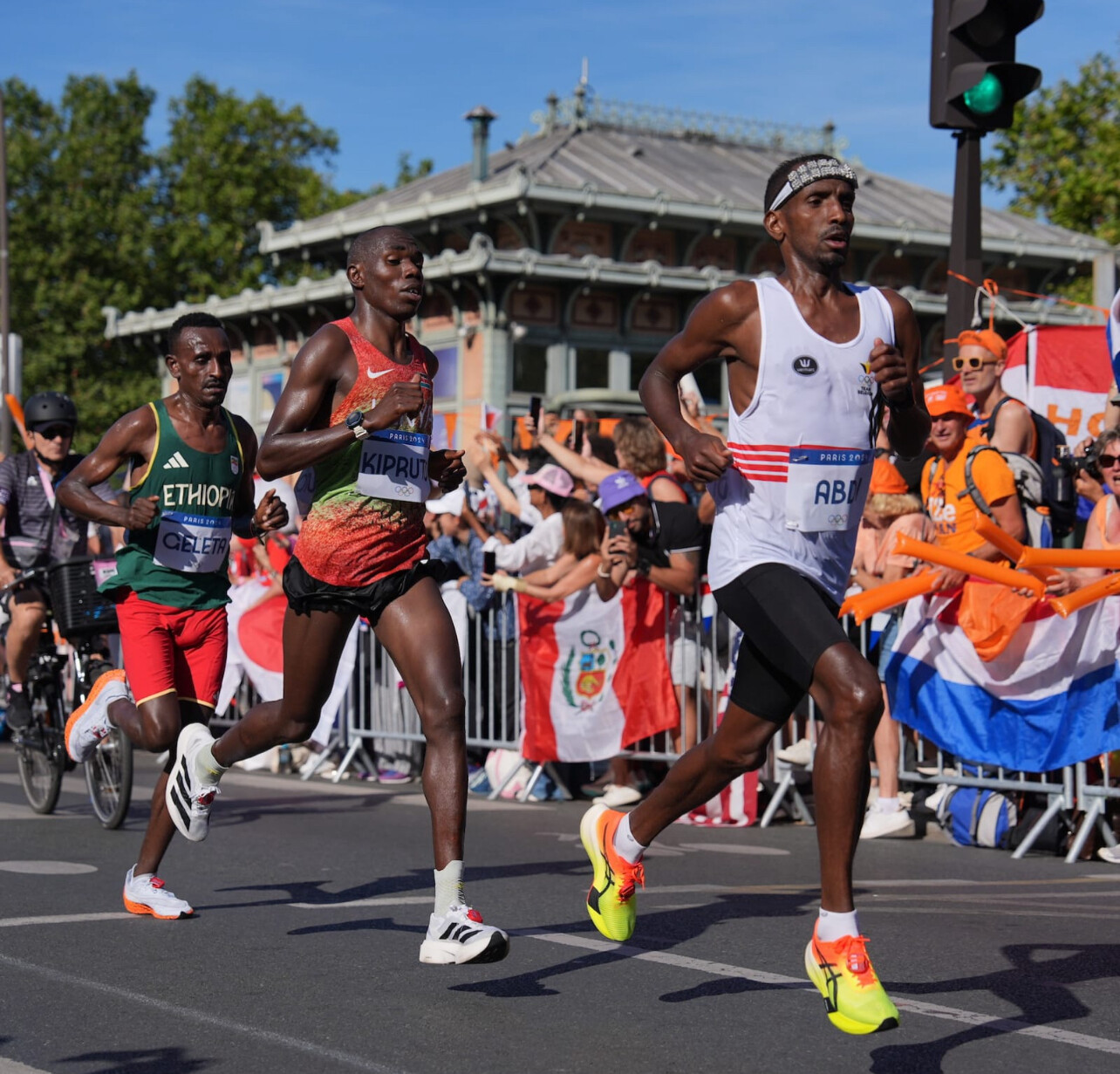
On a day like this, on a course like this, there was something fitting about the race concluding alongside the building constructed in the 17th century as a haven for disabled soldiers. Everyone completing the course today was a warrior.
Tola, the 2022 world champion, thus joins the fabled list of fellow Ethiopians who have won this prized race – Abebe Bikila in 1960 and 1964, Mamo Wolde in 1968 and Gezahegne Abera in 2000 – and added gold to the Olympic 10,000m bronze he won in 2016.
For an Ethiopian team that has not enjoyed its customary success on the track, this was a day of days – and they will have hopes of further success when the athletics programme concludes with the women’s marathon tomorrow.
“I am happy today because I fulfilled my goal,” said Tola, Ethiopia’s first gold medallist of these Games. “I prepared well. I trained hard so I could win. In my life, this is my great achievement.
“I was the reserve in the Ethiopian team, but when Sisay (Lemma) had injuries, then I had a chance to represent him. I was fully prepared and knew I could fulfil my dream. I am happy to do that today.
“This is the Olympics and it is not easy to win the Olympic Games, not at all. I am very proud, very happy.”
Abdi, who has recently recovered from a stress fracture of the hip, commented: "The course was very tough today. I tried not to lose a lot of energy. I tried to run as smartly as possible, so I am very, very happy with this result.
"The weather was hot, (the terrain featured) a lot of ups and downs. Actually, I expected going uphill would be most challenging, but I found going downhill most difficult.
“It was very steep and you don’t have control of your body. That was very scary, especially after 29km, we had almost 2km of running downhill and it was just going more down and down, and I was really afraid of falling.
"This is the hardest marathon course I’ve ever run."
Asked about his return from injury, he added: "It was really a long journey. At the beginning of the year I got a stress fracture, which meant I couldn’t run any races. I came here without any preparation and didn’t know what to expect.
"I told myself before I started, 'OK, you don’t have any race rhythm, but you are fresh, it is your first race of the season, you will be the only guy who is fresh’. That’s what I was repeating to myself during the race."
Kipruto commented: “The course was tough but I’m happy with the result I posted. I trained with the mind first before going to the legs and the heart. Running uphill and downhill was not easy.
“This was the hardest marathon I have run, and a different experience because it was my first Olympic Games."
"I saw Tola pushing but I said, 'no, it’s too early', so I tried to close the gap slowly."
Always in touch with the lead, Tola first took control of the race just after the 20km mark as the field came to the brow of the first long climb, overtaking Italy’s Eyob Faniel, who had pushed ahead by 23 seconds at the 15km mark before the start of the grinding uphill stretch.
The pack, led by Akasaki, Geleta and South Africa’s Elroy Gelant, caught up with him by the 25km mark, which was passed in 1:16:08, but Tola made his decisive move in the hardest part of the course – a brutal, extended climb from 27.5km to 29km involving a 16 per cent incline.
The pack soon became a straggling line as each runner worked out the best way of coping with a challenge so severe that some coaches here had been wondering whether it might be best for their charges to walk this stretch.
Once he got to the brow of the hill, he made the most of it, accelerating away from his labouring rivals and establishing an 11-second lead as he went through 30km in 1:32:12.
Such were the ups and downs of the route that it almost resembled a roller-coaster – but one which guaranteed no one involved had any fun at the fair.
The crucial question at this point was: could Tola, alone, resist the pack that was gradually re-gathering behind him? The answer became gradually and gloriously clear. Tola was never headed thereafter.
At 35km his lead was 18 seconds, at 40km it was 22 seconds. No one was going to stop him.
It was a tribute to Tola’s dedication that he should have been so patently ready to take on this monster of a marathon course at such short notice following the injury to Lemma, who won this year’s Boston Marathon in 2:06:17, having moved to fourth on the world all-time list with his 2:01:48 victory in Valencia last year.
They were huge super-shoes to fill – but Tola did so magnificently.
For Kipchoge it was clear well before the halfway point that he was not going to be challenging for a third consecutive title as he began dropping back, his hand going to his left hip as his face registered discomfort and pain. He dropped out shortly after falling back to 71st position at 30km.
Meanwhile his long-time rival Kenenisa Bekele, returning aged 42 to the Olympic arena where he won three golds and a silver on the track, finished 39th in 2:12:24.
"Around 15km my hamstring felt stretched, so I could not do any more after that,” Bekele said. “Even after 10km I was feeling the strain, so I knew I could not catch up with the leaders."
"It is fantastic that Ethiopia won the race. Tola is very strong, and I am happy for him."
"People have been talking about me and Kipchoge, but you see it was the young generation today. These guys are stronger than us.”
by Mike Rowbottom (World Athletics)
Login to leave a comment
Paris 2024 Olympic Games
For this historic event, the City of Light is thinking big! Visitors will be able to watch events at top sporting venues in Paris and the Paris region, as well as at emblematic monuments in the capital visited by several millions of tourists each year. The promise of exceptional moments to experience in an exceptional setting! A great way to...
more...When Will Eliud Kipchoge Slow Down?
What we can learn from the world’s greatest distance runner of all-time while he’s still in his prime
Eliud Kipchoge has expanded the universe of what’s humanly possible in the marathon, and he will forever remain a legend in the sport of long-distance running.
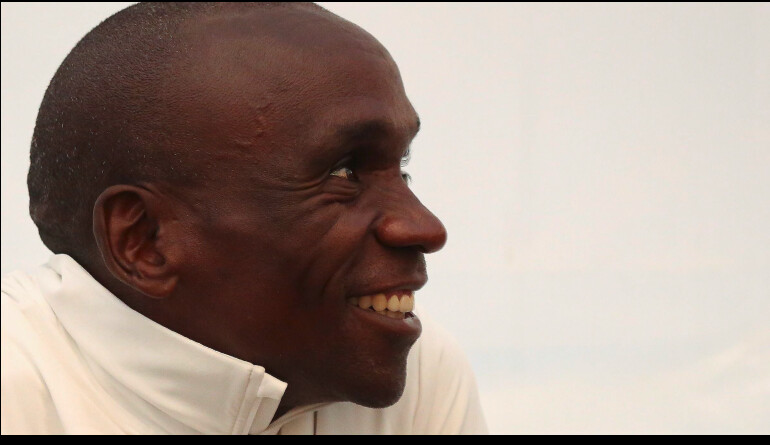
Not only for himself, but especially for those who have come after him. That includes everyone, both elite and recreational runners, who are preparing a marathon this fall or some distant point in the future. His current 2:01:09 world record and his barrier-breaking 1:59:40 time-trial effort in 2019 are legendary feats, both for the current generation of runners and for all time.
The 38-year-old Kenyan marathoner is a once-in-a-lifetime athlete, but time waits for no one, and especially not a long-distance runner. Like all elite athletes, his time at the top is limited, but fortunately, there is still time to immerse in the inspirational examples he’s providing.
Kipchoge recently announced he’ll return to the Berlin Marathon on September 24, where, last year, he won the race for the fourth time and lowered the world record for the second time. It is most likely what will be the beginning of a grand denouement as he goes for another gold medal at the 2024 Olympics next summer in Paris.
Given that he won his first global medal in the City of Light—when, at the age of 18, he outran Moroccan legend Hicham El Guerrouj and Ethiopian legend-in-the-making Kenenisa Bekele to win the 5,000-meter run at the 2003 world championships—it would certainly be one of the greatest stories ever told if he could win the Olympic marathon there next year when he’s nearly 40.
Certainly he’ll run a few more races after the Olympics—and maybe through the 2028 Olympics in Los Angeles—but, realistically, it is the start of a farewell tour for a runner who will never be forgotten.
Don’t get me wrong: I’m not at all writing Kipchoge off. In fact, I am excited to see him run in Berlin and can’t wait to watch next year’s Olympic marathon unfold. But just as we’ve watched Michael Jordan, Tiger Woods, Serena Williams, Shalane Flanagan, Usain Bolt, Allyson Felix, and other elite athletes succumb to the sunsetting of their peak performance level, so too will Kipchoge eventually suffer the same fate.
What I’m saying here is that we still have time to watch and appreciate Kipchoge eloquently working his magic and continue to be inspired in our own running and other pursuits in life. Remember how we marveled at Michael Jordan’s greatest in “The Last Dance” more than 20 years after his heyday? This is the start of the last dance for Kipchoge, who, like Jordan, is much, much more than a generational talent; he’s an all-time great whose legacy will transcend time.
Running has seen many extraordinary stars in the past 50 years who have become iconic figures— Frank Shorter, Joan Benoit Samuelson, Ted Corbitt, Carl Lewis, Steve Jones, Paul Tergat, Catherine Ndereba, Paula Radcliffe, Haile Gebrselassie, Kenenisa Bekele, Mary Keitany, Brigid Kosgei, and Kilian Jornet, to name a few—but none have come close to the body of work and global influence of Kipchoge.
Not only is Kipchoge one of the first African athletes to become a household name and truly command a global audience, but he’s done more than other running champions because of he’s been able to take advantage of this advanced age of digital media to deliberately push positive messages and inspiring content to anyone who is willing to receive it.
Kipchoge has won two Olympic gold medals, set two world records, and won 17 of the 19 marathons he entered, but he’s so much less about the stats and bling and more sharing—to runners and non-runners alike—that “no human is limited” and also that, despite our differences, we’re all human beings faced with a lot of the same challenges in life and, ultimately, hard work and kindness are what put us on the path to success.
How can an average runner who works a nine-to-five job and juggles dozens of other things in daily life be inspired by an elite aerobic machine like Kipchoge?
He is supremely talented, no doubt, but many elite runners have a similar aerobic capacity to allow them to compete on the world stage. What Kipchoge uniquely possesses—and why he’s become the greatest of all-time—is the awareness and ability to be relentless in his pursuit of excellence, and the presence and good will of how beneficial it is to share it.
If you haven’t been following Kipchoge or heard him speak at press conferences or sponsor events, he’s full of genuine wisdom and encouragement that can inspire you in your own running or challenging situation in life. His words come across much more powerfully than most other elite athletes or run-of-the-mill social media influencers, not only because he’s achieved at a higher level than anyone ever has, but because of his genuine interest in sharing the notion that it’s the simplest values—discipline, hard work, consistency, and selflessness—that make the difference in any endeavor.
This is not a suggestion to idolize Kipchoge, but instead to apply his wisdom and determination into the things that challenge you.
“If you want to break through, your mind should be able to control your body. Your mind should be a part of your fitness.”
“Only the disciplined ones in life are free. If you are undisciplined, you are a slave to your moods and your passions.”
“If you believe in something and put it in your mind and heart, it can be realized.”
“The best time to plant a tree was 25 years ago. The second-best time to plant a tree is today.”
Those are among the many simple messages that Kipchoge has lived by, but he also openly professess to giving himself grace to take time for mental and physical rest and recovery. It’s a simple recipe to follow, if you’re chasing your first or fastest marathon, or any tall task in life.
Kipchoge seems to defy age, but his sixth-place finish in the Boston Marathon in April proved he’s human. As much as it was painful to watch him falter, it was oddly refreshing and relatable to see him be something less than exceptional, and especially now that he’s tuning up for Berlin. He has nothing left to prove—to himself, to runners, to the world—but he’s bound to keep doing so just by following the same simple, undaunted regimen he always has.
There will be other young runners who will rise and run faster than Kipchoge and probably very soon. Fellow Kenyan Kelvin Kiptum—who has run 2:01:53 (Valencia) and 2:01:25 (London) in his first two marathons since December—seems to be next in line for Kipchoge’s throne of the world’s greatest runner. But even after that happens, Kipchoge’s name will go down in history alongside the likes of Paavo Nurmi, Abebe Bikila, Emil Zátopek, Grete Waitz, Shorter and Samuelson because of how he changed running and how he gave us a lens to view running without limits.
Berlin is definitely not the end of Kipchoge’s amazing career as the world’s greatest long-distance runner. I fully expect him to win again in an unfathomable time. But the sunset is imminent and, no matter if you are or have ever been an aspiring elite athlete at any level, a committed recreational runner, or just an occasional jogger trying to reap the fruits of consistent exercise, his example is still very tangible and something to behold.
by Outside Online
Login to leave a comment
Eliud Kipchoge says he is determined to keep on writing history — and secure a third Olympic marathon crown next year
Eliud Kipchoge is widely regarded as the greatest marathon runner of all time has set himself many challenges in his dazzling career, and remains insatiable despite his two Olympic titles, his world record of 2:01:09 in Berlin in 2022 and an incredible 15 wins in 18 marathons he has entered.
He broke the mythical two-hour barrier over the 26.2 mile (42.195 kilometre) distance in Vienna in 2019, with a time of 1:59:40, but the feat was not recognised as an official world record as it was not in open competition.
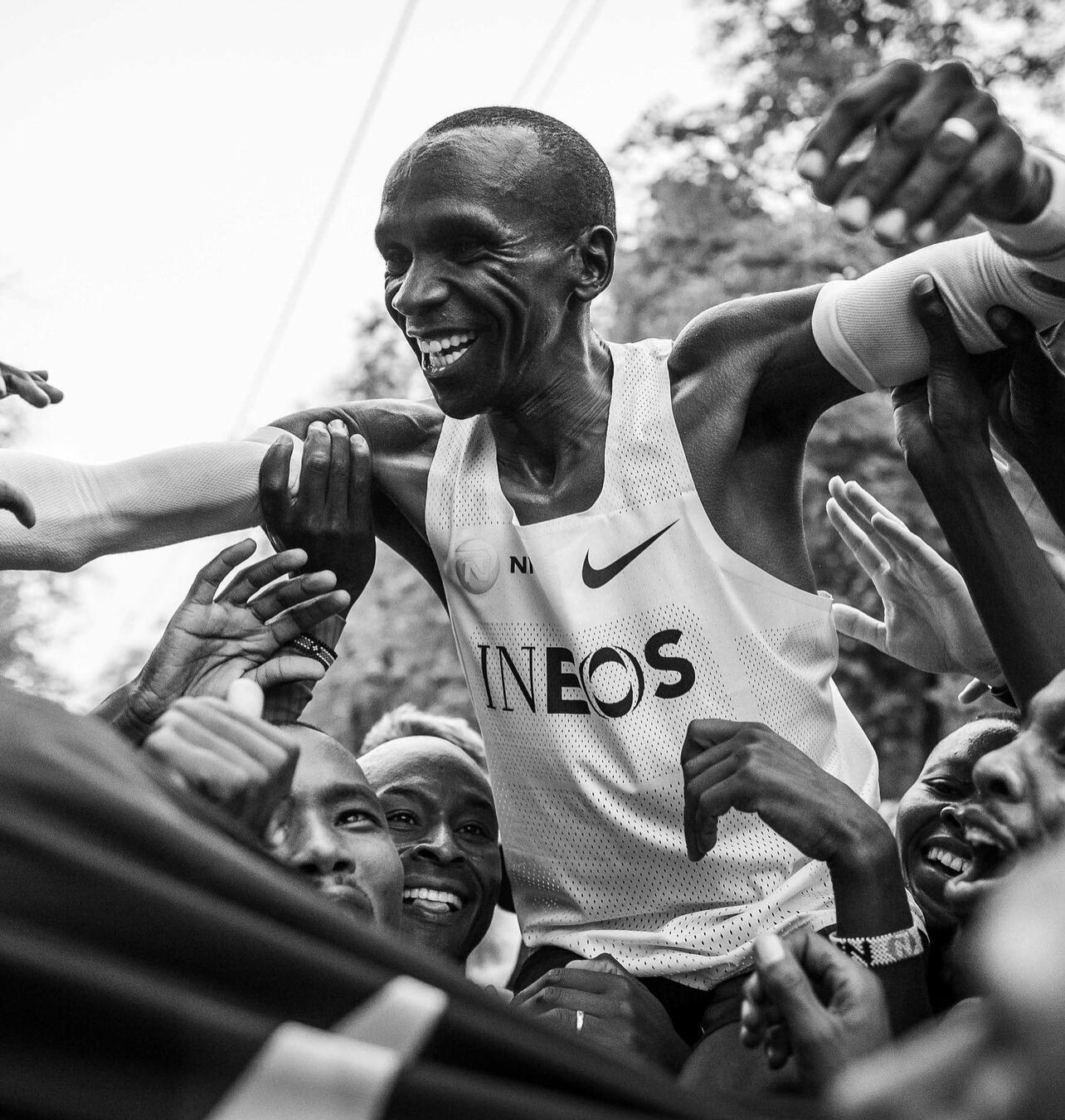
Victory has eluded the 38-year-old in the Boston and New York marathons, which if he won would make him the first man to have all six major titles under his belt.
"The priority now is to focus on the Olympics and win a third time. The other (challenges) will come later," Kipchoge says in an interview with AFP at the renowned Kaptagat training camp in Kenya's Rift Valley.
His two Olympic marathon gold medals in 2016 and 2021 put him at level pegging with Ethiopia's Abebe Bikila (1960, 1964) and Waldemar Cierpinski of East Germany (1976, 1980).
A third gold at the Paris Olympics in 2024 would make Kipchoge the undisputed marathon giant at the Games, and bring him a victory steeped in symbolism.
The French capital was the city where he won his first international crown in 2003 at the age of 18, clinching the 5,000 metres world championship title ahead of sporting legends Hicham El Guerrouj of Morocco and Ethiopia's Kenenisa Bekele.
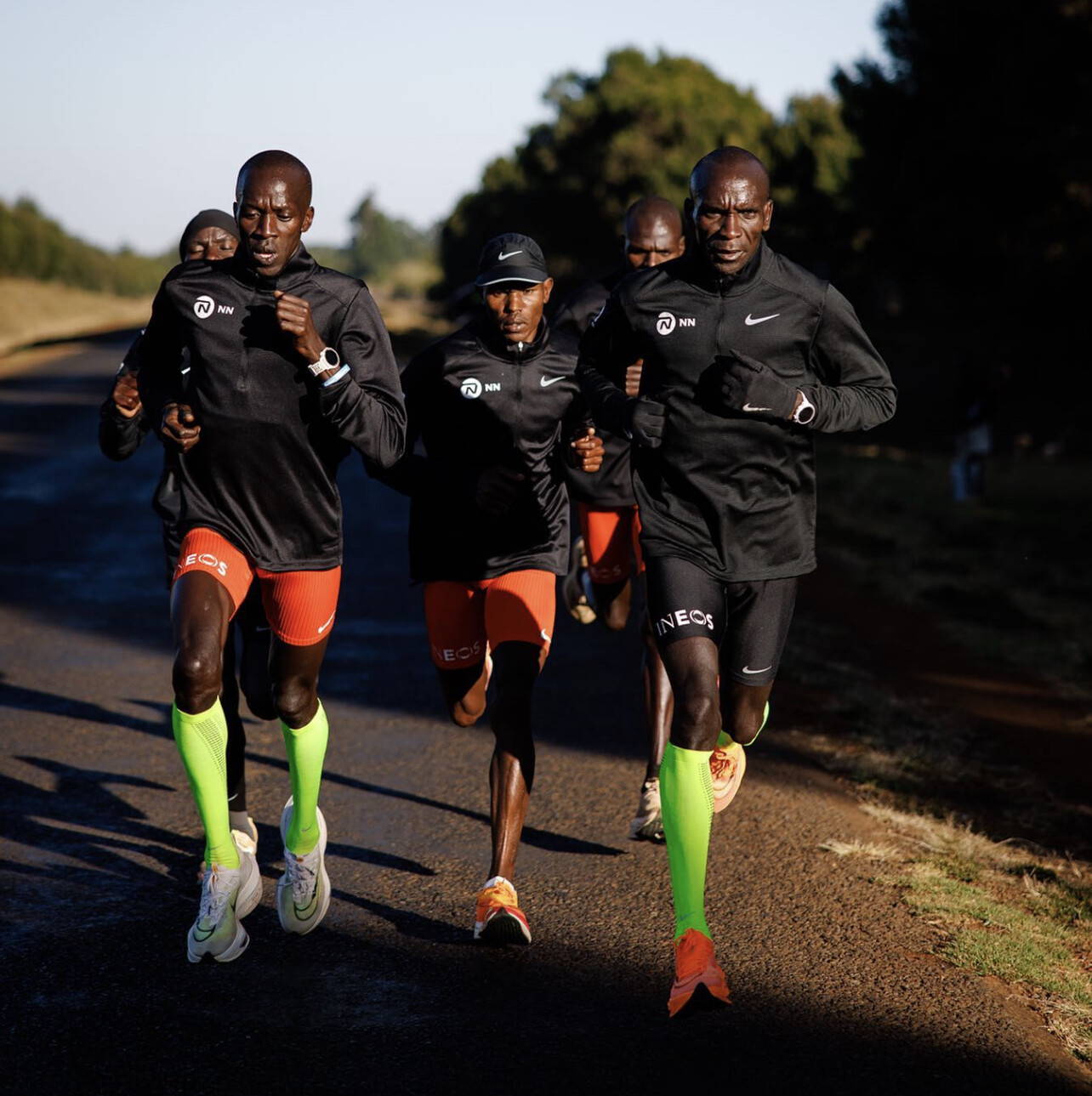
However, Kipchoge does not rule out giving up on his other goals.
"If time comes in to hang the racing shoes, I will say bye to other big things in sport."
'I know myself'
Sitting on a shaded bench in the Kaptagat camp where he has lived and trained for several months a year for 20 years, Kipchoge looks back on his poor showing in Boston on April 17, where he dropped from the lead group in the 30th kilometre and ended up finishing sixth.
This rare failure dampened his spirits.
"I'm trying to forget what has happened in Boston. It's caught in my mind... but I believe that what has passed has passed."
With his lifelong coach Patrick Sang, he has analysed the reasons for his disappointing performance, saying "it's mostly the hamstring".
He brushes aside concerns about his difficulties on hilly courses such as Boston and New York and which will also confront him in Paris.
"It is not really a concern, but I respect everybody's thoughts," he says. "I think it was a bad day and every day is a different day. I'm looking forward for next year.
"Everybody can write anything, you have no control. But I know myself."
'Want to be an inspiration'
Kipchoge is now preparing for his final marathon of the year.
"I'm doing well. My training is going on in a good way," he says.
But he has not yet disclosed which event it will be — Berlin on September 24, Chicago on October 8 or New York on November 5.
"At the end of July, I will know where to go."
He is following his usual training programme, eating up more than 200 kilometres a week on the red dirt tracks of Kaptagat forest, 2,400 metres above sea level.
Among his 20-odd training partners at the camp at the time of the AFP interview were Kenya's new 1,500m and 5,000m world record holder Faith Kipyegon and two-time New York marathon winner Geoffrey Kamworor.
As the respected dean of Kenyan athletics, Kipchoge is happy to see the emergence of 23-year-old compatriot Kelvin Kiptum, who won the London Marathon in April in 2:01:25, the second fastest time in history and just 16 seconds away from his own world record.
"I want to be an inspiration and I trust my breaking the world record twice is an inspiration to many young people. I trust they will want more and even beat my records."
'Prioritise drugs tests'
But in a country where athletics has become tainted by large-scale drug use, Kipchoge laments that "many people are going into shortcuts to advance".
"I think doping is there... It's all more about getting rich."
Kipchoge says the authorities should prioritise testing for performance-enhancing substances, saying it was much more important than education "because everybody who is doing doping knows what is going on".
"Just pump everything in testing, put testing as a first priority and all will be well," he says.
"The moment we prioritise testing and we register those who are handling the athletes across the country, we have the right data to know who is who in the whole country.
"But if we really ignore the people who are working with athletes and athletes themselves, then we are in danger."
Login to leave a comment
Six Best Marathon Runners of all time
The marathon is one of the toughest running events. This event is set at 26.2 miles or 42.195 kilometers, as presented by the International Association of Athletic Federations (IAAF) in 1921.
It's a significantly long-distance race that most people could not complete. It takes lots of training. One of the most famous marathon is Boston coming up Monday April 17. And one of our top six will be running, Eliud Kipchoge. So here are our six marathoners as the best of all time. What are your top six?
Eliud Kipchoge
Eliud Kipchoge easily tops this list as being the GOAT (greatest of all time!) in marathon history. He's a Kenyan runner that participated in marathons and used to specialize in the 5000-meter distance. Kipchoge has already made history and set a world record last September 2018 in Berlin after he completed the distance set for the Olympic men's race with 2:01:39.
No one else was able to defeat the record for several years until Eliud Kipchoge himself broke his own record at his fifth Berlin marathon last year, September 2022 with 2:1:9. It's a 30-second gap from his initial world record, which is a significant improvement already as a runner.
Not only that but he's also been a three-time London and Berlin champion since 2015! At 38 years old, he's already achieved so much, and he's not stopping just yet. Kipchoge also informed everyone that he'll be aiming for the Paris 2024 games, so you should also wait for that and check the updates on FanDuel Sports online.
Haile Gebrselassie
Next on the list is truly one of the marathon legends who dominated the industry when he was still active. Haile Gebreselassie is an Ethiopian long-distance runner who retired last 2015 after over 20 years of long-distance running. He's been active from the late 90s to the early 2000s, and a few of his astonishing achievements include consecutively winning the Berlin Marathon four times and the Dubai Marathon three times.
He also has four World Championship titles (1993 Stuttgart, 1995 Gothenburg, 1997 Athens, and 1999 Seville) and two Olympic golds (1996 Atlanta and 2000 Sydney) in a 10,000-meter distance run. Although he's no longer in the running scene, his legendary achievements will live long.
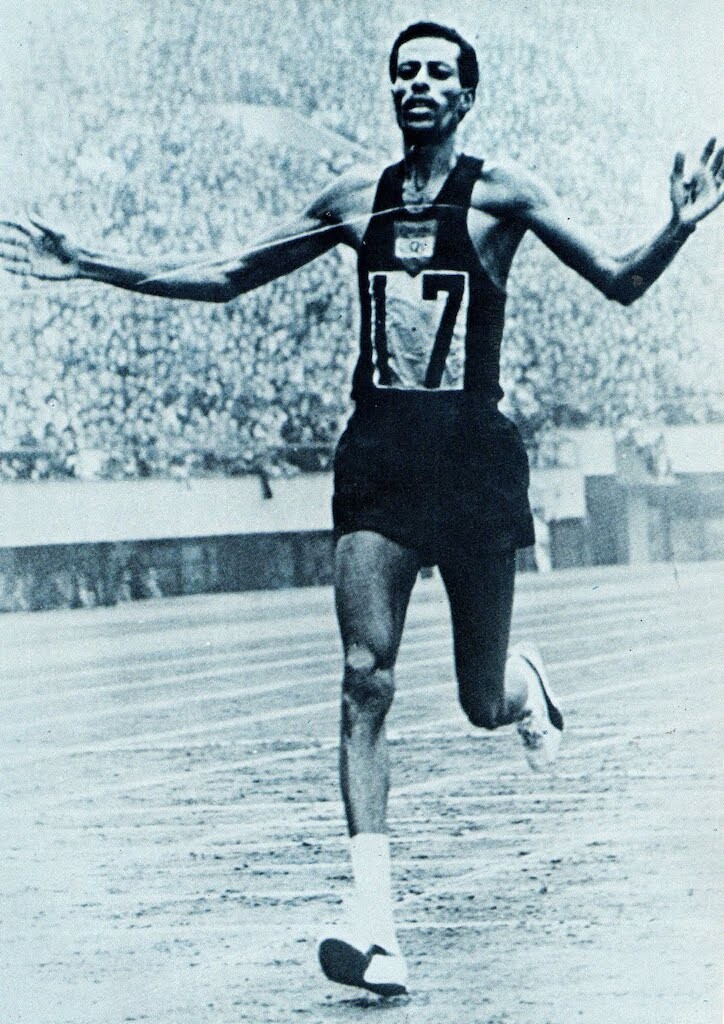
Abebe Bikila
If you're a huge fan of marathon events, you should already know about Abebe Bikila by now. He's a pioneer marathon runner that made significant feats in the history of the marathon. To start, he's the only athlete who ran barefoot during the Rome 1960 Olympics. He faced the cobblestones head-on, won a gold, and even set a world record. Bikila became the first Black African that ever topped at the Games in a 42.195km race.
Furthermore, his amazing barefoot run made it to the Guinness World Record as the fastest marathon run in bare feet at the 1960 Olympic Games with 2:15:16.2. Additionally, Abebe Bikila was also the first runner to win two Olympic marathon events after he grabbed another gold at Tokyo 1964
Mo Farah
Mo Farah is a British marathon runner who's only the second athlete to win 10,000-meter and 5,000-meter titles at successive Olympic Games. Throughout his athletic career, he accumulated 19 gold with nine silvers and two bronzes.
Moreover, he initially planned to retire but then changed his mind and participated in the Tokyo Olympics in 2020 and was even tipped by the excellent Eliud Kipchoge. He's still active to this day, but Farah shared with everyone that 2023 will be his final year after confirming that he will be participating in the London Marathon this April and giving it "one more shot."
Catherine Ndereba
Catherine, the Great Ndereba, is the first woman on this list, and she deserved it. She's one of the marathon runners that other athletes should recognize. The Olympics even regarded her achievement as one of the great.
In 2005, she was even awarded by the former Kenya president Mwai Kibaki with the Order of the Golden Aware due to her excellent accomplishments. Not only that, but she was also awarded 2004 and 2005 Kenyan Sportswoman of the Year.
Although she couldn't bring home gold from participating in the Olympic Games, she got to win silver awards for the 2004 Athen Games and 2008 Beijing Games. Additionally, she also has eight gold wins in World Championships and World Marathon Majors combined.
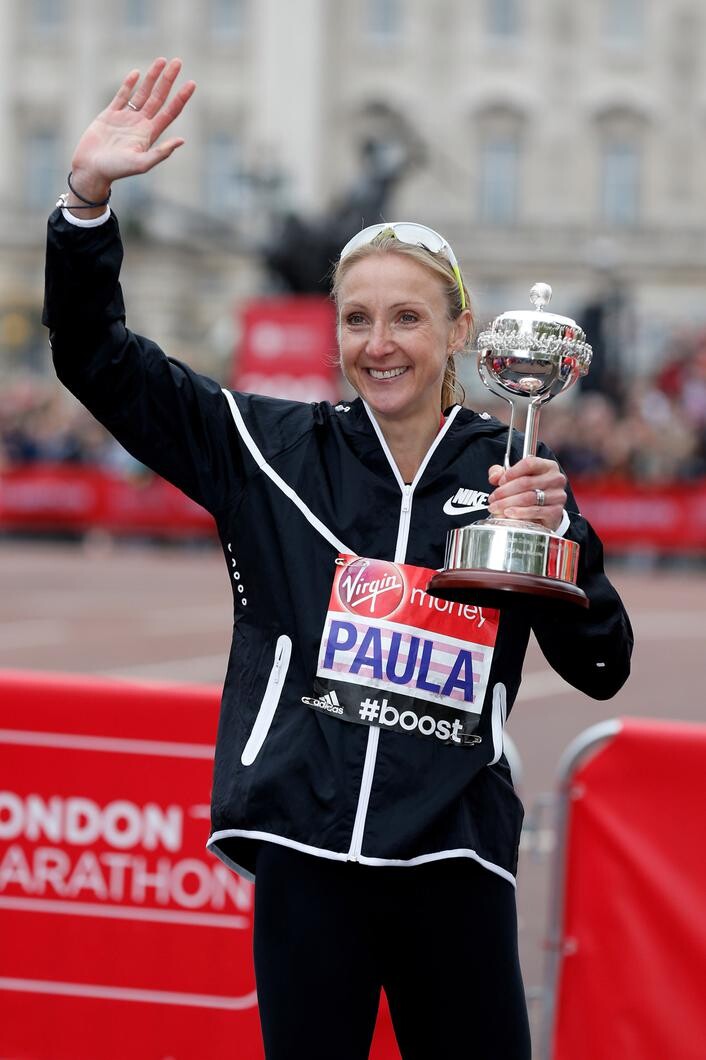
Paula Radcliffe
Paula Radcliffe is also one of the marathon runners that overcame her health issues as a child and became a successful athlete as an adult. Growing up, she struggled with anemia and asthma, but these were just a few bumps in the road as she continued to work hard and brought home several gold awards.
This British long-distance runner was the women's world record holder for over 16 years (2003 to 2019) for being the fastest female marathon runner with 2:15:25 until Brigid Kosgei broke it in 2020. Aside from that, she's also able to win New York City and London marathons three times and won 15 gold awards in total.
Final Thoughts
Marathon is an exciting sport, and no regular person can participate. It takes great understanding that a marathon is more than just running. Being as powerful as the runners mentioned above takes months of training and endurance. Although there are still other remarkable marathon runners, these six, in particular, made significant achievements in this field.
Login to leave a comment
Ethiopians poised to dominate Rome Marathon
The Acea Run Rome The Marathon has proved a happy hunting ground in recent years for athletes from the east African nation
Winners of the Rome Marathon in the past include Emile Puttemans of Belgium, Bernie Ford from Britain and Stefano Baldini of Italy. But Ethiopia has dominated in recent years and the east African nation will be tough to beat again in the 2023 event on Sunday (March 19).
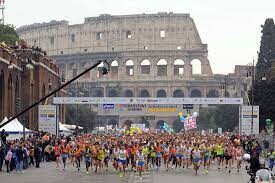
Six of the last nine men’s winners and seven of the last eight women’s champions in Rome have come from Ethiopia and runners from that country lead the entries this weekend too.
Fikre Bekele will attempt to defend his men’s title whereas fellow Ethiopian Zinash Debebe Getachew leads the women’s line-up.
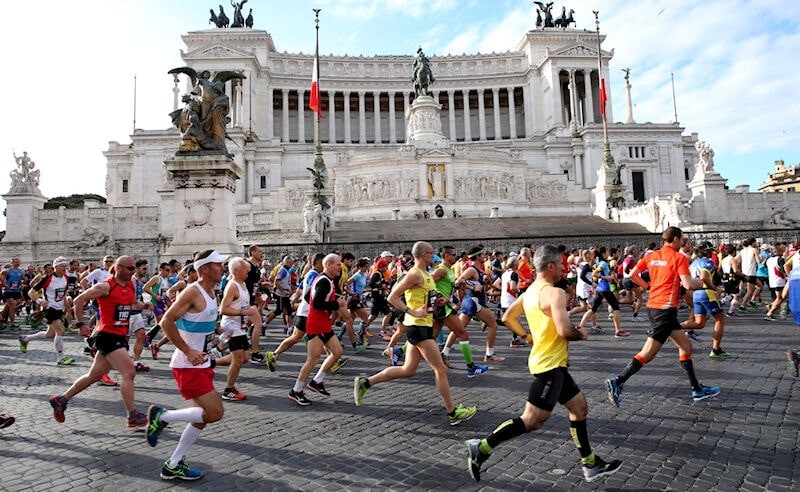
Bekele ran a course record of 2:06:48 last year in the Italian capital but has since improved his best to 2:06:16 when he won the Linz Marathon in October.
Also expected to be at the front of the 15,000-strong field are Berhanu Heye and Alemu Gemechu of Ethiopia along with Nicodemus Kimutai of Kenya. Look out too for reigning Dublin Marathon champion Taoufik Allam of Morocco.
Women’s favorite Getachew has a best of 2:27:15 but will be challenged by Brenda Kiprono of Kenya, plus Mulugojam Ambi and Amid Fozya Jemal of Ethiopia.
The women’s course record is held by Alemu Megertu with 2:22:52.
Italian interest, meanwhile, includes Nekagenet Crippa (the older brother of European 10,000m champion Yeman), Stefano La Rosa and Giorgio Calcaterra. The latter, who is now aged 51, is known as the ‘king of Rome’ as he first ran the Rome Marathon 20 years ago and has completed 330 marathons during his life, won the world 100km title three times and has notched up 12 consecutive victories in the famous 100km del Passatore ultra-marathon.
A little further down the field, all eyes will be on Ermias Ayele, a former race director of the Great Ethiopian Run who is aiming to complete the 26.2 miles barefoot in memory of the great Abebe Bikila, who stormed to Olympic glory on the streets of Rome in 1960.
“Abebe Bikila laid the foundation for the success of not only Ethiopian athletes, but Africans in general as he was the first black to win a gold medal in the Olympic Games,” he says. “However, I have always felt that he did not get the recognition he deserved. Moreover, his story always inspired me and that’s why I am planning to emulate him in the same place and the same way, where he made history and pay tribute to all he’s done for athletics and Ethiopia.”
by Jason Henderson
Login to leave a comment
Run Rome The Marathon
When you run our race you will have the feeling of going back to the past for two thousand years. Back in the history of Rome Caput Mundi, its empire and greatness. Run Rome The Marathon is a journey in the eternal city that will make you fall in love with running and the marathon, forever. The rhythm of your...
more...Nina Kuscsik to Receive Abebe Bikila Award at 2022 TCS New York City Marathon
Nina Kuscsik, a trailblazer for women’s running, will receive the Abebe Bikila Award this year, an honor which is presented each year from New York Road Runners (NYRR) to an individual who has made an outstanding contribution to the sport of distance running. The award will be presented to Kuscsik at NYRR’s Night of Champions during TCS New York City Marathon race week.
“I am very proud. It was such a long time ago when I was advocating for more opportunities in women’s running; it just seemed like the right thing to do,” Kuscsik said. “I attended all the meetings of the AAU in person, and I learned how to file appropriate legislation.
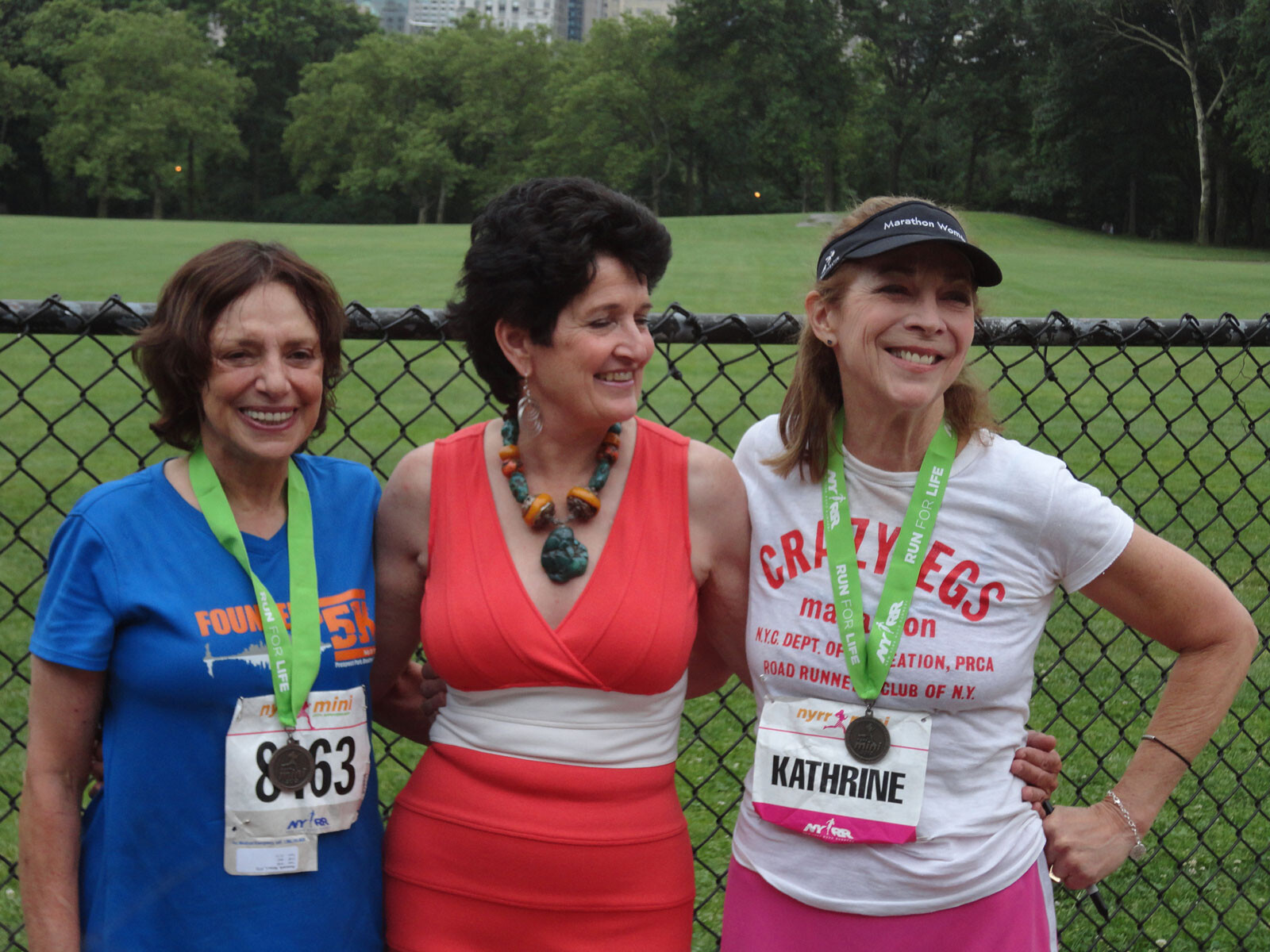
I also had other men and women helping me so that we could get the rules changed, so myself and other women runners would have the right, and be eligible, to run marathons. It is so wonderful to see the results of it all today.”
Kuscsik transformed the sport of running by breaking through the “boys’ club” barrier to change the rules so they included women. After she ran the 1969 Boston Marathon — unofficially, as women weren’t allowed to enter — she presented a proposal to the Amateur Athletic Union, asking for an end to the ban on women entering races. The committee agreed to raise the maximum distance of AAU-sanctioned events for women from five to 10 miles and added that “certain women” could run marathons. The rules still required a separate women’s start.
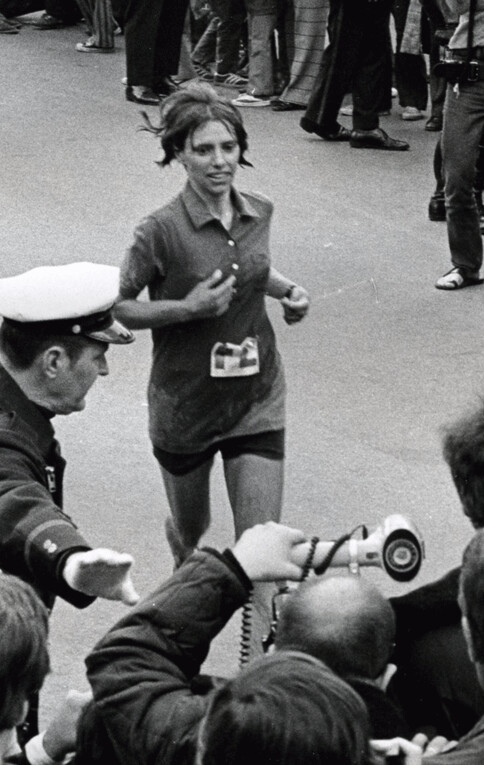
On June 3, 1972, together with NYRR president Fred Lebow and Kathrine Switzer, Kuscsik helped launch the Crazylegs Mini Marathon, the world’s original women-only road race now known as the Mastercard New York Mini 10K.
Four months later, on October 1, 1972 at the New York City Marathon, Kuscsik and five other women huddled together just before the Central Park start. When the gun went off, they sat down, protesting the women’s separate-start status. After the press got their story, the women got up and started with the men’s start. Kuscsik won the race, becoming the first woman to triumph in New York and Boston in the same year. Those six women — Lynn Blackstone, Jane Muhrcke, Liz Franceschini, Pat Barrett, Cathy Miller, and Kuscsik — are known around the world today as the “Six Who Sat.” This Saturday will mark exactly 50 years since their actions changed the trajectory of women’s running for the generations that followed.
Kuscik would return to New York in 1973 to win the marathon once again, and in 1977, she completed the annual NYRR 50-Mile in Central Park in 6:35:53, an American record. She was then among the group that successfully lobbied for a women’s marathon to be added to the 1984 Olympics.
by Running USA
Login to leave a comment
TCS New York City Marathon
The first New York City Marathon, organized in 1970 by Fred Lebow and Vince Chiappetta, was held entirely in Central Park. Of 127 entrants, only 55 men finished; the sole female entrant dropped out due to illness. Winners were given inexpensive wristwatches and recycled baseball and bowling trophies. The entry fee was $1 and the total event budget...
more...Top things to know about 2022 Tokyo Marathon
Eliud Kipchoge's addition to the elite list for the Tokyo Marathon has made it one of the key athletics races of the year.
The Kenyan heads back to Japan where, last August, he became the third man to retain the Olympic marathon title after Ethiopia’s Abebe Bikila and Waldemar Cierpinski of Germany.
After being postponed in 2021 due to the global pandemic, Tokyo Marathon 2021 returns on March 6, with Kipchoge and fellow marathon world record holder Brigid Kosgei part of a stellar field.
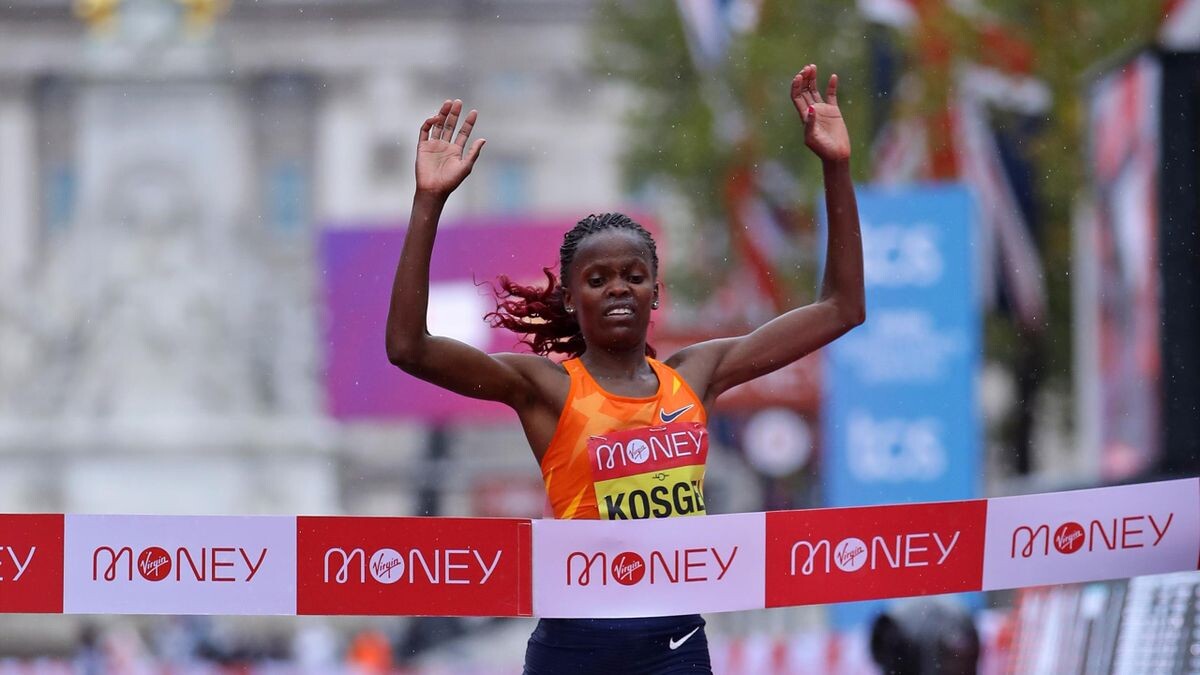
Here’s your guide to the top athletes to watch out for in the newest of six the World Marathon Majors, plus the route course and schedule.
After winning back-to-back Olympic golds with the largest victory margin since the 1972 Munich Games, Kipchoge cemented his reputation as the greatest marathon runner in history.
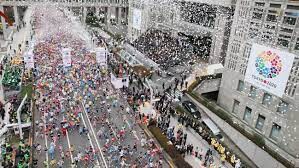
But the Kenyan, who ran the first sub-two-hour marathon in October 2019, says he wants to compete at Paris 2024 and become the first athlete to win three Olympic marathon titles.
“I still have something boiling in my stomach, that’s why I am looking forward to it… I want to be the first human to run and (win) three consecutive Olympics,” the 37-year-old star said on his plan for his fifth Olympics.
Kipchoge, a 5000m bronze and silver medalist on the track at Athens 2004 and Beijing 2008 respectively, has previously won the Marathon Majors in Chicago, Berlin (three times) and London (four times).
Tokyo will be his fourth stop, and he plans to complete the majors by running in Boston and New York City before he rounds off his marathon career that began in 2013.
With Tokyo boasting a fairly flat course, Kipchoge could go close to his world record of 2:01:39 although Wilson Kipsang's course record of 2:03:58 may be a more realistic target.
But it certainly will not be just a race against the clock.
Up against him will be the third-fastest marathon runner in history, Ethiopia's Birhanu Legese, who is a two-time Tokyo Marathon winner. His compatriot Mosinet Geremew, fourth on the all-time list, will also be in action. Geremew’s PB of 2:02:55 was from the 2019 London Marathon where he finished behind Kipchoge.
Shura Kitata, who ended Kipchoge's seven-year unbeaten run in the marathon at London in 2020, another high-class Ethiopian in the field along with Olympic bronze medalist Tamirat Tola and Kenya’s Amos Kipruto, a world bronze medalist.
Kosgei aiming for Tokyo Marathon after Olympic silver
After her silver behind Peres Jepchirchir, which earned Kenya a historic 1-2 at the Olympic marathon held in Sapporo, Kosgei returns to Japan seeking her first Marathon Major win in two years.
The 27-year-old set a world record of 2:14:04 in the 2019 Chicago Marathon.
Her four-race winning streak came to an end in the Olympic marathon and, two months later, she was only fourth in her unsuccessful bid for a third consecutive London title.
With Jepchirchir not competing, Kosgei will be expected to win although she faces significant opposition from her fellow Kenyan, Angela Tanui, who won last year's Amsterdam Marathon.
There are also two strong Ethiopians in 2021 Berlin Marathon winner Gotytom Gebreslase and Ashete Bekere who was third - one place ahead of Kosgei - in London last year.
USA's Sara Hall, who took a surprise second place behind Kosgei in the 2020 London Marathon is in the line-up, as is home favourite Niiya Hitomi who won the first Tokyo Marathon back in 2007 and was 21st at last year's Olympics.
There is plenty at stake for the home runners as the race serves as a trial for July's World Athletics Championships in Eugene, Oregon.
Tokyo Marathon 2021 course
The Tokyo Marathon runs on a flat course through the city’s famous tourist spots. What prevents it from being a super-fast course are at least a handful of 180-degree turns.
The runners will start outside the Tokyo Metropolitan Government Office and then go downhill by about 30m in the first 5km.
They take on a winding route through the streets of the Japanese capital, crossing the Sumida River, going back through Nihombashi and then Minato City before the finish in between the Imperial Palace and Tokyo Station.
by Evelyn Watta
Login to leave a comment
Eliud Kipchoge would like to become first athlete to three-peat in the Olympic marathon
World Athletics sat down with the marathon world record holder and double Olympic marathon champion Eliud Kipchoge, to reflect on his great career. Kipchoge cited his previous Abbott World Major Marathon wins, his world record and running the first sub-two-hour marathon (unofficially) as things he joyfully looks back on.
When asked about his future goals, he said he wants to become the first athlete ever to win three straight Olympic gold medals in the marathon.
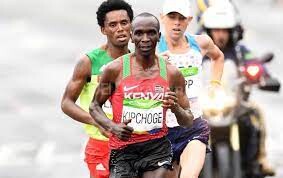
“My goal going into the 2020 games was to win back-to-back Olympic golds, and I’d like to win the third one,” Kipchoge said to World Athletics. He also mentioned other goals on his running bucket list, such as running all six Abbott World Marathon Majors and lowering his half marathon personal best.
If Kipchoge defends his title at the 2024 Paris Olympics, he would become the first-ever athlete to three-peat. Currently, he is in an exclusive club of three, the other two athletes being Abebe Bikila of Ethiopia (who won gold at both the 1960 and 1964 Games) and Waldemar Cierpinski of East Germany (who won gold at the 1976 and 1980 games, but it’s been highly speculated that he was part of East Germany’s state-sponsored doping program during the 1970s).
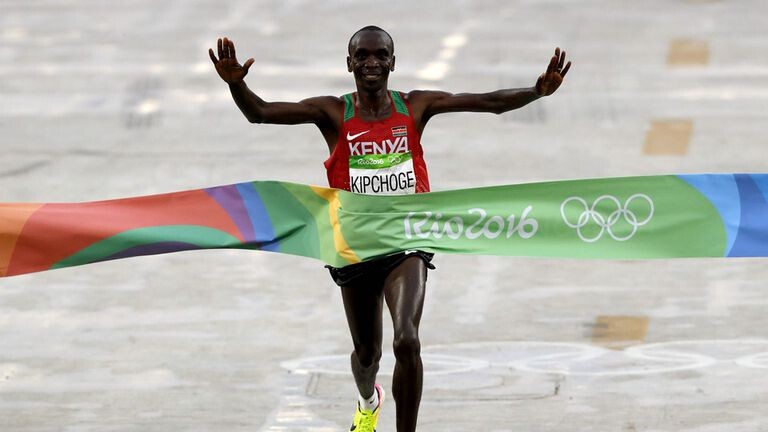
When he was asked about giving the world record another shot, Kipchoge said, “There are many people who could break my marathon world record. I think Geoffrey Kamworor will one day break the world record. Joshua Cheptegei will also make his mark in the marathon, and Kenenisa Bekele is still there.”
As his 2021 season comes to an end, Kipchoge isn’t sure of his 2022 race plans. “I always strive to improve my fitness, and I approach it like education. For example, if you have an exam in two years, you have to plan carefully for it to have success.”
by Marley Dickinson
Login to leave a comment
Paris 2024 Olympic Games
For this historic event, the City of Light is thinking big! Visitors will be able to watch events at top sporting venues in Paris and the Paris region, as well as at emblematic monuments in the capital visited by several millions of tourists each year. The promise of exceptional moments to experience in an exceptional setting! A great way to...
more...Eliud Kipchoge has been named best male athlete of Tokyo 2020 Olympics
Kenya's Eliud Kipchoge on Sunday won the Best Male Athlete accolade during the 2021 Association of National Olympic Committees (ANOC) Awards held in Greece.
Kipchoge delivered a masterclass in marathon running, breaking away at the 30-kilometre mark and never looking back to retain his Olympic title in two hours, eight minutes and 38 seconds during the Tokyo Olympics in August.
He became only the third man to defend the Olympic men’s marathon title after Ethiopia’s Abebe Bikila (1960 and 1964) and East Germany’s Waldemar Cierpinski (1976 and 1980).
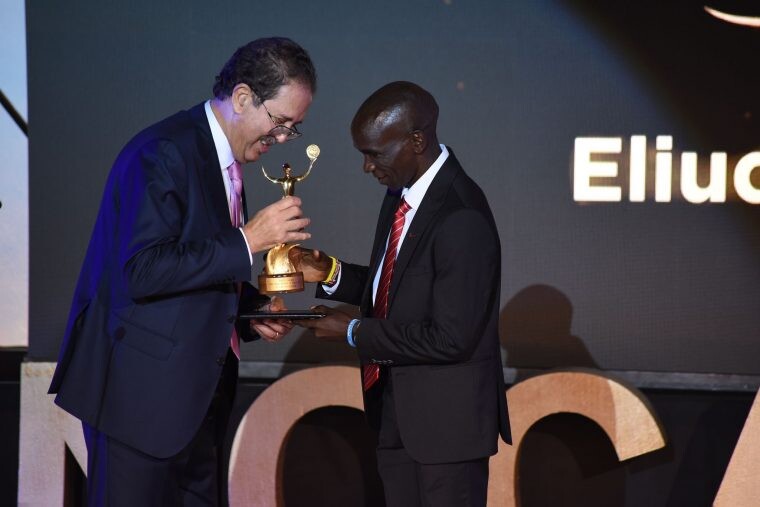
The victory at the Tokyo 2020 Olympics was Kipchoge’s 13th success in the 15 marathons he has raced in since 2013. He broke the world record in 2018 when he timed 2:01.39 in the Berlin Marathon.
On October 12, 2019, Kipchoge timed 1:59.40 at the Ineos 1:59 Challenge in Vienna, Austria. But the time did not count as a new marathon record since standard competition rules were not followed.
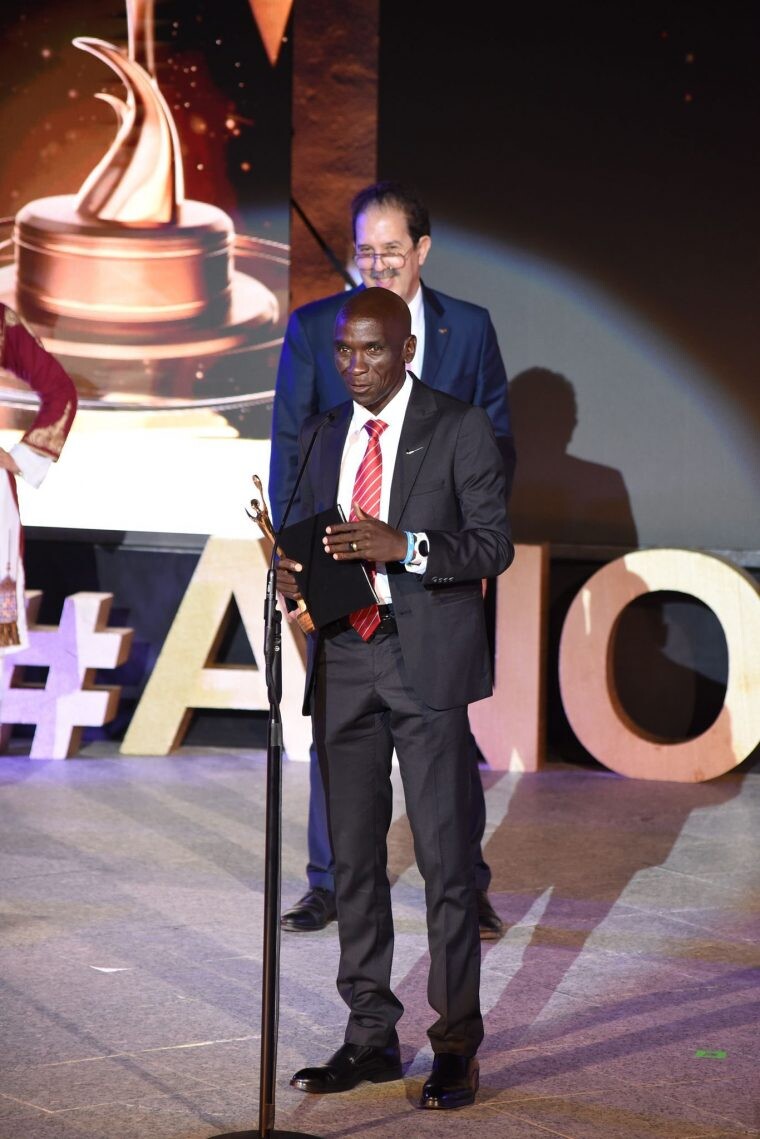
"It is an honor to win the ANOC Award for the Best Male Athlete at the Tokyo Olympics. With so many beautiful performances by so many athletes, I am proud to be the recipient of this award. Thank you all for your great support," the world record holder said.
He received his award from the president of Association of National Olympics Committee of Africa Mustapha Berraf at the Open Air Theatre of the Creta Maris Beach Hotel, in Greece.
The awards were organized by ANOC to celebrate the achievements of athletes at the Tokyo Games.
by Brian Yonga
Login to leave a comment
Tokyo Olympics preview: Mens marathon
Five years ago, marathon world record-holder Eliud Kipchoge was the last champion crowned at the Olympic Games in Rio. He'll be aiming to replicate that achievement in Sapporo on 8 August, the final day of the postponed Tokyo 2020 Games.
Successfully defending any title over the marathon distance is no easy task. Only two runners have managed the feat at the Olympics: 1960 and 1964 champion Abebe Bikila of Ethiopia and East German Waldemar Cierpinski, the winner in Montreal in 1976 and Moscow in 1980. Over the course of his career, Kipchoge has arguably achieved more than both of those legendary marathoners: he's broken the world record, which currently stands at 2:01:39, and pieced together a 10-race unbeaten streak over a five-year stretch which included victories at most of the world's most prestigious races, a record unparalleled in modern marathon running.
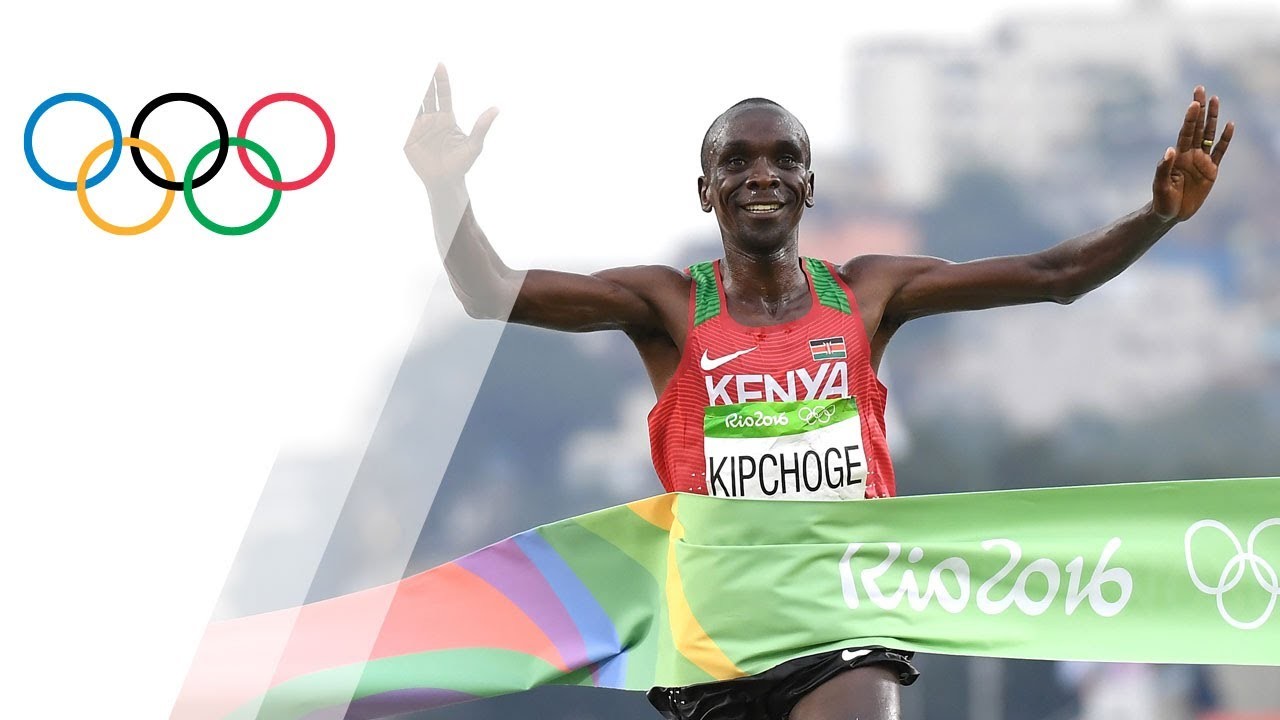
That streak finally came to a halt at the London Marathon in 2020, where he finished eighth in 2:06:49, the slowest marathon of his career. But he bounced back in April, winning in Enschede in 2:04:30. Four men have run faster this year in a season still battered by pandemic cancellations, but it was nonetheless a performance which illustrated that Kipchoge is fully capable of winning, even at 36. Indeed, he's widely considered a grand old man of the distance these days, a characterisation that certainly fits at this year's Games when only 11 of the 115 entrants are older.
Picking favourites in a marathon is difficult at the best of times. Throw a pandemic into the picture that ravaged the road racing season over the past 16 months, and it becomes a near impossible task.
That said, Kipchoge can expect a strong challenge from the Ethiopian squad, led by world champion Lelisa Desisa, Shura Kitata and Sisay Lemma. Desisa hasn't run under 2:06 since 2018 but his performance in Doha's difficult conditions in 2019 bodes well for a mid-summer marathon that is also expected to endure warm temperatures. Kitata won the London race that ended Kipchoge's streak, clocking 2:05:41, while Lemma has raced well in recent big city marathons, finishing third in both Berlin in 2019 (2:03:36) and Tokyo (2:04:51) in 2020.
But both of Kipchoge's teammates have run faster more recently, suggesting ambitions to claim more than one podium spot. Lawrence Cherono and Amos Korir earned their spots after finishing second and fourth at last year's Valencia Marathon in 2:03:04 and 2:03:30, respectively, the second and fourth fastest times of 2020.
Stephen Kiprotich, the 2012 Olympic champion and 2013 world champion, leads the Ugandan squad, returning for another shot after a 14th-place finish in Rio. But his most recent top-two finish dates back to 2017 when was second in Fukuoka so Ugandans will have higher hopes for Felix Chemonges, who has a 2:05:12 lifetime best from the 2019 Toronto Marathon, and Fred Musobo, whose 2:06:56 best was set in Daegu in 2019.
Belgian Bashir Abdi could also be factor. The 32-year-old improved his national record to 2:04:20 at the Tokyo Marathon last year. Other notables include Galen Rupp, the 2016 bronze medallist, who earned his return ticket after his victory at the US trials in Atlanta in February last year.
The marathon-mad host nation's hopes lie with Suguru Osako, who broke his own national record with a 2:05:29 run at the Tokyo Marathon in 2020, finishing fourth. He'll be joined by Marathon Grand Championships winner Shogo Nakamura and Yuma Hattori who has a 2:07:27 PB from 2018.
The field also includes Tachlowini Gabriyesos, a 23-year-old Eritrean native who clocked 2:10:55 at the Hahula Galilee Marathon on 14 March to become the first refugee athlete to better an Olympic qualifying standard.
by World Athletics
Login to leave a comment
Eliud Kipchoge will be attempting to become only the third man to win back-to-back Olympic marathon gold medals
Eliud Kipchoge will be a man on a mission on August 8, 2021 when the Tokyo 2020 Olympic Games men's marathon takes place in Sapporo.
No defending Olympic champion has won a second straight marathon gold medal since Waldemar Cierpinski did so at Moscow 1980 as the reigning champion from 1976.
Now, more than 40 years later, Kenya's Kipchoge will attempt to become just the third person, after Cierpinski and Ethiopian legend Abebe Bikila (1960, 1964) to win back-to-back Olympic marathon titles.
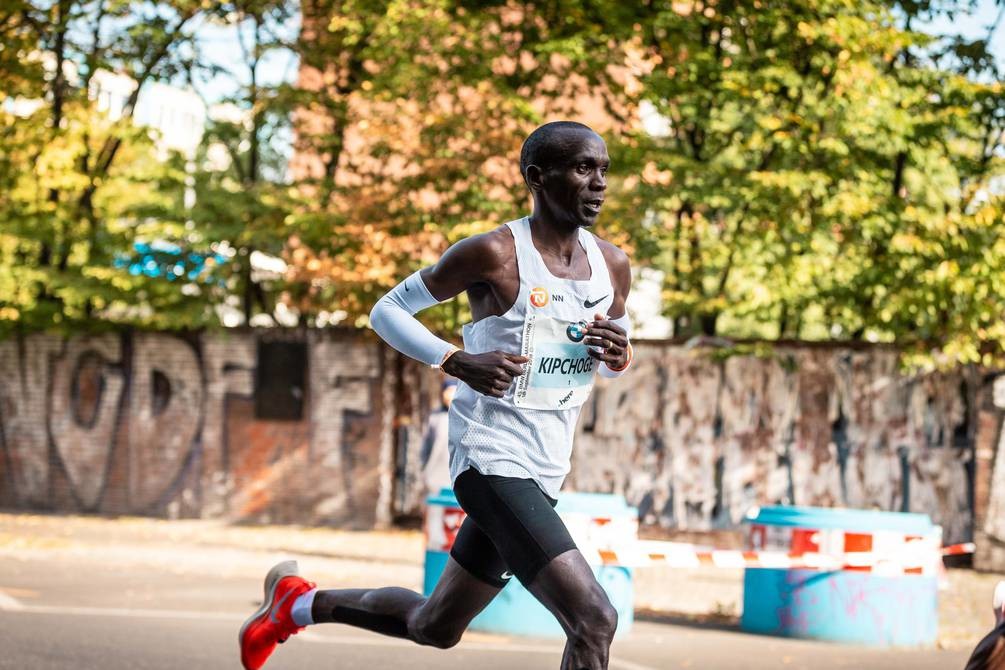
The effort will come nearly two years after becoming the first man to run a marathon distance under two hours, when he completed the INEOS 1:59 Challenge in Vienna in 1:59:40.
That particular achievement will be celebrated in August with the release of a new documentary, titled Kipchoge: The Last Milestone.
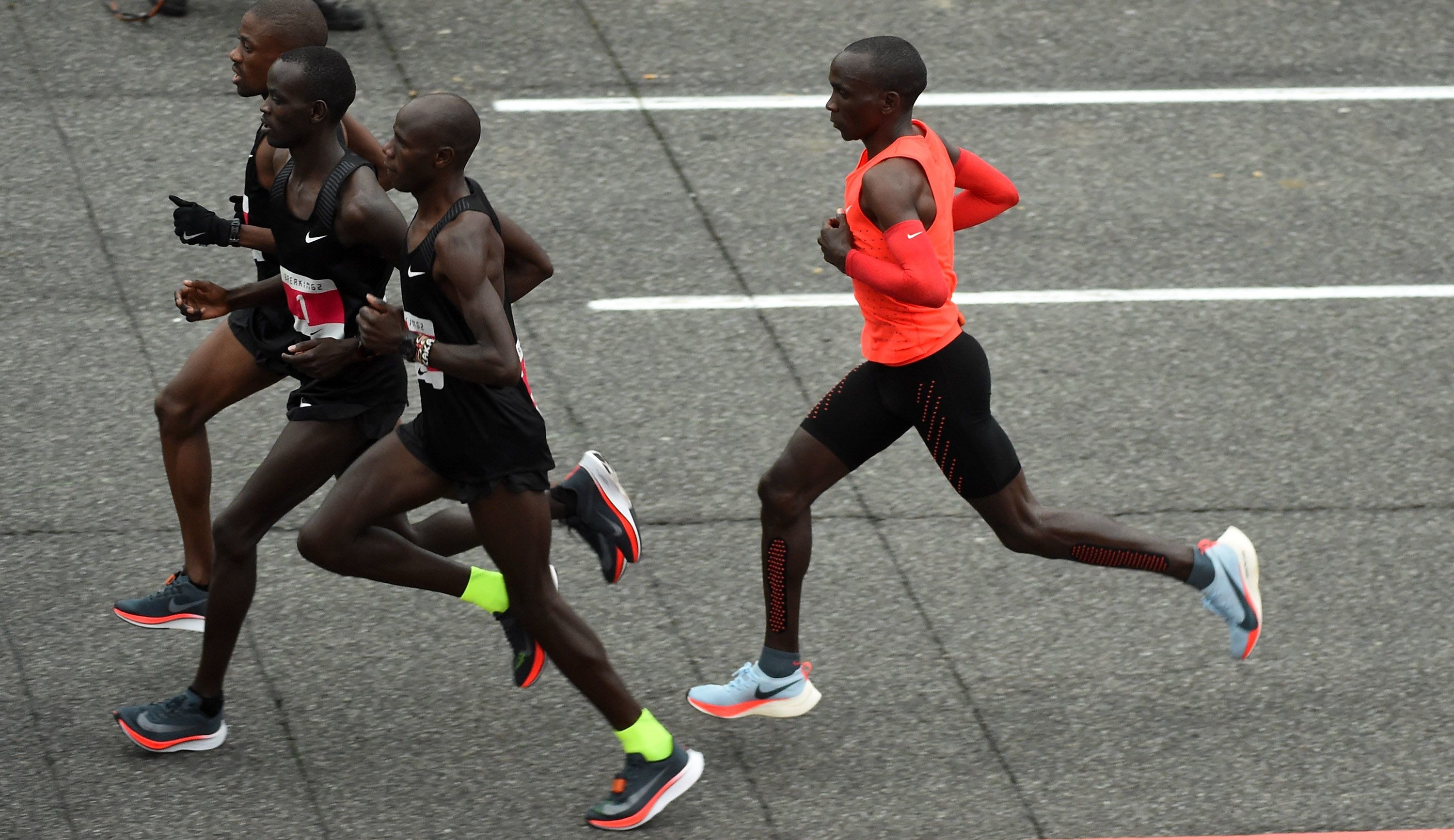
Eliud Kipchoge 1:59 documentary
The trailer for the Kenyan's new film has just been released, with Kipchoge writing on social media: "I hope by watching this film you will also feel inspired to run."
In the trailer, the 38-year-old says: "In the journey of life, there [are] ups and downs. In marathon, there [are] a lot of challenges, ups and downs. There is pain in training, pain in running, and joy at the end of the marathon."
The documentary will tell the story of how Kipchoge prepared for the monumental task.
Ridley Scott Creative Group, the documentary's producers, said in a statement that the film offers "unprecedented access to Eliud […] ahead of his attempt to achieve the seemingly impossible," including "footage from his home in Kenya, interviews with those closest to him, details of the daily rituals of his life and the dynamics within his team and community."
Kipchoge's training routine and how Covid affected it
The Kenyan has always been one who prefers training in a group.
He once said: "You cannot train alone and expect to run a fast time. There is a formula: 100% of me is nothing compared to 1% of the whole team."
However, the Covid-19 pandemic changed that. Suddenly, Kipchoge was forced to run alone on his training sessions due to lockdown restrictions.
"It was really hard to go training and not mix with people to fight the virus," he said in March ahead of the NN Mission Marathon, originally scheduled for Hamburg before being moved to Twente Airport, the Netherlands.
"I am happy to have since resumed training with the team, but we continue to make sure we do so safely within the protocols because the virus is still with us.
"Life has been hard but that is the way of the world – we need to get through it but I think we are on the right track to a brighter future.
"Life cannot stop, it does not stop for a single second. But what everyone should know is, the pandemic is just one of life’s challenges. Marathons are just like life, there are ups and downs every kilometre. Every mile there is a challenge.
"We should all be prepared to accommodate challenges in life but above all enjoy and embrace the challenges."
Kipchoge was vaccinated against Covid-19 at the end of April.
What next for Kipchoge? The star's future plans
The immediate future for Kipchoge consists of the Tokyo 2020 Olympic marathon in Sapporo, but beyond that, the 38-year-old has a "bucket list" of items he wants to check off.
Speaking recently to the Flotrack podcast, Kipchoge revealed that he wants to have competed in every World Marathon Major.
Kipchoge has competed in the Olympic Games, World Championships, London, Berlin, and Chicago Marathons, leaving him with the Boston, New York, and Tokyo Marathons.
He also admitted that he would like to run even longer distances, beyond the marathon's 42.195km.
"I would love to try 80km, 60km. I need to go to California and hike for six hours," he told Flotrack.
by ZK Goh
Login to leave a comment
Tokyo 2020 Olympic Games
Fifty-six years after having organized the Olympic Games, the Japanese capital will be hosting a Summer edition for the second time, originally scheduled from July 24 to August 9, 2020, the games were postponed due to coronavirus outbreak, the postponed Tokyo Olympics will be held from July 23 to August 8 in 2021, according to the International Olympic Committee decision. ...
more...There will be zero marathon runners from India at the Tokyo Olympics
Marathon races in the Olympic Games have been a permanent fixture in the men's roster since the inaugural Athens Games of 1896, while the women's event was first held 88 years later in Los Angeles. Ethiopian athletes have enjoyed the most successful in Olympic marathons, with men winning four golds; two of which came from Abebe Bikila in 1960 and 1964, who was the first athlete to win back-to-back golds (the only other athlete to win two golds in the marathon was East Germany's Waldemar Cierpinski in 1976 and 1980), and Ethiopian women have won two golds.
The Olympic records are 2:06:32 for men, set by Kenya's Samuel Wanjiru in 2008; and for women, it's 2:23:07 seconds, set by Tiki Gelana of Ethiopia in 2012.
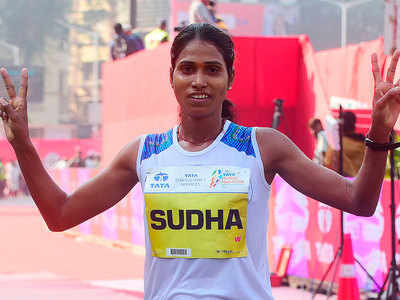
India's history at the marathon dates back to 1928 when Phadeppa (Pavananjey) Dareppa Chaugule became India's first Olympic marathon runner. He represented India in the 1920 Summer Olympics in Antwerp, Belgium, and finished 19th with a timing of 2 hours 50 minutes 45.2 seconds. He hails from the town of Belgaum (Now Belagavi) in Karnataka.
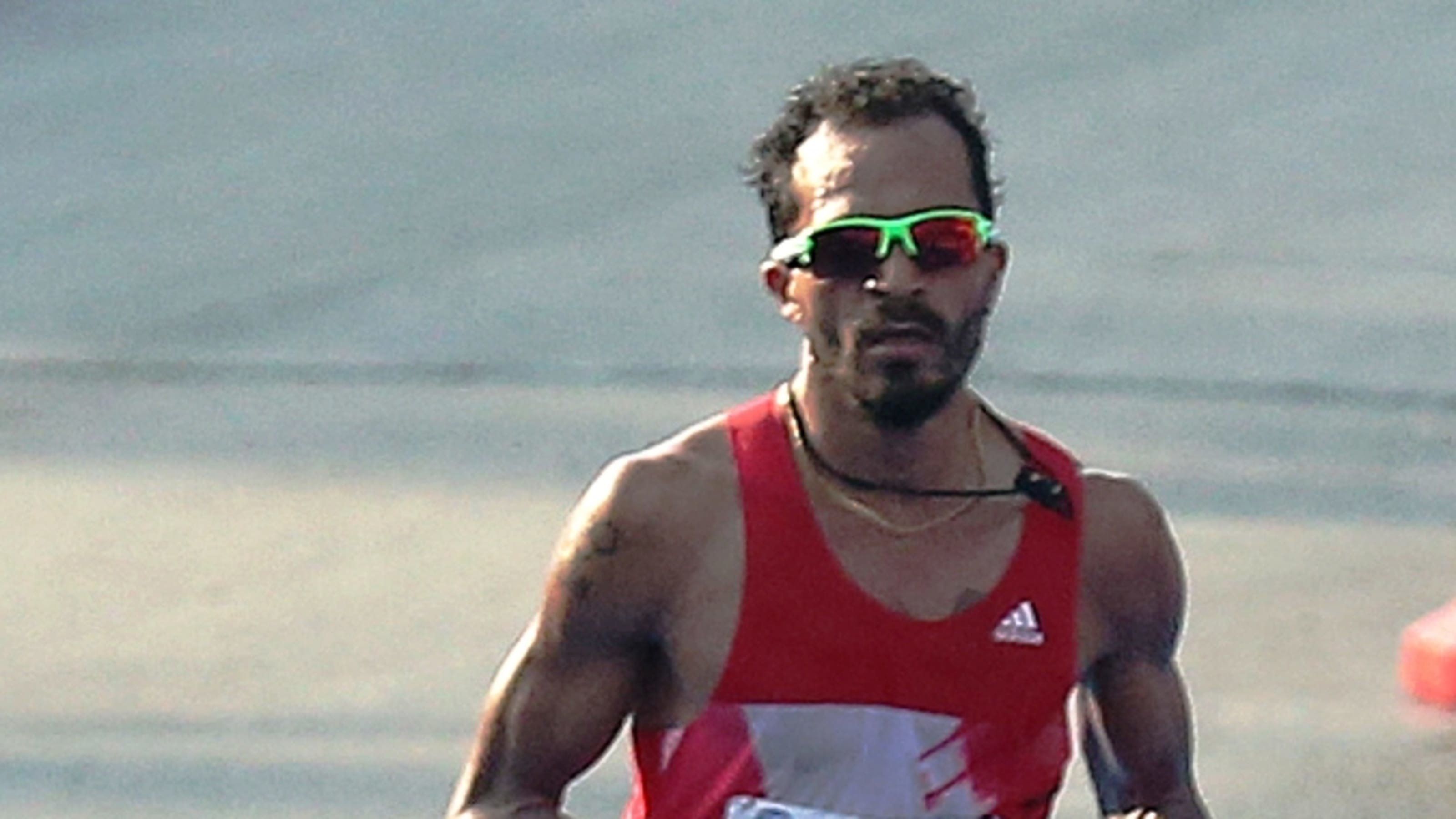
With the passage of time, many Indian marathon runners have taken part in the Olympics, with the 2016 Rio Olympics, having the highest number of five athletes - Thonakal Gopi, Kheta Ram, Nitendra Singh Rawat among the men, O.P. Jaisha and Kavita Raut among women. However, five years down the line nobody from India will be qualifying for Tokyo Olympics in the marathon.
Why did Indian athletes fail to qualify in marathons for Tokyo Olympics? To understand the reason one has to know the qualification process for the marathon at the Tokyo Olympics. The athletes in marathons (both men and women) can qualify by either entry standard or qualify by ranking during the qualifying period. The qualifying standard is 2:11:30 for men and 2:29:30 for women, while the qualifying period was originally from 1 January 2019 to 31 May 2020. Due to the COVID-19 pandemic, the period was suspended from 6 April 2020 to 30 November 2020, with the end date extended to 31 May 2021. The world rankings period start date was also changed from 1 January 2019 to 1 December 2018.
With so many runners qualifying by meeting the entry standard, there was no scope left for an athlete through the world ranking. Indian athletes' hopes were shattered mostly because of the coronavirus wreaking havoc without allowing the Athletics Federation of India (AFI) to conduct marathons at regular intervals since 2020. Though the date was extended to 31 May 2021, India hosted fewer marathons, and also the potential challengers for Tokyo Olympics took part in a few of them hoping to qualify through the marathons hosted in 2021. With the second wave of coronavirus hitting India hard again, many of the marathons got cancelled and as a result, India's best marathon hopefuls could not meet the qualifying standard. Among the men, the hopefuls were Nitender Singh Rawat, Srinu Bugatha and Rashpal Singh.
While Rawat attained a personal best of 2:15:52, Bugatha and Rashpal could attain 2:14:59 and 2:18:57 during the qualification period. Among women, Sudha Singh had a PB of 2:34:56, Jyoti Gawate a 2:45:48 and Swati Gadhwe 2:58:10. With nobody being able to meet the mark, India will have to go to the Tokyo Olympics without a marathoner.
by The Bridge
Login to leave a comment
Tokyo 2020 Olympic Games
Fifty-six years after having organized the Olympic Games, the Japanese capital will be hosting a Summer edition for the second time, originally scheduled from July 24 to August 9, 2020, the games were postponed due to coronavirus outbreak, the postponed Tokyo Olympics will be held from July 23 to August 8 in 2021, according to the International Olympic Committee decision. ...
more...Japan's former Olympic marathon champion Naoko Takahashi has donated her winning bib at the 2000 Sydney Olympics to the World Athletics Heritage Collection
Naoko Takahashi, the first woman to run a marathon in under two hours 20 minutes, has become the latest athletics star to generously donate a competition item from their career to the World Athletics Heritage Collection.
Takahashi clocked an Olympic marathon record of 2:23:14 on 24 September 2000 to win at the Sydney Olympic Games. It was the first Olympic victory at the marathon by a Japanese woman and her Games record was not broken until 2012.
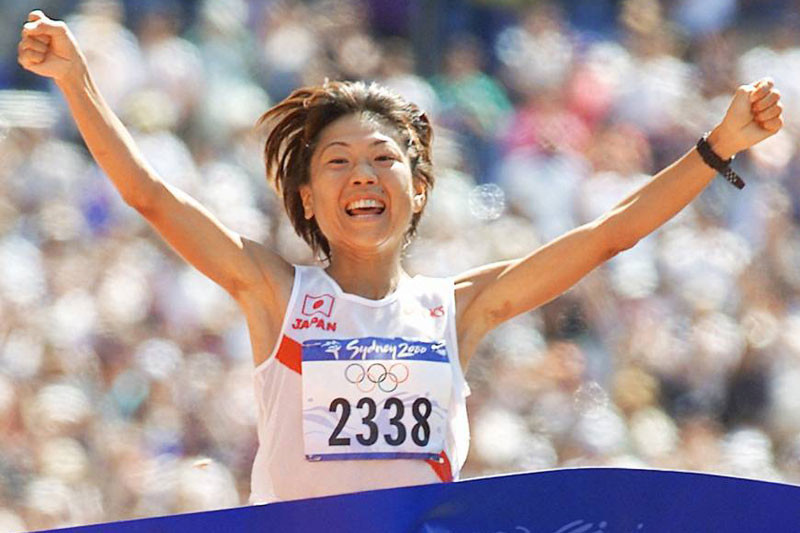
Takahashi moved to the front of the race at the 20-kilometre point along with her compatriot Ari Ichihashi and Romania’s Lidia Simon. Ichihashi dropped off the pace five kilometres later, leaving Takahashi and Simon to battle for the title. The two ran together until 35 kilometres when Takahashi broke away, quickly establishing a 30-metre lead. She extended it over the next five kilometres and although Simon narrowed it slightly over the waning two kilometres, Takahashi, wearing bib number 2338, went on to a comfortable victory.
It is that bib which she has very kindly donated today.
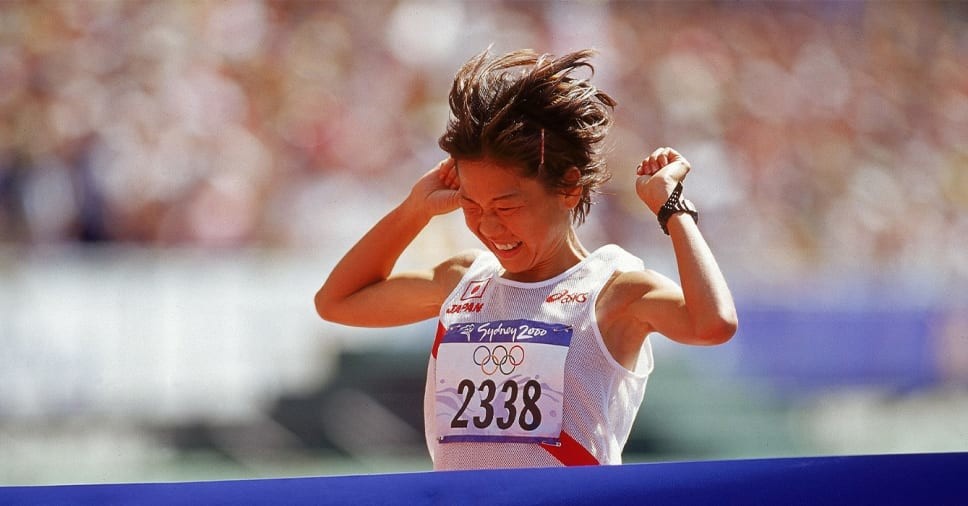
“I am happy to see my Sydney bib join the Heritage collection,” said Takahashi. “I would like the bib’s donation to help increase interest in the marathon, and the challenge and beauty of distance running. It might also help motivate more people to take up running for fitness and fun, or perhaps even competitively, picturing themselves in my shoes.”
Daughter Of The Wind
There was no underestimating Takahashi’s national popularity and fame after her Olympic triumph. She was the subject of a comic strip entitled "Kazekko," or "Daughter of the Wind". Launched in May 2001, the strip told Takahashi’s life story and at its height attracted 700,000 readers weekly.
Takahashi’s career was inspired by the legend of Ethiopia’s two-time Olympic marathon champion Abebe Bikila. As she developed as a runner, Takahashi was also impressed by the running of Japan’s Yuko Arimori, who raced to Olympic silver in 1992 and bronze in 1996.
Yet it was only when her training partner Hiromi Suzuki won the 1997 world title in the marathon that Takahashi, who had debuted with a seventh place finish in 2:31:32 in Osaka in January of that year, truly believed that her future lay in the marathon.
Audience Of 55 Million
Takahashi, who was coached by the late Yoshio Koide who last year was posthumously awarded the World Athletics Plaque, won the first of her two Berlin Marathon titles in September 2001 with a landmark 2:19:46 performance, a world best and the first time in history that a woman had broken 2:20 for the distance.
Estimates vary but it is believed that 55 million Japanese, nearly half of the country’s population, watched Takahashi’s Berlin race on television.
“I am really happy about the (Berlin TV audience),” Takahashi told The Japan Times in 2003. “It’s an honour that people still remember me, and you can tell that people’s awareness of the sport is big.”
“There are so many different sports these days and the level of viewership is a tribute to the people who came before me and built the marathon up and made it as popular as it is now. Being a part of that is amazing and I am grateful.”
by World Athletics
Login to leave a comment
A refugee athlete has been selected as an elite runner for the Tokyo Marathon for the first time in the event’s history
Yonas Kinde, who currently lives in Luxembourg, will take part in the Marathon on March 1 2020.
Yonas participated at the Olympic Games Rio 2016 as a member of the first-ever Refugee Olympic Team created by the International Olympic Committee (IOC). He continues his training as an IOC Refugee Athlete Scholarship Holder and will compete as part of his efforts to secure selection in the IOC Refugee Olympic Team Tokyo 2020.
He comes from Ethiopia, the country of the famous “barefoot runner” Abebe Bikila. Abebe is known for winning gold medals in the marathon at two consecutive Olympic Games, including the Olympic Games Tokyo 1964. For Yonas, it has been a dream to run in Tokyo, as he deeply admires Abebe – an Ethiopian hero.
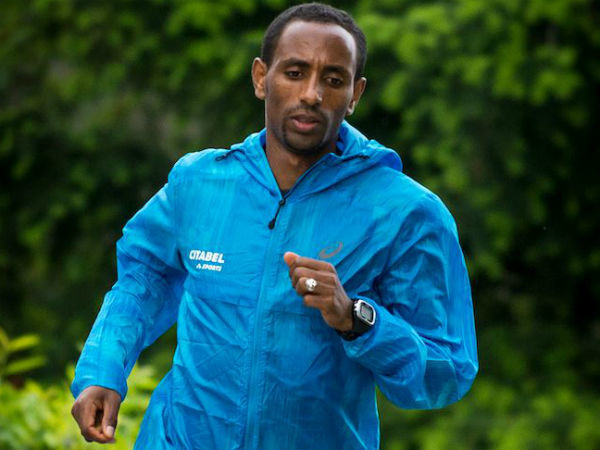
“Growing up, Abebe was an inspiration to me and I am delighted to be able to run in Tokyo, where he achieved so much”, Yonas says. “Through my participation, I hope to send the message that, if supported, refugees can unlock great potential.”
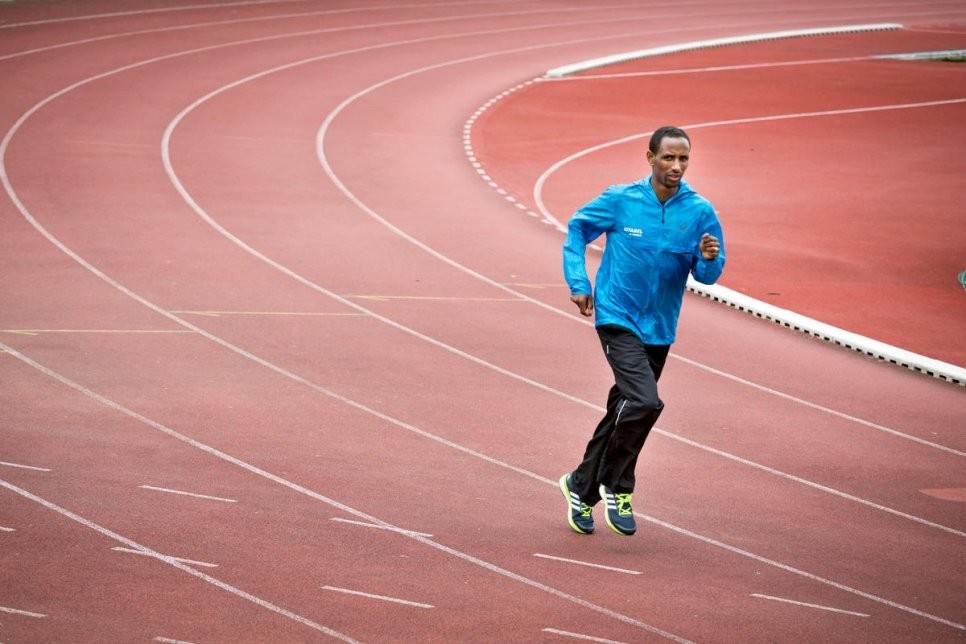
Those who participate at the elite category are runners who meet specific requirements set by the Japan Association of Athletics Federations (JAAF).
Yonas received the elite runner status following an initiative of Japan for UNHCR (J4U), the national partner of the UN Refugee Agency in the country.
It will be Yonas’s first visit to Japan. During his stay, he will train at the Tokorozawa Campus of Waseda University.
The refugees’ participation at the Olympic Games Rio 2016 gave courage and hope to millions of people who have been forced to flee their homes due to conflict and persecution. It also testified to the enormous strength of refugee athletes, who strive to do their best despite facing adversity.
Yonas Kinde is a marathon runner and Ethiopian refugee, who arrived in Luxembourg five years before he was selected for the IOC Refugee Olympic Team Rio 2016. He threw himself into life in Luxembourg, taking French classes regularly, and working as a taxi driver to earn a living, all the while pushing himself to become a better runner. Yonas began running in Ethiopia as a teenager, and after fleeing to Luxembourg he competed and won several titles in Luxembourg, France and Germany.
Login to leave a comment
Tokyo Marathon
The Tokyo Marathon is a world-renowned annual marathon held in Tokyo, Japan. As one of the prestigious Abbott World Marathon Majors, it attracts elite and amateur runners from around the globe. The race holds World Athletics Platinum Label status, recognizing its high competitive standards, top-tier organization, and international appeal. Sponsored by Tokyo Metro, the Tokyo Marathon has grown into one...
more...The Rome Marathon is under new management with a new name, logo and new date, Sunday March 29 2020
The Rome marathon is under new management and will be run Sunday March 29 it was announced this morning at the Ara Pacis Museum.
With a new name and logo, the new management has a desire to show that Rome loves sports and, in particular, running.
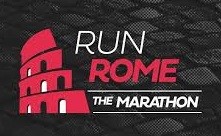
An international level marathon with tens of thousands of athletes, half of them from hundreds of countries will showcase Rome, a unique city for its charm, monuments, history and heritage.
The Marathon looks to the future, but at the same time retains its unique charm represented by a path that runs the history of Rome and its symbolic monuments said the new director of the event, Michaela Castelli.
Run Rome The Marathon is the most fascinating race in the world. you will feel your heart beat each of the 42.195 km that you will run.
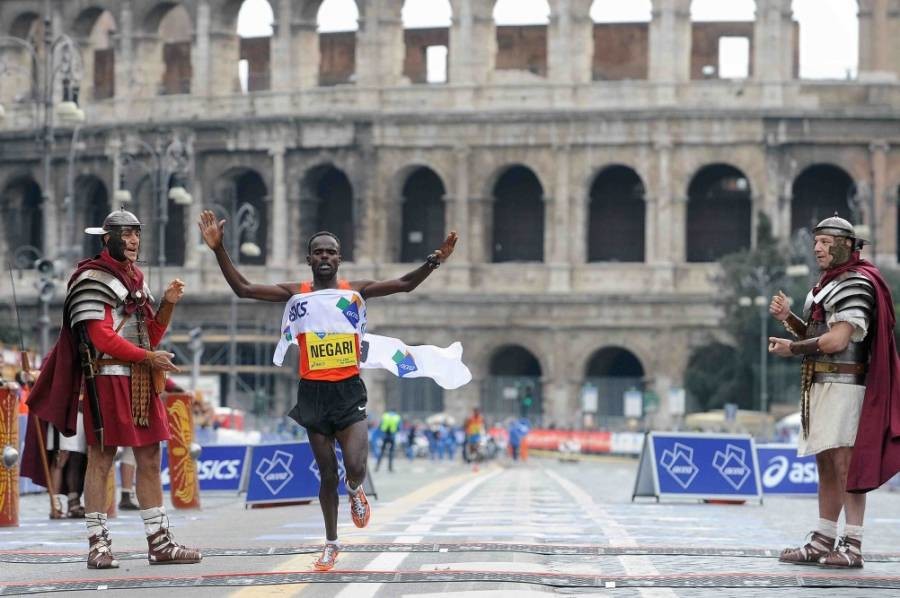
Your steps will cross the same roads where the ancient romans used to walk more than two thousand years ago. every view will tell you a story. Every sight will be eternal like Rome is.
The course will carry through Foro Italico, the Mosque of Rome, you will be running on the same steets trampled a few millennia ago by the ancient Romans. On the route, you won’t miss Piazza Navona, Via del Corso, Piazza del Popolo and Piazza di Spagna, with the famous stairway of Trinità dei Monti. The main character of the marathon will be the Colosseum, majestic background, start and finish points of the race.
Running and monuments, sweat and history, personal achievements and medals to conquer, joy, thrills and tears. Rome will surround you, will embrace you, will capture you, Rome awaits you.
The marathon has ancient roots, here in Rome it has a strong tradition. We can go back a century, up to April 2, 1906, when Dorando Pietri won the marathon crossing the finish line in Piazza di Siena. Or we can go back 60 years, to the magic night in 1960 when during the Olympic Games in Rome, Ethiopian Abebe Bikila opens the season of African Marathoners, running bare footed the whole race. His run through Appia Antica enlightened only by torches became pure history in athletics, as well as his winning photo while crossing the finish line at the Arco di Costantino.
The marathon we all know and that will be held on Sunday, 29 March 2020 has its roots in 1995 with Italia Marathon Club, and has been awarded with the prestigious Gold Label IAAF in 2011. In 2019 FIDAL hosted the event and for 2020 a new organizing committee took place, made up by Infront, Corriere dello Sport – Stadio, Italia Marathon Club and Atielle Roma.
More than 115 countries took part in the past editions.
by Cesare Monetti
Login to leave a comment
Run Rome The Marathon
When you run our race you will have the feeling of going back to the past for two thousand years. Back in the history of Rome Caput Mundi, its empire and greatness. Run Rome The Marathon is a journey in the eternal city that will make you fall in love with running and the marathon, forever. The rhythm of your...
more...World Champions Lelisa Desisa and Ruth Chepngetich named Marathon Runners of the Year by the AIMS
This year’s World Marathon Champions Lelisa Desisa and Ruth Chepngetich are the Marathon Runners of the Year. The runners from Ethiopia and Kenya respectively were honored at the AIMS Best Marathon Runner (BMR) Gala in Athens tonight. The Gala, which was shown live on Greek TV, was staged by the Association of International Marathons and Distance Races (AIMS) and the Hellenic Athletics Federation, SEGAS. On Sunday the 37th edition of the "The Athens Marathon. The Authentic" will take place on the original course with a record field of 20,000 runners.
Three further distinctions were awarded by AIMS on Friday evening in Athens: the French journalist Alain Lunzenfichter, for a long time a reporter with the sports newspaper L’Équipe, received the AIMS Lifetime Achievement Award. The AIMS Green Award went to the Xiamen Marathon in China and the Harmony Geneva Marathon for UNICEF received the AIMS Social Award.
Two outstanding personalities in the sport of marathon running were also honored at the Gala on Friday evening: Britain’s Ron Hill and Stefano Baldini of Italy. Hill won the 1969 European title on the Athens course and Baldini took the Olympic title here in 2004. 15 years after his Olympic triumph, the Italian will be running the Athens Marathon once again. “I hope I can enjoy the race since Athens is a very special place for me,” said Stefano Baldini.
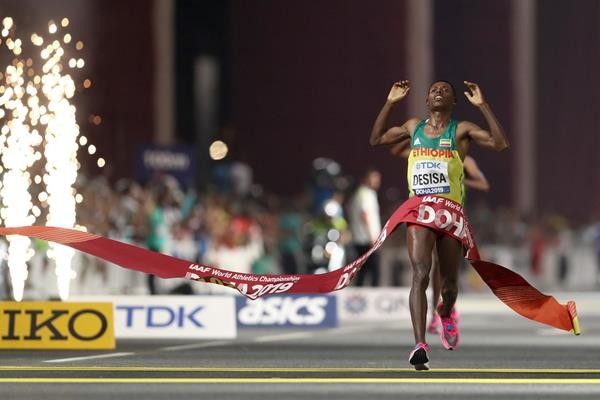
“We are honored to have the best marathon runners in the world here in Athens, where the marathon as well as the Olympic Games of the modern era began, and honor them at the Gala,” explained the president of the Hellenic Athletics Federation (SEGAS) Kostas Panagopoulos. The AIMS president, Paco Borao from Spain, spoke in referring to both winners: “No-one will be in any doubt that these two World champions, who won in extreme weather conditions in Doha, deserve to be the Best Marathon Runners.”
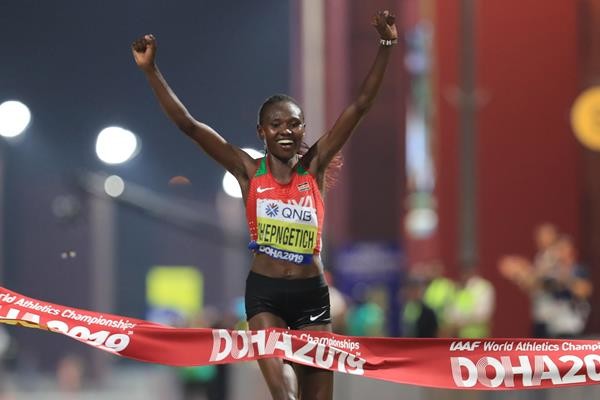
Lelisa Desisa is the first Ethiopian to have received this award which was first made in 2013. The most recent recipient was Kenya’s Olympic champion and world record holder Eliud Kipchoge who was awarded the prize for the last four years in succession. During the relevant period for the AIMS Best Marathon Runner, Lelisa Desisa won the New York Marathon in November 2018, running an impressive 2:05:59 on the difficult course. After a second place in Boston in April the 29-year-old Ethiopian won the World Championships marathon gold in Doha, Qatar a month ago. “The Olympic marathon in 2020 is my dream,” said Lelisa Desisa. “I want to follow in the footsteps of Abebe Bikila and win the gold. I hope I can inspire a new generation of young athletes by my success.”
Ruth Chepngetich established herself among the world’s best marathon runners with two outstanding victories: First she took the Istanbul Marathon in November 2018 with 2:18:35 then became the third fastest woman ever at that time when she won in Dubai in January with 2:17:08. At the end of September the 25 year-old took the World Championship title in Doha in extreme weather conditions. “It is a great honor to receive this award in Athens, where the marathon was born. This is a lifetime event in my career,” said Ruth Chepngetich. Asked about the world record, which was recently lowered to 2:14:04 by fellow-Kenyan Brigid Kosgei the BMR winner said: "I believe it is possible for me too to break the world record if I train accordingly.”
Among the distinguished international guests from Sport, Politics and Culture at the Gala on Friday evening in Athens was Greece’s Minister for Development and Investment, Adonis Georgiadis. “I ran the marathon myself last year and have to say, it was a once in a lifetime experience. I recommend everyone to run this race. The Athens Marathon stands for fun, happiness and energy,” added the Minister.
Login to leave a comment
Does the International Association of Athletics Federations need a more stringent rule to define legal running shoes?
It appears that running, the original and most elemental of sports, now faces the same tradition vs. scientific innovation challenge that other sports have encountered. Think: tennis rackets, baseball bats and, perhaps most similar, competition swimwear — those polyurethane-based suits that were banned starting in 2010. The outcome of the current running-shoe debate could affect everything from stock prices of global footwear companies to who wins the Olympic marathon in Japan next summer.
Kipchoge, who became the first person to run the 26.2-mile distance in under two hours, and Kosgei, who set a women’s world record, raced in a revolutionary and bizarrely tall Nike shoe that has taken the marathon world by storm since 2016. In the last 13 months alone, male runners in the Nike shoes have recorded the five fastest marathon times ever. Other running-shoe companies are struggling to catch up, and may face patent hurdles.
The current I.A.A.F. rules state only that shoes may not confer an “unfair advantage” and must be “reasonably available” to all. The rule does not explain how these two values can be measured.
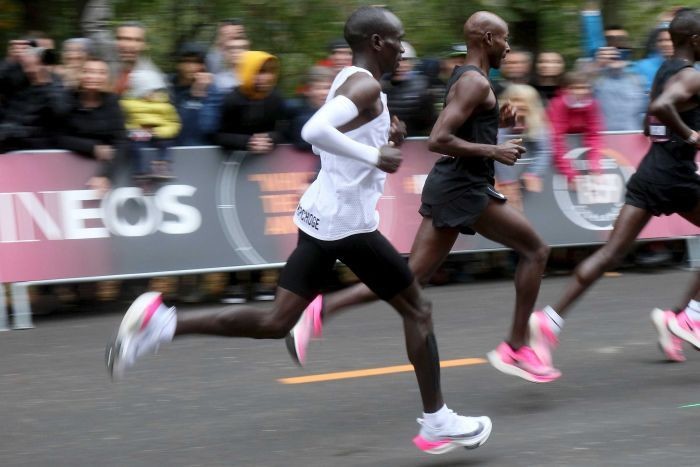
This week, the British Journal of Sports Medicine published a commentary that is likely to guide the debate. In it, Geoffrey Burns, a 2:24 marathoner and University of Michigan doctoral candidate in biomechanics, argued for “a single standard in competition running shoes: regulate the shoe midsole thickness.”
With the right material, a thicker sole produces more spring. Without clear restrictions, it is likely only a matter of time before someone comes up with a way to make a shoe with more powerful springs.
Burns called for an upper limit of 31 millimeters — about 1.2 inches — of midsole. Nike’s current Vaporfly 4% and Vaporfly Next% shoes have a 36-millimeter midsole, or about 1.4 inches. Why 31 millimeters? That’s a fairly common midsole height for previous models.
Until 2016, marathon racing shoes were constructed from thin slabs of rubber. In 1960, an Ethiopian runner named Abebe Bikila even managed to win the Olympic Marathon in his bare feet. Everyone understood that less was more; you ran more efficiently when you carried minimal weight on your feet.
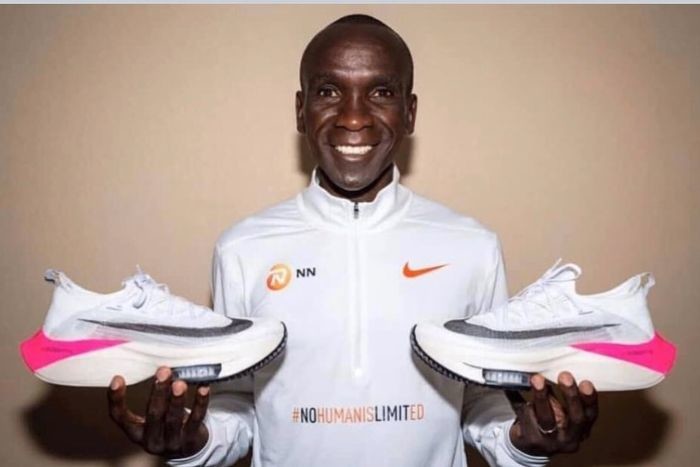
In 1968, when shopping for the shoes that carried me to victory in that year’s Boston Marathon, I had only two criteria. They had to be light and thin, and they had to be cheap. I was still in college. I paid $9.95 for my lucky shoes — a pair of Onitsuka Tiger TG-4 Marathons.
Little changed in the footwear for elite marathoners in the next five decades, until Nike introduced its Vaporfly 4% shoes in 2016. These shoes contained a new midsole foam, Pebax, so lightweight that it is almost like running barefoot. Pebax also delivers 30 percent more energy return than the foams used in most running shoes since the 1970s. This allows Pebax to function almost like leg muscles, but without the fatigue that can debilitate the legs after 20 miles.
The Nike shoes also include a carbon fiber plate in the midsole. This plate might increase energy return, or it might improve foot function during the running stride. Either way, the plate is prominently mentioned in Nike’s patent application.
A 2018 New York Times data analysis based on public race results uploaded to Strava, the athlete-tracking and networking company, found that runners in Vaporflys ran 3 to 4 percent faster than similar runners wearing other shoes.
To be fair, Kipchoge, 34, is an otherworldly talent who has beaten the best in the world in last-generation shoes. There probably isn’t another marathoner who could break two hours in the shoes he wore last weekend.
by Amby Burfoot
Login to leave a comment
INEOS 1:59 Challenge
Mankind have constantly sought to reach new frontiers and to achieve the impossible. From Edmund Hillary reaching the summit of Mount Everest to Roger Bannister’s four-minute mile to Felix Baumgartner jumping from space we have frequently redefined the limits of human achievement and broken new barriers previously seen as simply impossible. After the four-minute mile and the ten second 100m...
more...Britain’s Basil Heatley, the 1964 Olympic marathon silver medallist and former world record-holder for the distance, died on Saturday at the age of 85
Born on Christmas Day in 1933, Heatley was a promising youngster and earned podium finishes at the national level as a youth and junior at cross country.
He made his marathon debut in 1956 and reduced his PB to 2:23:01 one year later, but didn’t run the distance again for six years.
Between 1957 and 1964 he made seven appearances at the International Cross Country Championships, the forerunner to the IAAF World Cross Country Championships. He won the individual senior men’s title in 1961, improving on his silver medal from four years prior.
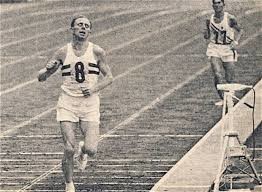
Later in 1961 he clocked 47:47 for 10 miles, setting what was the 100th ratified world record by a British athlete. After returning to the marathon in 1963, he set a world best of 2:13:55 in June 1964, marking him as a medal favorite ahead of the Olympic Games in Tokyo later that year.
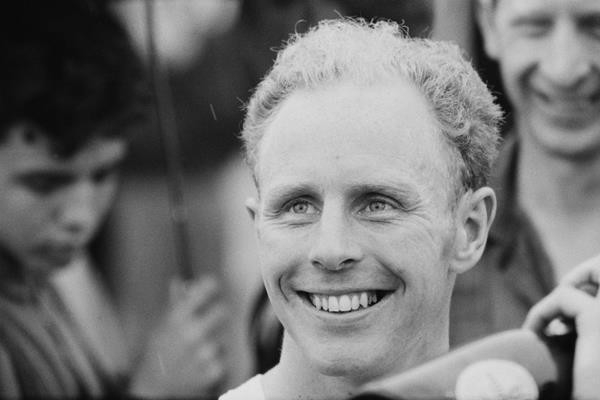
There was no stopping defending champion Abebe Bikila in Tokyo, though. Just weeks after having his appendix removed, the Ethiopian retained his title and set a world record of 2:12:11. In the race for the silver medal, Heatley passed Japan’s Kokichi Tsuburaya with just 110 meters to go inside the Olympic stadium and took the silver medal in 2:16:19.
Heatley retired at the end of 1964 but went on to work as a team manager for the national athletics team.
Login to leave a comment
The opening ceremony for the 2020 Tokyo Olympic Games is just one year away
The last time that Tokyo hosted the Olympic Games is now 55 years ago, but the next time is just 365 days away as the Japanese capital commemorates one year to go to the 2020 Games opening ceremony.
When the Games came to Tokyo in 1964, 82 countries competed in athletics, no man had broken 10 seconds for 100m, the high jump was won with the straddle (men) and scissors (women) techniques and the longest women’s event was 800m. Abebe Bikila became the first man to win two Olympic marathon gold medals, Al Oerter won the third of his four consecutive discus gold medals and Betty Cuthbert won the first Olympic women’s 400m title to add to her 100m and 200m titles in 1956, completing a still unique sprint treble.
More than half a century later, athletics has changed and so has Tokyo but the Japanese city is preparing once again to welcome the world’s best athletes.
In the heart of Tokyo, the reimagined 1964 Olympic stadium, designed by Japanese architect Kengo Kuma, is almost complete.
Swathed in greenery and featuring wooden lattice screens reminiscent of traditional Japanese temple design, the three-tiered stadium will become the stage for the world’s finest athletes to perform at their very best.
Like almost every aspect of the preparation for the 2020 Olympic Games, it will feature the characteristics of both tradition and regeneration. The Games venues are divided into two main zones in the Japanese capital: the Heritage zone (where athletics will take centre stage) and the Tokyo Bay zone, which represents modern Japan and will host the athletes’ village, the Main Press Centre and International Broadcast Centre, and an urban sports venue.
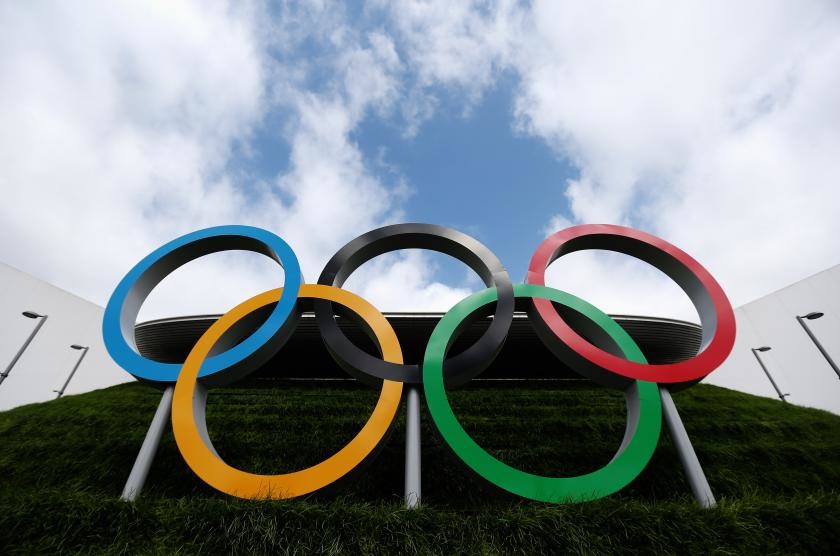
The Japanese intend to break with tradition in one respect, by placing the Olympic cauldron, not at the main stadium, but on the waterfront at the Yume-no-Ohashi Bridge, near the urban sports cluster.
A second temporary cauldron will be in place at the stadium for the opening and closing ceremonies.
The 1964 Olympic stadium which originally stood on this site and which borders the wooded gardens of Tokyo’s spiritual home, the Meiji Shrine, has been gutted and rebuilt as a modern, sustainable 60,000-seat stadium.
Fans and misting systems have been installed to cool the covered stadium by as much as 10C from the outside temperature, the last seats are going in, the Mondo track is about to be laid and the Japan Sport Council is planning a grand opening with a full house on December 21 this year.
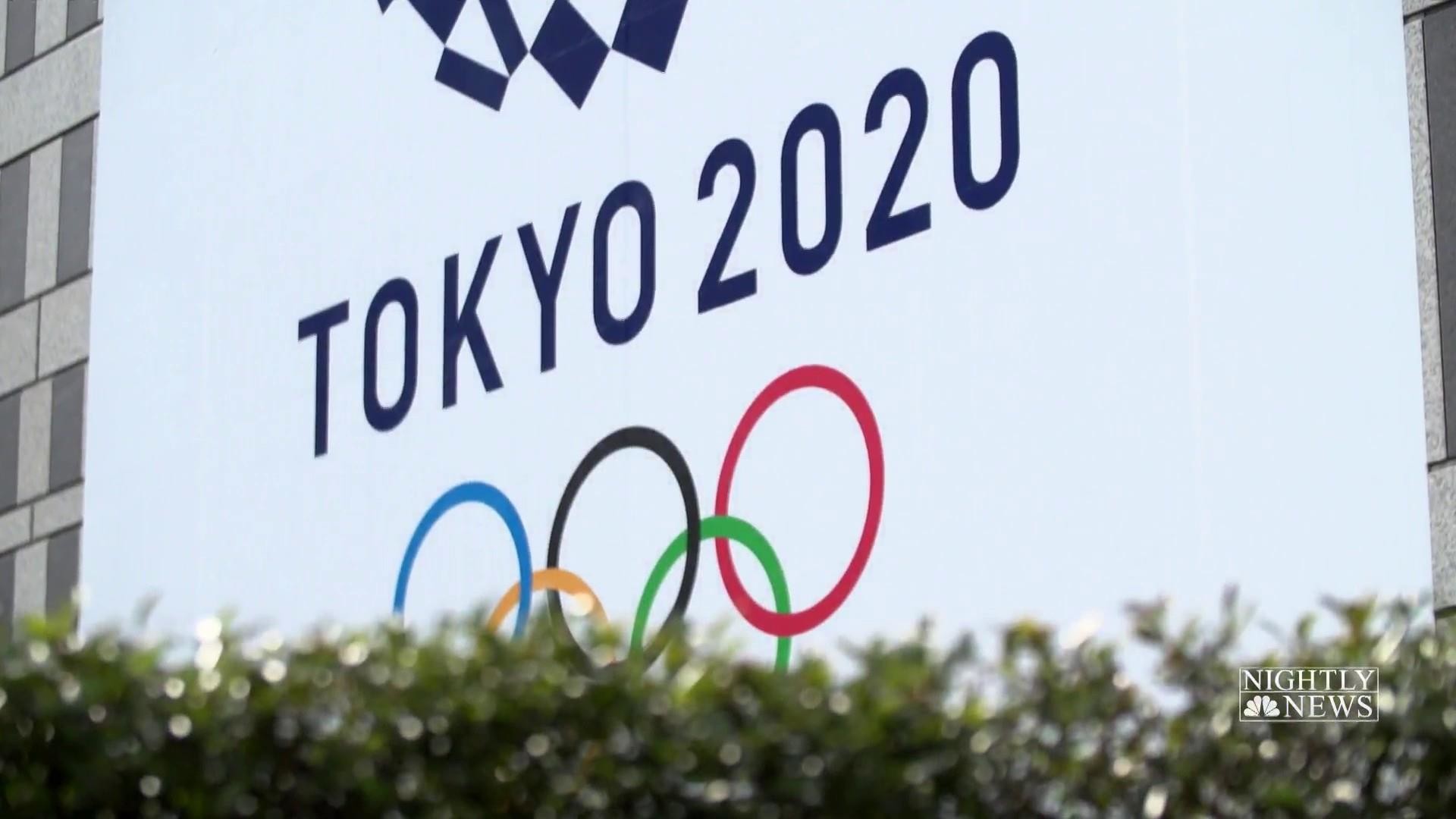
The stadium test event will be held on 5-6 May next year to ensure that the venue and officials are ready to welcome athletes from more than 200 countries.
By the time of the Games, the stadium will be a vertical garden, with plants fringing the covered walkways that encircle the building.
That will be the view of the stadium that the marathon runners will have as they approach at the end of 42 gruelling kilometres that will take them through both historic and modern Tokyo.
The marathon route starts and finishes at the stadium, passing the landmarks of Kaminarimon (the Thunder Gate, which is guarded by the deities of wind and thunder), the Imperial Palace, home of Japan’s new emperor Naruhito, Tokyo Station, the Zojoji temple, Tokyo Tower and the Nihombashi bridge.
by Nicole Jeffery
Login to leave a comment
Tokyo 2020 Olympic Games
Fifty-six years after having organized the Olympic Games, the Japanese capital will be hosting a Summer edition for the second time, originally scheduled from July 24 to August 9, 2020, the games were postponed due to coronavirus outbreak, the postponed Tokyo Olympics will be held from July 23 to August 8 in 2021, according to the International Olympic Committee decision. ...
more...Belayneh Densamo the former Marathon World Record holder should have had more support to train and he had to flee his country and was left for dead
Belayneh Densamo ran the first sub 2:07 marathon 30 years ago. Yet he was not able to run in the 1988 or 1992 Olympics.
Belayneh was born on June 28, 1965 in Diramo Afarrara, Sidamo. He held the world record in the marathon for 10 years (1988-1998). This was the third longest span without the record being broken since the event was first organized at the 1896 Olympics. The record was set when he ran 2:06:50 at the 1988 Rotterdam Marathon in the Netherlands. The record was eventually broken by Ronaldo da Costa at the Berlin Marathon in 1998.
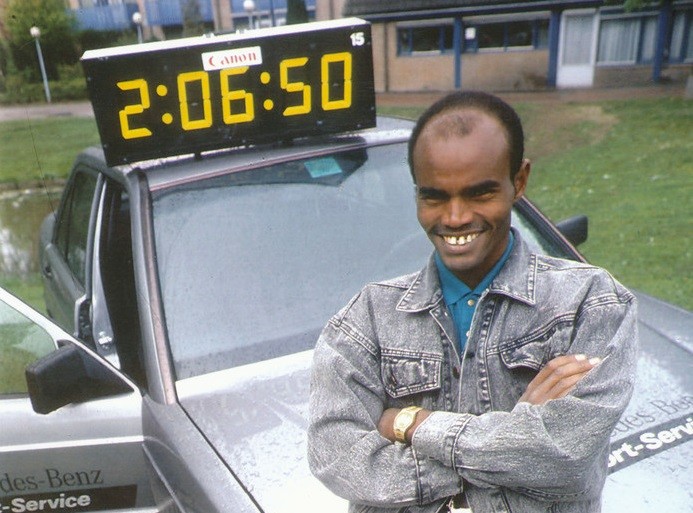
His first international marathon race was in Japan in 1986 where he finished second in 2:08.29.
He became the second world record holder in the marathon from Africa after his barefoot running compatriot Abebe Bikila.
In 1988 the Ethiopian regime decided to boycott the Games in Seoul. Densamo could do nothing but accept the dictator Mengistu's decision and not run in the Olympics.
In 1992, Densamo's preparation for the Games in Barcelona was severely disrupted again. In his homeland a fierce battle was going on for political power. Densamo was pressured by a gang to give them money, but did not succumb to the threat. However, after a bomb exploded under his house, he fled. "I had to protect my family. These were sad times, my head was no longer into running. As the best marathon runner in the world, I should have had all the support to train, but I had to flee and was left for dead. I did not get a fair chance at the Olympics. Very sad.''
Things did improve for him and he did represent Ethiopia at the marathon at the 1996 Summer Olympics, but the hot and humid summer in Atlanta, Georgia was just too much for him and he was among 13 of a field of 130 who did not finish.
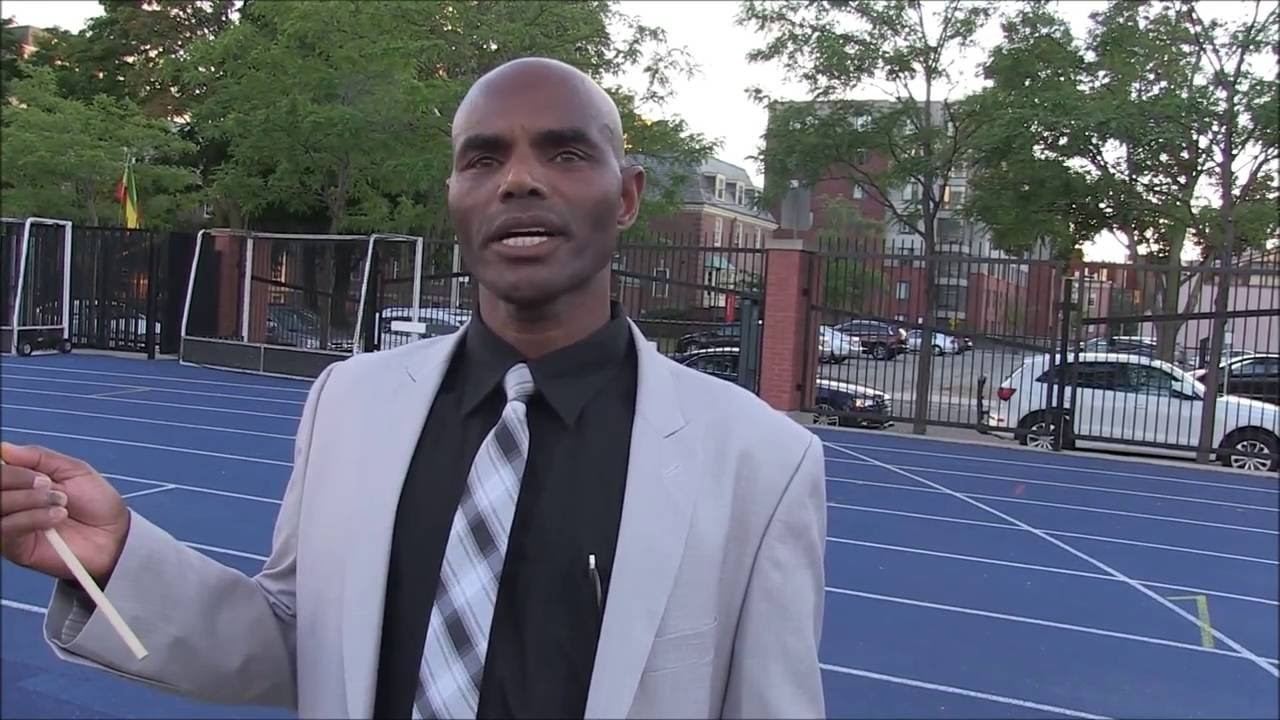
Densamo moved from his native Ethiopia to Rotterdam in 2003, he says, but he eventually opted for the United States. He wanted to give his three daughters the chance to get a good education.
The shy man escaped poverty through his running talent, is now a proud family man living with his family in Boston, Massachusetts. At 52 he leads a regular, quiet life. "When people see me, they estimate me 35 years. I live healthy, I still work hard and I am an assistant coach at Boston University," he says.
This interview was done in December 2018 by Markos Berhanu for Ethiosports.
by Markos Berfanu
Login to leave a comment
IAAF announced it plans to honor some of the most highly accomplished runners in history
Login to leave a comment
Derek Clayton who held the World Marathon Record for 14 years, says shoes and pacemakers is why today's times are so fast
DID YOU KNOW: On June 12, 1965 Japan's Morio Shigematsu broke Abebe Bikila's world marathon record clocking 2:12:00 at the Polytechnic Marathon near London. Then on December 3, 1967 Australian's Derek Clayton shattered that record clocking 2:09:36 at the Fukuoka Marathon.
Derek was training over 250 miles a week and was clearly the world's best marathoner at that time. Then on May 30, 1969 he ran a marathon in Antwerp, Belgium mostly on cobble stones. He clocked 2:08:33 beating his own time by over a minute.
Skeptics throughout the following decades would speculate that the course must have been short. Yet only 11 days before his historic run in Belgium, Derek ran at high altitude and won a marathon in Turkey May 19th clocking 2:17:26.
“I had to run faster than I'd planned. If I hadn't run in Turkey I would have run 2:07 in Antwerp," Clayton said. "Maybe the course was short but Derek had nothing to do with that," says Bob Anderson, MBR & RW founder and a good friend of Derek.
"Any way, worse case scenario is that Derek held the world record he set in Fukuoka until Ron Hill ran faster (2:09:28) on July 23, 1970. That is two and half years.
Best case scenario, Derek held the world record for 14 years, until Robert De Castella ran 2:08:18 December 6, 1981 at Fukuoka. Derek was one of the world best marathoners of all times, the first under 2:10.
Yet even today when Derek's name comes up there is talk about the possible "short" course. I think it is about time we give him the credit that is due."
Yes, times today have gotten a lot better but there are two things that are clearly different today. "...the shoes they are wearing...and something I am dead set against, pacemakers," says Derek.
by Bob Anderson
Login to leave a comment
Abebe Bikila had only run two marathons before winning and running a PR by over six minutes in Rome
DID YOU KNOW? Abebe Bikila was a member of the Imperial Bodyguard, and was a last-minute addition to the Ethiopian team but caused a sensation by running barefoot through the streets of Rome and winning gold, at the 1960 Olympic Games.
Four years later he retained the title, this time wearing shoes. On both occasions he clocked world best times... Abebe participated in a total of sixteen marathons, winning twelve and finishing fifth in the 1963 Boston Marathon.
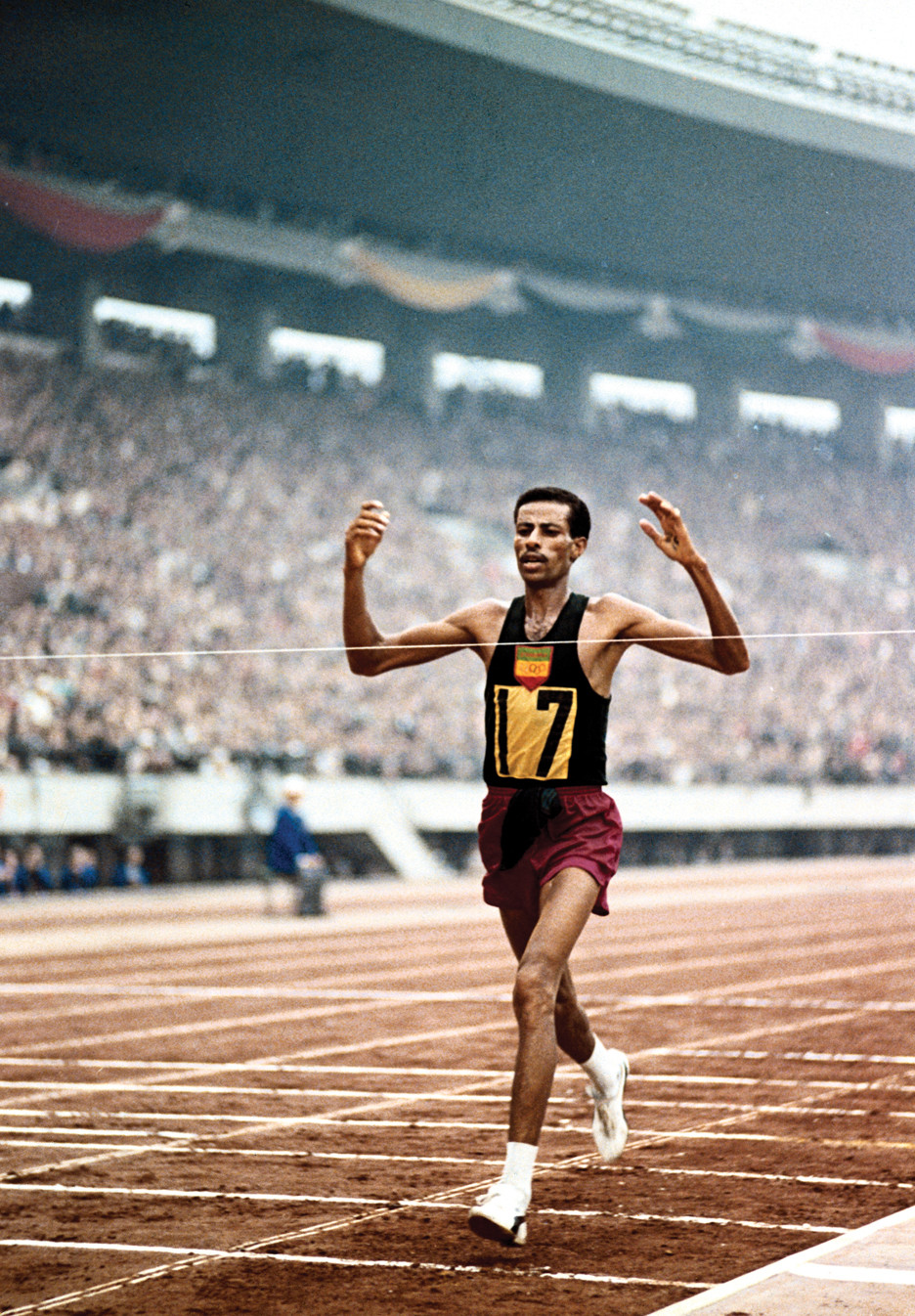
In July 1967, he sustained the first of several sports-related leg injuries which prevented him from finishing his last two marathons.
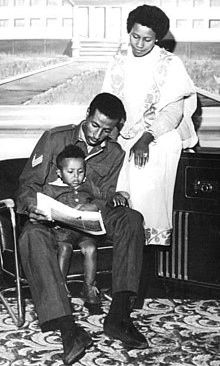
On March 22, 1969, Abebe was paralyzed as a result of a car accident. Although he regained some upper-body mobility, he never walked again. He died at age 41 on October 25, 1973, of a cerebral hemorrhage related to his car accident. He had only run two marathons before Rome and there he set a PR by over six minutes.
Olympians
Login to leave a comment


